Are Your Child’s Grades Inflated? PRESCHOOL






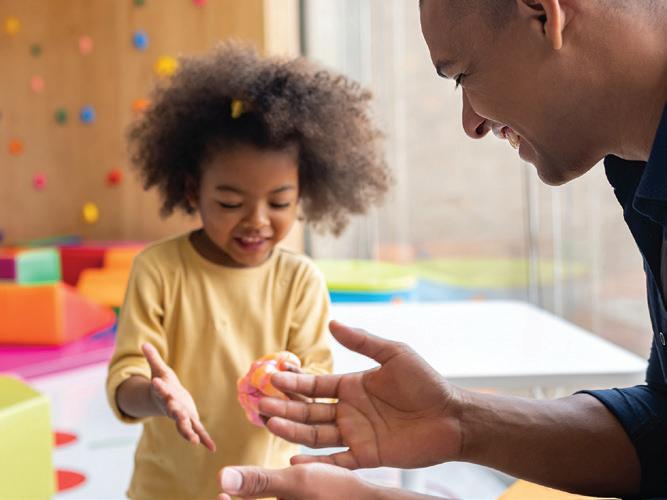


HERE’S











HERE’S

When it comes to chronicling milestones in our kids’ lives, snapping an annual first day of school pic is a universal rite of passage. Whether your kids are starting kindergarten, a new grade or it’s their last year of high school, every first day feels special. I love looking back at first day pics, especially those years when I got to choose my kids’ outfits. Now that I have two teenagers, getting that first day of school pic is a lot harder (cue the eyeroll), but no less important.

For me, the first day of school always signals a fresh start—a chance to get organized and embrace a new routine as a family. But for many, getting into a new rhythm can be stressful. If your child is worried about starting school, there’s a lot you can do as a parent to ease their anxiety. Turn to page 15 for expert guidance on how to help your kids through the transition and during the school year, too.
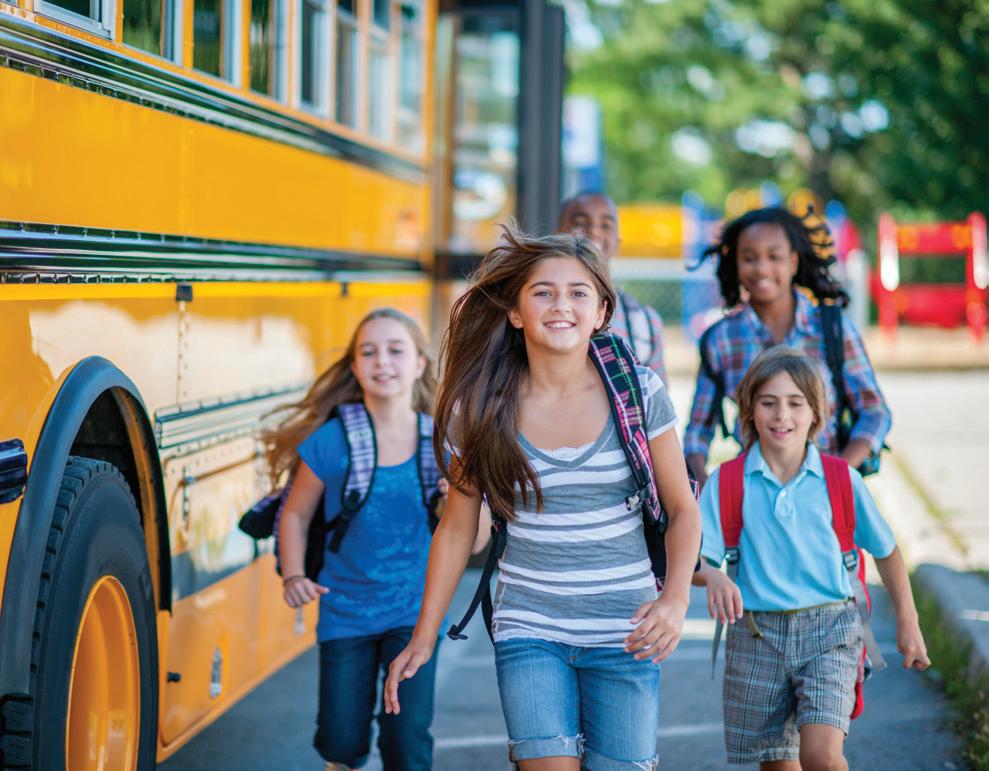
Whether you’re looking for a preschool, private school, enrichment program or test prep tutor, the advice in this issue will help you find the right fit for your kids. Our Meet the School section on page 35 offers an up-close look at the best independent schools in and around NJ. And if you’re looking to inspire your kids with day trips that are as fun as they are educational, you’re sure to find great ideas in our guide to field trips on page 81.
Volume 7, Issue 1 • 2023
Editorial Director
Dina El Nabli
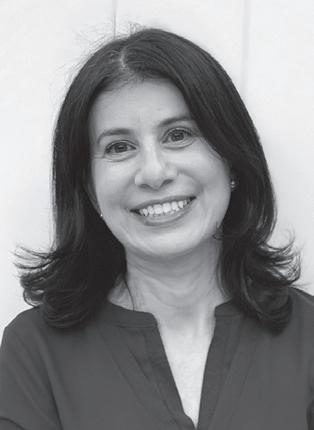
editor@njfamily.com
Art Director
Leeza Hernandez
Assistant Digital Editor
Jennifer Amato
Editorial Interns
Maryela Gallardo
James LaForge
Erica Schindler
Contributors
Jennifer Kantor, Ronnie Koenig, Jennifer Lesser, Arricca Elin SanSone, Sunny Sequeira, Nia Sylva, Laura Waters
Production Designer

Rosa M. Joseph
Project / Business Manager
Erica Barton
Director of Advertising
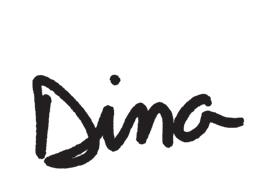
Marcy Holeton
Advertising
Ann Cusack, Cathy Grote, Debbie Lubranski, Barbara Nastro, Pamela Peterson, Erin Salman, Andrea Thorne
Co-Publishers
Dina El Nabli / Marcy Holeton
Founding Publisher
Cindy Mironovich
The acceptance of advertising by New Jersey Family does not constitute an endorsement of the products, services, or information being advertised. We do not knowingly present any products or services that are fraudulent or misleading in nature. Editorial inquiries and advertising rates may be addressed to Kids Monthly Publications, Inc., P.O. Box 669, New Providence, NJ 07974. New Jersey Family can be reached by calling 908-975-1800, emailing editor@njfamily.com, or by visiting our website, njfamily.com.
FOLLOW US!
Facebook /NewJerseyFamily
Twitter @njfamilymag
Instagram @newjerseyfamily
Pinterest /NewJerseyFamily
Threads @newjerseyfamily
Reproduction of New Jersey Family or Big Book of Education in whole or in part without written permission from the publisher is prohibited. All rights reserved. Copyright 2023 by Kids Monthly Publications, Inc.
A THROWBACK TO MY KIDS’ FIRST DAY OF FOURTH AND FIRST GRADES.

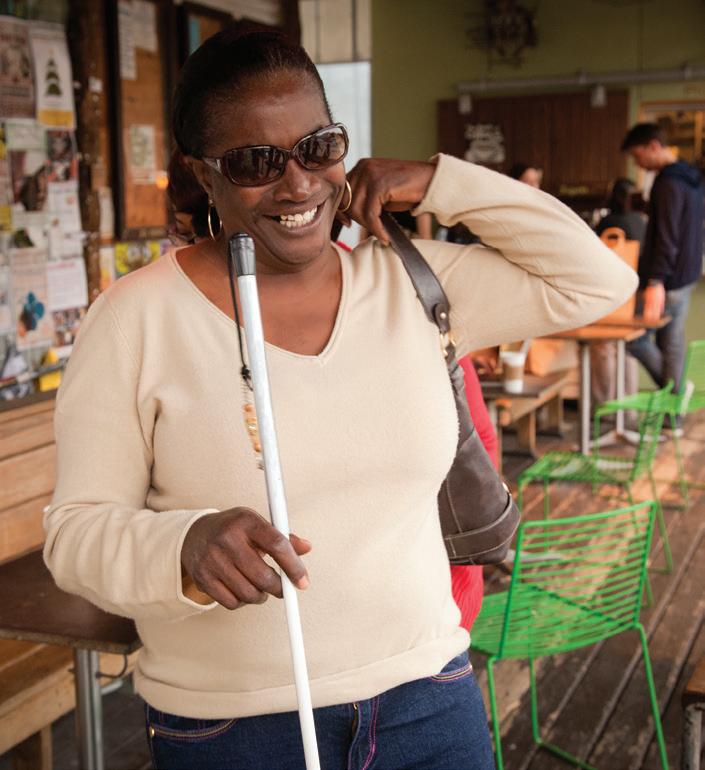
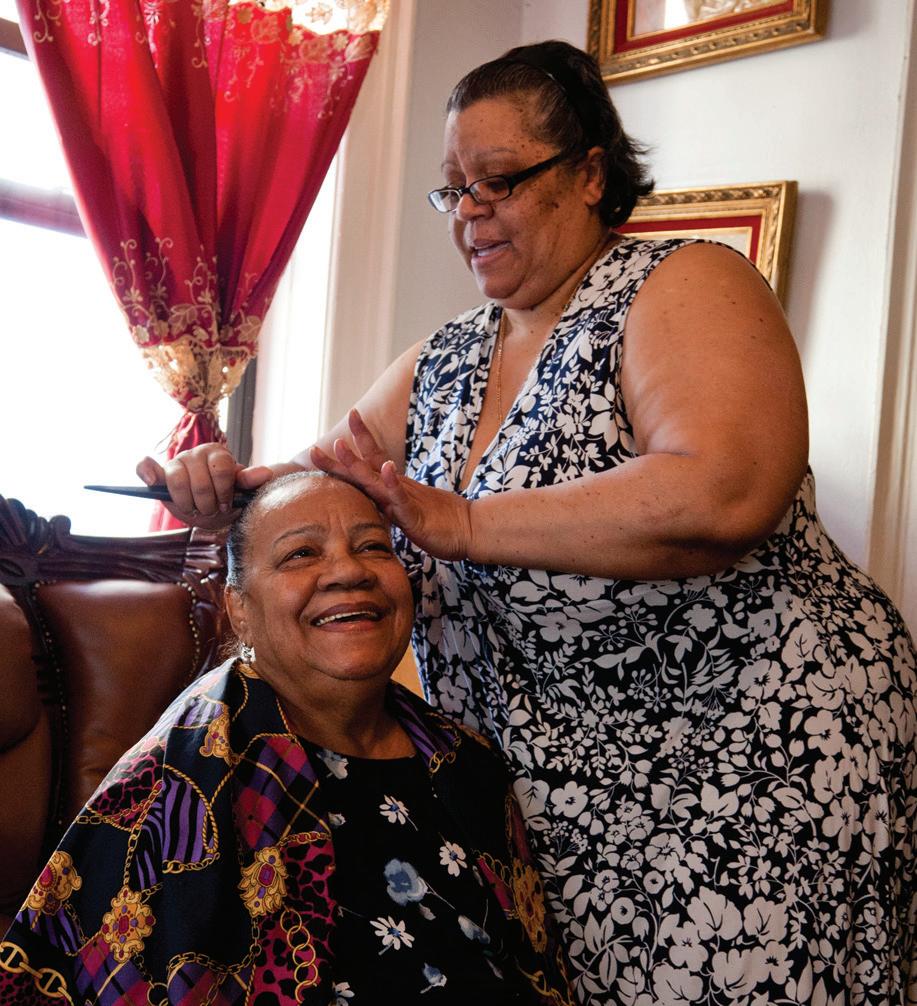





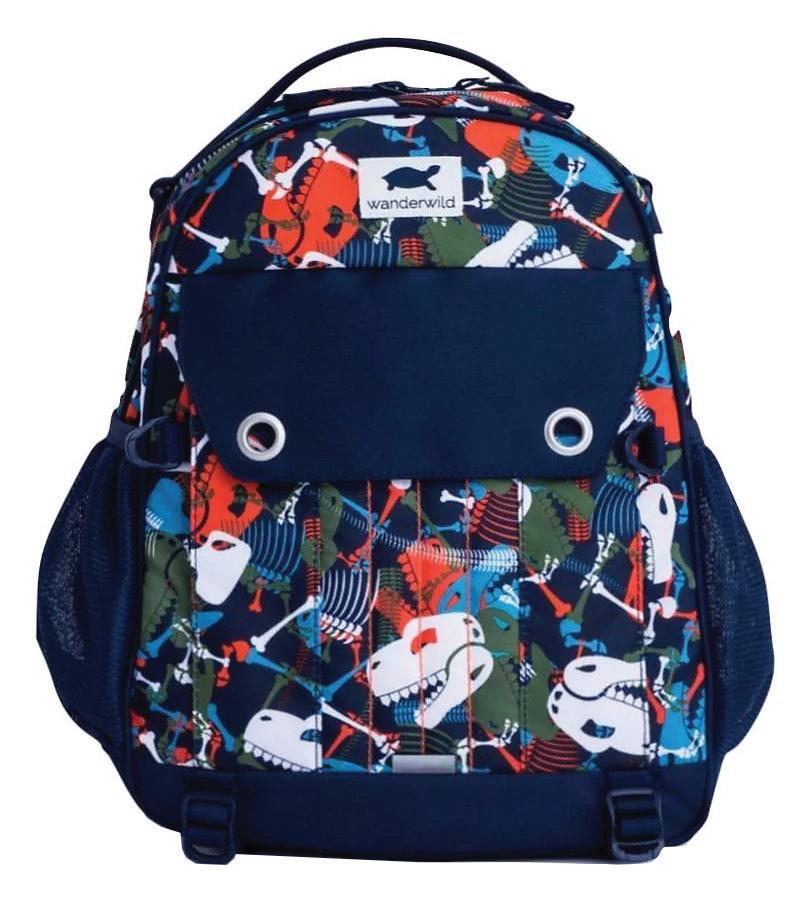
3. SNACK ATTACK A doublesided container keeps food separate so their veggies or chips stay crisp and ready to dip. Trailhead Double Sided Snack Container, PlanetBox. $19.95, planetbox.com. 4. OUT TO LUNCH A neoprene lunch bag keeps food cool (or warm) for up to four hours, is machine washable and comes in lots of cute styles. Funkins Reusable Lunch Bag, Funkins. $22.95, amazon.com 5. DO OVER These gel pens make it easy to write, erase and rewrite without damaging their notebooks. FriXion Erasable Pens (Pack of 16, Assorted Colors), Pilot. $19.36, amazon.com 6. PRETTY KIND Help inspire creativity and kindness with a stationery set that comes with pens, colored pencils, a notebook, stickers and more. A portion of sales supports Kids for Peace, the organization behind The Great Kindness Challenge. Create Kindness Pack, Ooly. $29,99, ooly.com

Whether your kid can’t wait to start a new school year or is dreading it, there are a few things you can do to make the transition easier for everyone. Follow these tips from the American Academy of Pediatrics, the American Academy of Pediatric Dentistry, the American Dental Association and the American Academy of Ophthalmology for a healthy start to the year:
Schedule a visit with your child’s pediatrician. Ask about immunizations, boosters and sportsspecific exams required for kids before they can begin an athletics program.
If your child has health conditions, such as asthma or food allergies, make sure the school’s nurses are aware. Discuss medications and how they will be dispensed if your child needs them during the school day.
Make an appointment ASAP If your child is overdue for a checkup or cleaning. Kids should also have custom-fit mouthguards made if they participate in sports, especially if they have braces.
Kids should have their vision screened in first grade and annually thereafter. The exam should check for visual acuity and eye diseases. Ask your kid’s eye doctor about protective eyewear if your child participates in sports with a high risk for eye injury, such as basketball or lacrosse.
Carrying a backpack that’s too heavy is a common cause of back pain for kids. Limit the weight to less than 10 pounds and make sure they’re wearing it across their backs, not slung over one shoulder. A rolling backpack is another option.
Gradeschoolers need about 10 to 12 hours of sleep per night, while teens need about 8 to 10 hours. Getting into a healthy sleep routine at least a week before school starts will help to ensure a smoother transition.
If your child seems anxious about starting a new grade or going to a new school, do a walk-through to help familiarize them with the routine. Ask about touring the classroom or meeting the teacher ahead of time. Help them troubleshoot ways of handling whatever is worrying them. Talk about the fun parts of school, too, such as seeing old friends or getting to pick out new school supplies.

While a little nervousness is normal, watch for red flags that your child isn’t coping well with a return to school. Signs they may need help include changes in eating habits, sleep issues, isolating or frequent emotional outbursts, even headaches and stomachaches. Reach out to the school counselor, your pediatrician, or through HR at your workplace, which may have an employee assistance program (EAP), for mental health support.
©ISTOCKPHOTO.COM / FATCAMERA —Arricca Elin SanSone is a New York-based health and lifestyle writer.
 BY RONNIE KOENIG
BY RONNIE KOENIG
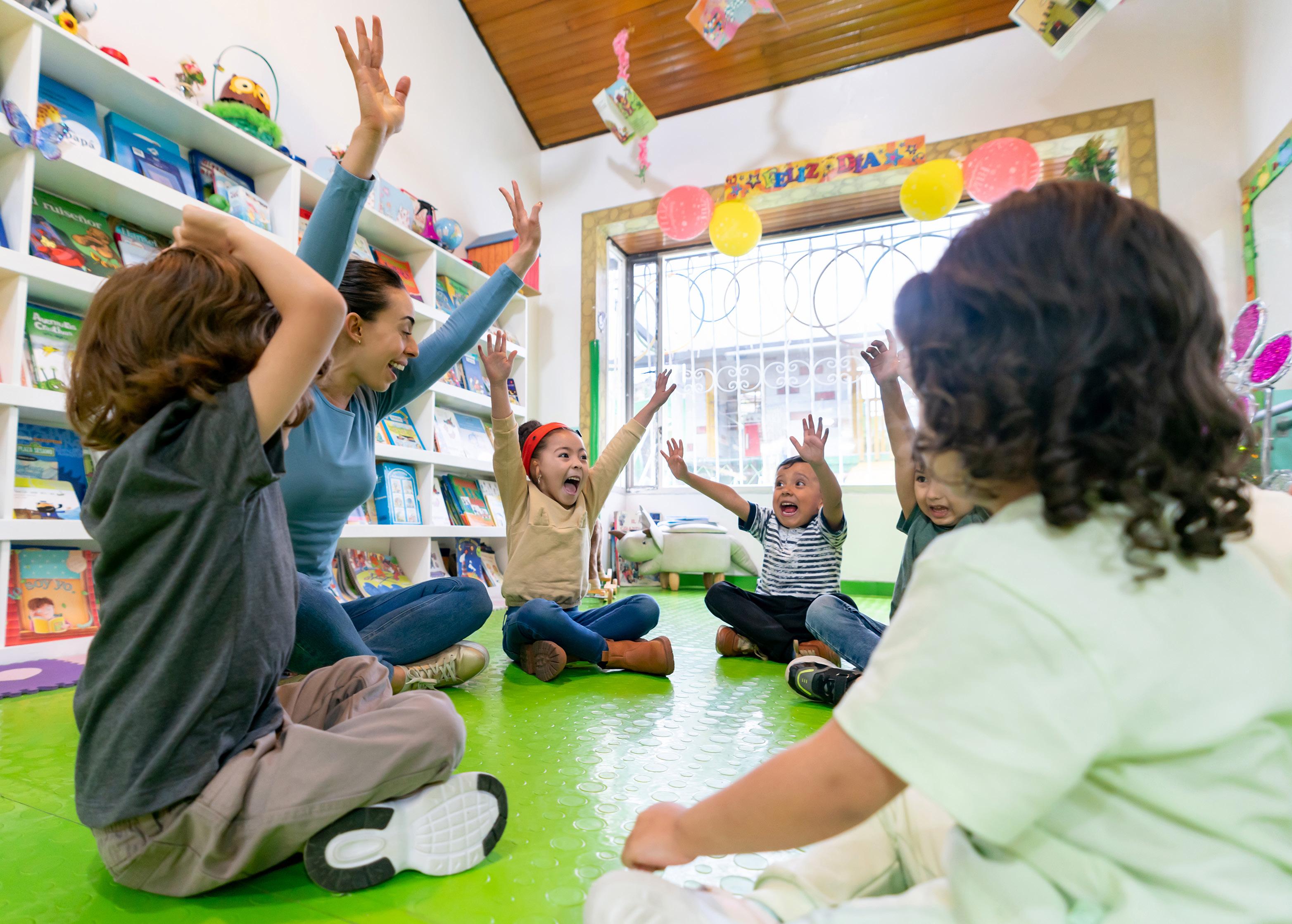
Starting daycare or preschool is a huge transition for your child and for you as a parent. It’s time for them to branch out, spread their wings, make friends and be in an environment where they will learn and grow. But how do you go about finding the right fit?
Begin by starting your search as early as possible, says Kristina Koonce, senior marketing & communications specialist at Apple Montessori Schools. “Figure out your needs and the needs of your child, which will help narrow down the search, and then you can begin researching efficiently,” she says.
Miriam Pedler, director of early childhood at the Leonard and Syril Rubin Early Childhood Center at the Kaplen JCC on the Palisades, says parents should start thinking about their childcare needs during pregnancy.
“Access to programs that fit your needs is important to take into consideration,” she says. “I also recommend that parents reach out relatively early in their pregnancy, as quality infant programs are rare and have limited availability. Even if you’re not planning on starting your child in an early childhood program until they’re older, it’s important to have
a sense of each school’s enrollment process and timeline.”
Everyone wants a nurturing and warm environment for their child, but there are also other things you should look for in a school you’re considering. “Of course, a calm, clean, safe atmosphere,” says Koonce, “but also, a knowledgeable and personable staff.”
One of the best ways to determine how a school measures up is to pay close attention to the students, Koonce says. “Try and schedule a visit that involves a classroom observation so you can watch how the children respond to the teacher, how they interact with each other, how the atmosphere is and most importantly how you feel in it.”
Start by being clear about what your family needs, says Pedler. “Do you require a full day with early and late care? Are there food, learning, or special needs that should be considered? Make sure that programs you visit are able to support any needs you have.”
A great program should have access to a safe, engaging outdoor facility, as kids benefit greatly from being out in nature, Pedler says. “Experts agree that outdoor play is just as crucial for kindergarten readiness as the learning that happens inside the classroom,” she says.
Here’s what to consider before deciding where to enroll your child.





“Also make sure that the children have access to many different types of play and engagement such as music, dance, sports, and yoga, as these can benefit all little learners!”
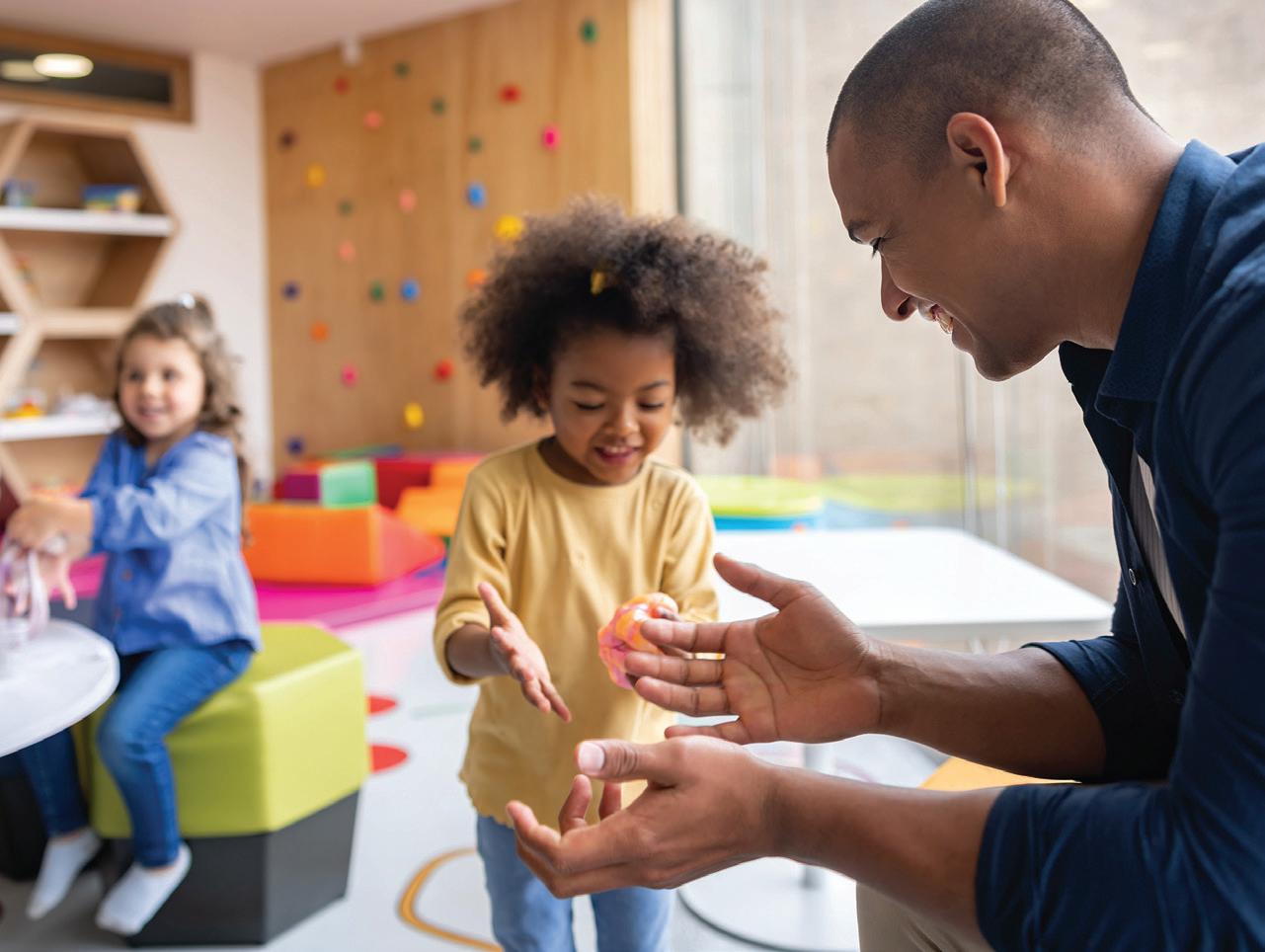
Come prepared with a list and don’t be afraid to ask anything that’s on your mind. The school director you end up working with is there to inform you and put your mind at ease.
“Some basic questions you want to know are about the teacher-to-student ratio, communication, health and safety, learning style, discipline, schedule, teacher tenure and training, school hours and fees,” says Koonce.
“It’s important that we as directors have meaningful partnerships with our families and it’s great when they ask for and value our input,” says Pedler. “We love to get theirs, too. Definitely find out a school’s philosophy regarding social-emotional learning and sensory play. In today’s day and age, children are starting kindergarten without these crucial skills that they really need to set them up for success as they move forward in school. Programs that focus solely on academics can build unhealthy habits in developing learners.”
All kids are different so how can you be sure you’ve found the right place for them to thrive?
“Envision what you would like your child’s day to include and discuss which school fits the needs of your child,” says Koonce. “It
goes without saying: you want your child to be well cared for, but it’s equally important to find a program that nurtures all aspects of your child’s development.”
It’s also important to get a good feeling for the vibe of a school, and whether you can picture yourself and your family there, Pedler says. “A great school should be able to support all children’s personalities, because all children are different,” she says. “But as parents, your comfort is important as well. After all, this is where you build your community! Does the school share the same values as you do, and how do they put those values in action?”
When it comes to being an observant parent, remember that the school should never sell you on themselves. “Definitely be concerned if a school seems too eager to have you tour or register,” says Pedler. “A great school’s administration is focused on the students, teachers and families during the day and may not be sitting by the phone, or able to give a tour at the drop of a hat.”
When it comes to any school, parents should trust their gut, Koonce says. “If you get the sense that something feels off, it probably is.” In the end, the most effective way to learn about a preschool or daycare is to just look at the students. “They should be happy, engaged and loved and that’s something you can tell from a visit.”

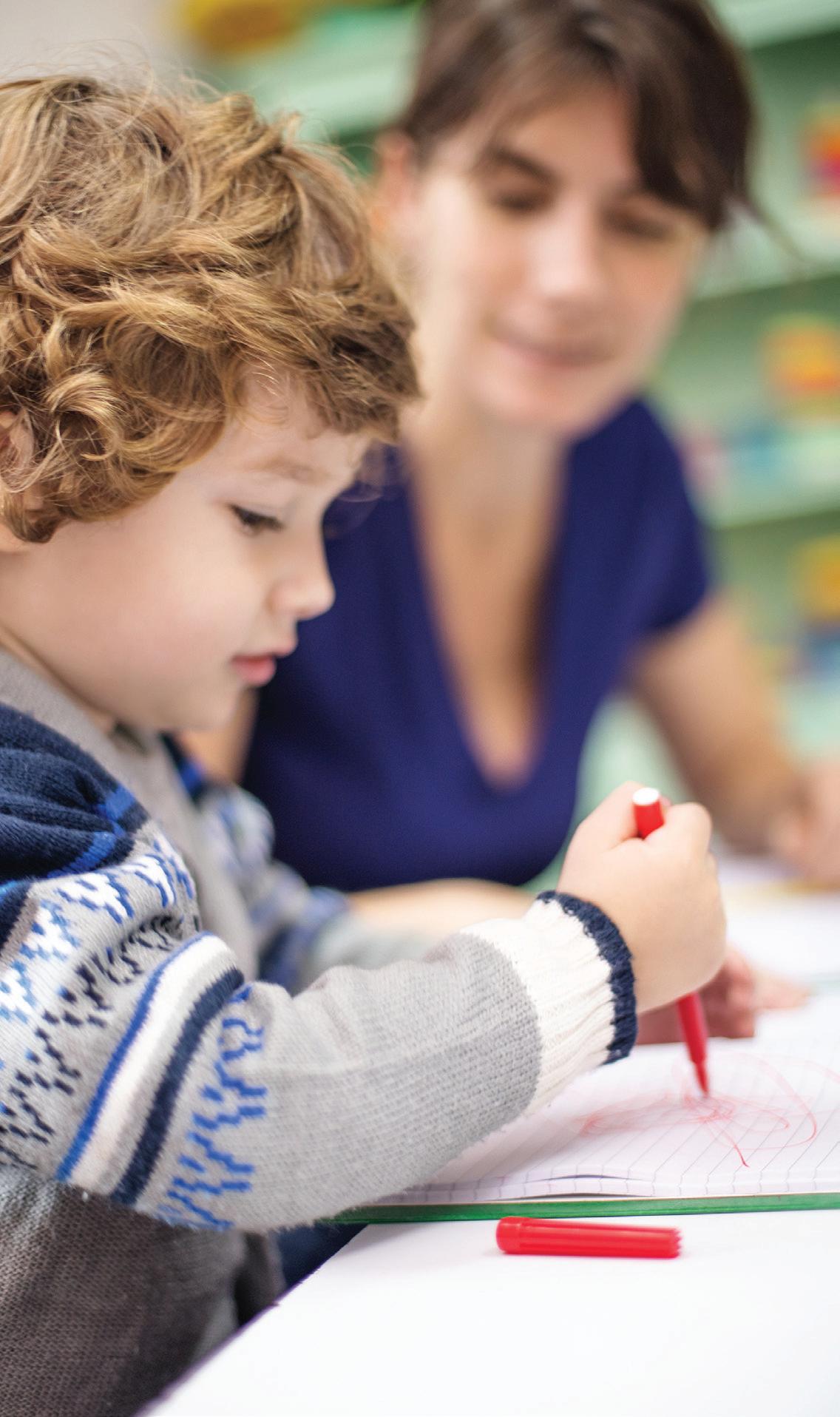

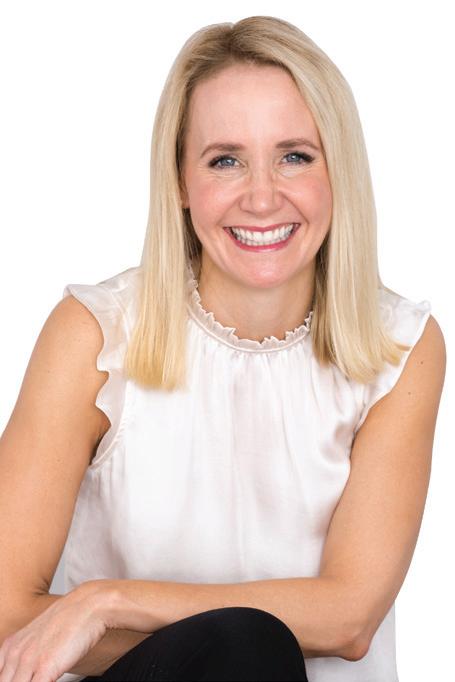

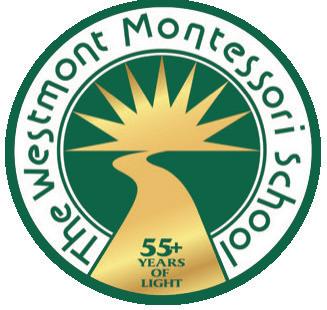

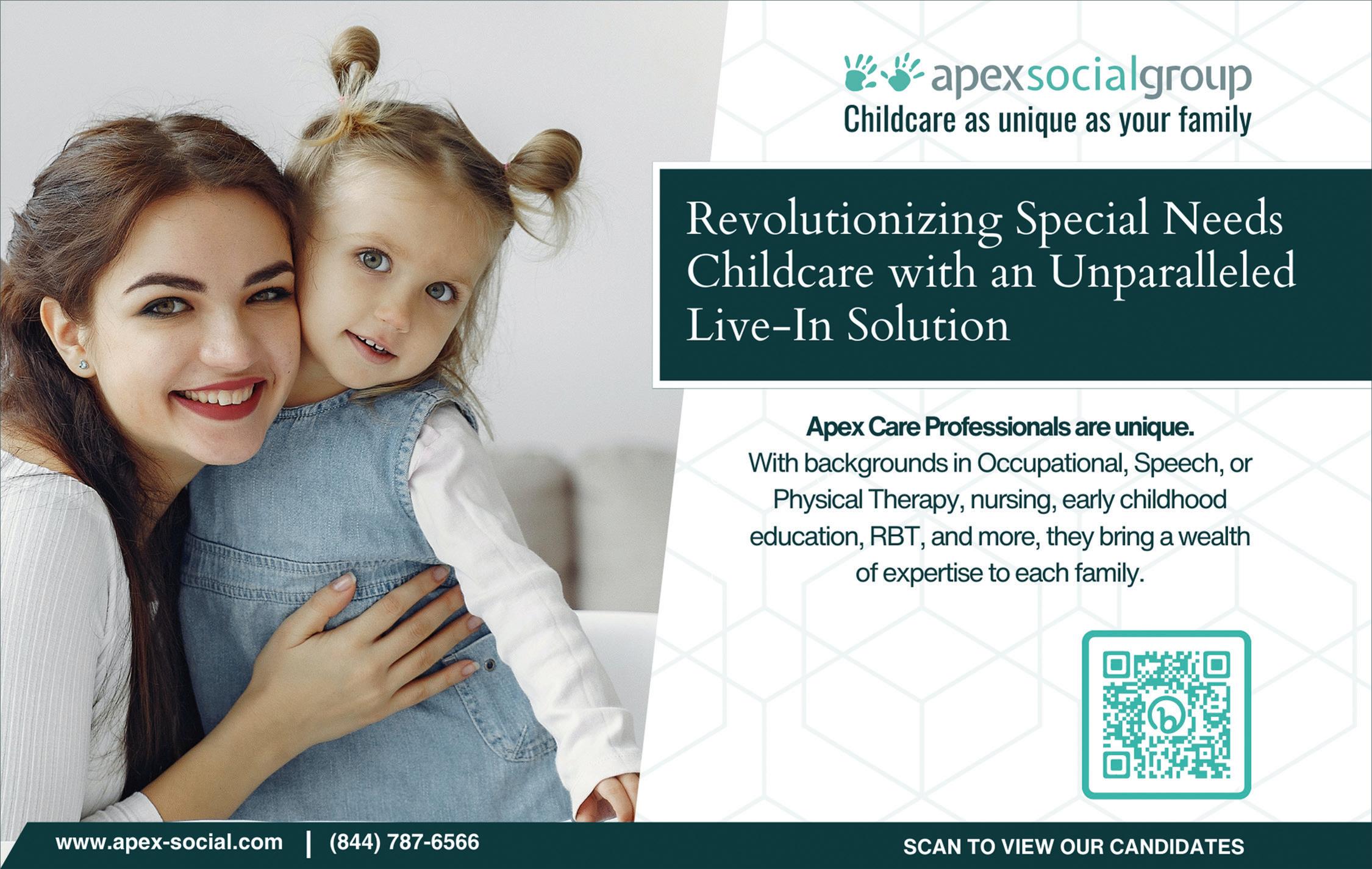
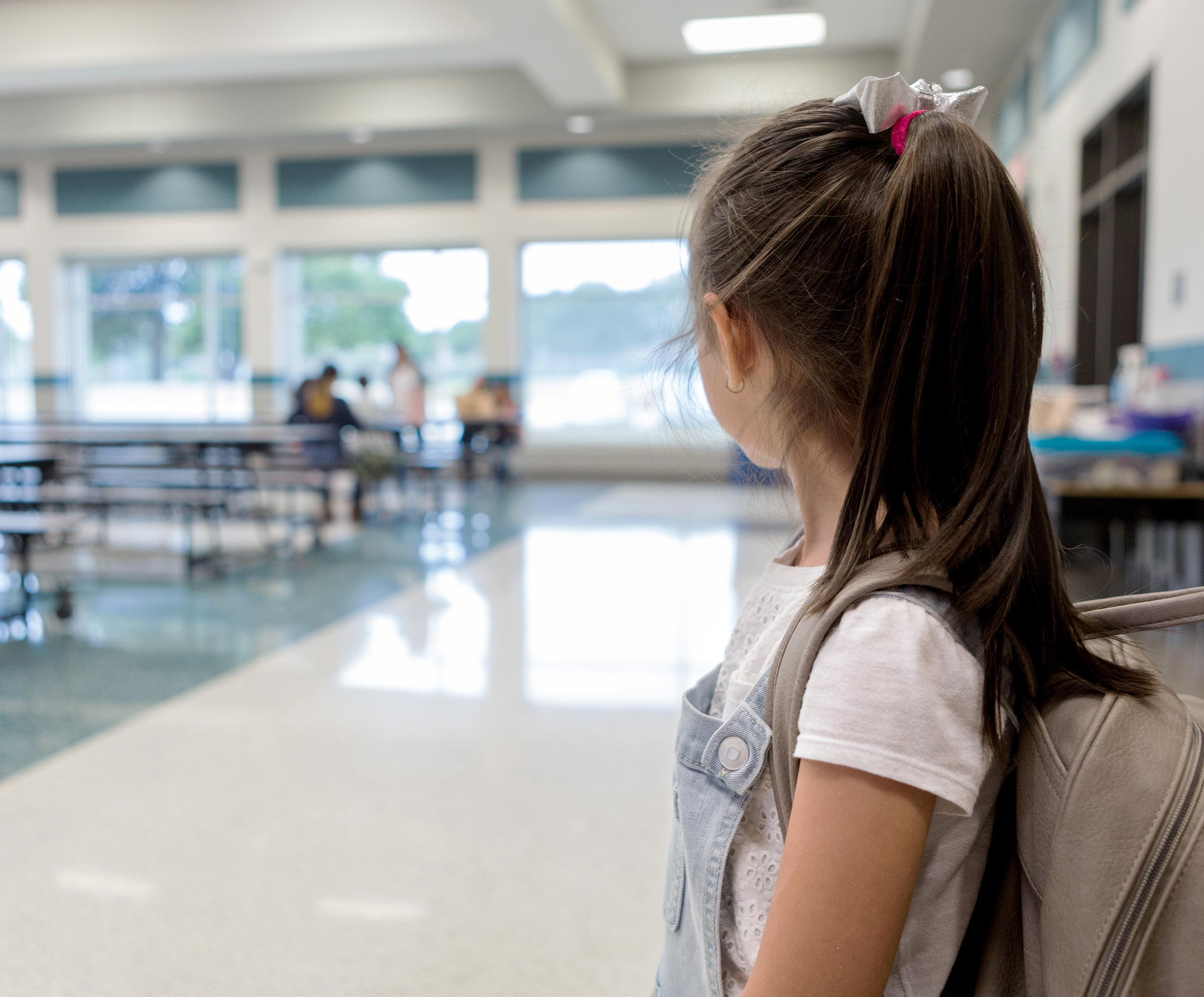
We asked the experts for tips to ease their jitters in September and all year.
By DINA EL NABLIThe start of a new school year is an exciting time but for many kids and teenagers, it can also be a source of stress. Anxiety brought on by new beginnings and transitions is normal. Because kids typically thrive on routine and structure, it may take them a while to get comfortable.
You may start to see symptoms of back-to-school anxiety toward the end of summer appear in the form of stomachaches, aggression, defiance, regression in behavior or an increase in sibling rivalry. Anxiety as the new school year approaches is often the explanation behind a change in behavior.
“Feeling anxious, especially when starting a new school year or having to take a test or play a game or perform in a concert or show, is normal,” says Muhammad Zeshan, MD, an infant, child and adult psychiatrist and clinical assistant professor of psychiatry at Rutgers New Jersey Medical School. “So don’t panic if your child complains of a headache or nervousness. Sometimes, these physical symptoms are your child’s way of trying to tell you something. Is the headache your child’s way of saying that they’re frustrated? Is the nervousness your child
saying, ‘I don’t like this thing?’”
How do you know when anxiety is normal and when it’s a cause for concern? What can you do to help your kids if they’re feeling anxious about the start of school? Here’s what experts recommend to support your kids in September and throughout the year:
KEEP YOUR OWN ANXIETY IN CHECK
When it comes to anxiety, the number one thing parents should do is be aware of their own feelings. “Children take cues from their parents, so being aware of one’s own feelings and modeling comfort and confidence will help,” says Ariel Heller, a psychiatrist practicing at Holy Name Medical Center in Teaneck. “Parents should take time out to talk to their children about the transition back to school. Ideally, this conversation should occur at a time when everyone is calm and not when the children are upset or getting ready for school.”
Start by asking your child what they like most about school and whether there’s anything in particular that’s worrying
them about going back. Asking questions like this will help acknowledge your child’s concerns, support them and remind them of what’s great about going back to school, like learning new things and seeing their friends.
Asking questions will also help you figure out your child’s triggers. These are a few of the things that could be making your child anxious, according to Miriam (Manela) Frankel, a mental health occupational therapist and founder of childrenbloom. com and The Thrive Group in Passaic and Brooklyn, NY: Fear of the unknown, such as a new class, teacher or material
Worry about not doing well, particularly for a child who has not done well in the past or who has struggled with grasping new material
Previous negative experiences with teachers, therapists or other adults
If your child is clingy then their anxiety may be attachmentbased and they may worry about leaving you all day.
Social anxiety can range from worrying about having a conversation and fitting in with a group to fear of bullying or being left out. If a child has been bullied in the past it can make them anxious about returning to a big class where they need to assert themselves in a group. Here’s what else you can do to help ease your child’s anxiety:
Talk about the upcoming school year. “Avoidance of the topic will only serve to amplify fears and anxiety your child may be having,” says Joseph Galasso, PsyD, chief executive officer and clinical psychologist at Baker Street Behavioral Health, which has locations throughout NJ. “If you keep the

topic in conversation throughout the summer, the return to school may not seem so abrupt.”
Frankel suggests beginning the conversation by saying: What are you looking forward to about this school year? “If they express nervousness or anxiety, let them know that some anxiety is normal—nearly everyone feels it,” she says.
Do a walk-through of the school. “Together, find your child’s classroom or classrooms, take pictures on your cell phone, draw maps, and write some simple directions,” Frankel says. “If their locker has been assigned, find it and try locking and unlocking it a few times. One visit may not be enough for fearful children so see if you can schedule a few visits. If possible, for younger children, drive, ride or walk the route to school so your child can become very familiar with the trip.”
Normalize your child’s feelings by sharing times when you might have felt or experienced the same thing. “Express to them that you were able to get through the situation even though it caused fear or anxiety,” Galasso says.
Schedule a school-supply shopping trip and allow your child to pick the backpack, notebooks, shoes and other things they like. “Most children want to fit in, so if the item isn’t harmful or budget-busting, get them the clothing and supplies that help them feel more confident,” says Frankel. “This isn’t necessarily the time to teach your child that it’s the inside of a person that counts—that important lesson must be taught over time, and is most effective when taught by example.”
If possible, meet the principal and teacher before school begins. “Orientation day might feel too hectic for some students. See if you can set up a brief, five-minute meeting with just you, your child, and their teacher and principal,” Frankel says.
ASKING QUESTIONS WILL HELP YOU FIGURE OUT YOUR CHILD’S TRIGGERS, SUCH AS WORRYING ABOUT NOT DOING WELL ACADEMICALLY.
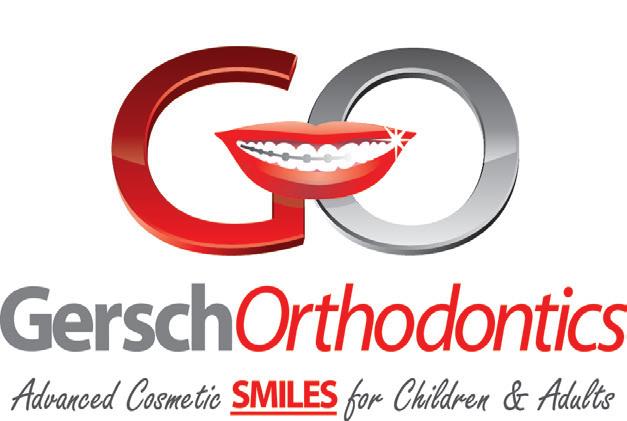


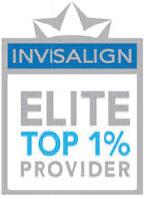
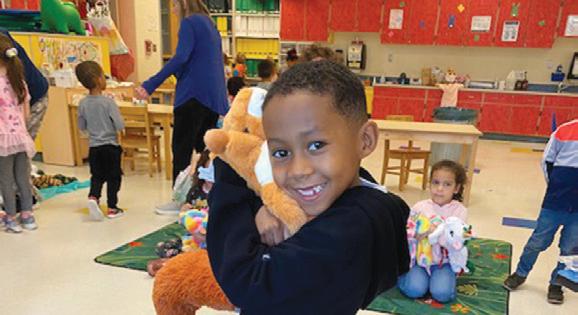
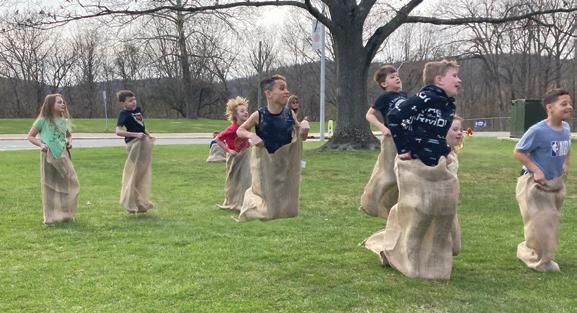

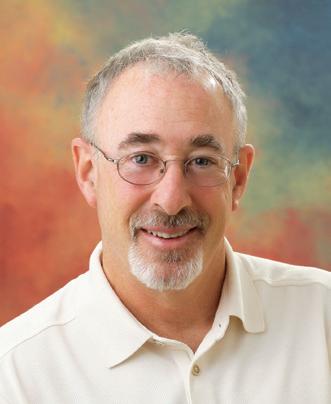



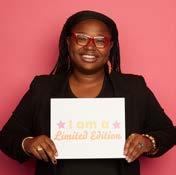


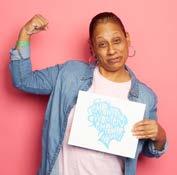
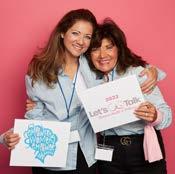
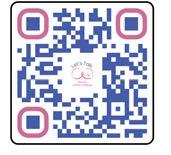
What should you do if your child’s anxiety isn’t going away? Zeshan says there’s a lot parents can do to be a reassuring presence when their kids are anxious. First, remind yourself to stay calm. Second, remember to validate what your child is feeling. “Don’t go to the solution,” Zeshan says. “Instead, validate their feelings by saying, ‘You seem anxious,’ ‘You seem nervous,’ ‘You seem down,’ ‘You seem frustrated,’ ‘You seem disappointed.’” Third, find out what’s wrong by asking them what happened and to tell you more and then reflect together. Here’s what else Zeshan recommends:
Remind yourself you’re a good parent. It’s important to relax, pause and remember you’re doing your best. “Having a positive mindset will help you focus on how you can best support your child rather than feeling guilty about what you could or should have done,” Zeshan says.
Help your kids feel a sense of autonomy. Too often, we make all the decisions for our kids about how they’ll spend their time. As a result, they don’t feel empowered and may feel that “they don’t know anything and parents know everything and they have to do whatever they’re told.” That’s why it’s so important to let them pick some of their activities, he adds.

Don’t lead with bad news. Don’t begin a conversation with how poorly they did academically or otherwise. “Instead, start with how you would like them to do academically and ask them how can we achieve that goal together as a family,” he says.
Meet them where they are. Remind yourself and your kids that feeling anxious, nervous, sad, down, frustrated or disappointed are
all normal feelings. “Many times as a parent, we are unconsciously telling our kids that feeling happy or successful is a normal feeling, and feeling sad or down are not,” Zeshan says. “If they say, ‘I’m feeling mad or upset,’ it’s important to validate their feelings and come up with a plan.”
When seeking professional help, Zeshan cautions parents not to jump to a diagnosis. Instead of focusing on what’s wrong with your child, focus on why they’re feeling the way they are. “Whenever you see day-to-day functioning is impaired, go to someone who’s not only interested in the symptom but also interested in your child’s whole story and making sense out of that story,” he says.
If your child is diagnosed with generalized anxiety disorder, be sure to seek out support that comes with that diagnosis, such as a 504 or IEP to help deal with school-based anxiety, he says.
Finding a therapist can be challenging, especially given how busy practices are. A good place to start, Zeshan says, is on psychologytoday.com, which will give you a list of therapists based on your zip code, insurance and what kind of therapy you’re looking for. Regardless of whether or not your child gets professional help, remember listening without overreacting and being present with your child both go a long way. Says Zeshan: “Let them talk and you’ll be surprised that even though you don’t have a solution, your child will feel more connected, calm and grounded.”
REMIND YOURSELF YOU’RE A GOOD PARENT. IT’S IMPORTANT TO RELAX, PAUSE AND REMEMBER YOU’RE DOING YOUR BEST.



kidzworlddental.com


Treating infants, children, adolescents & special needs patients
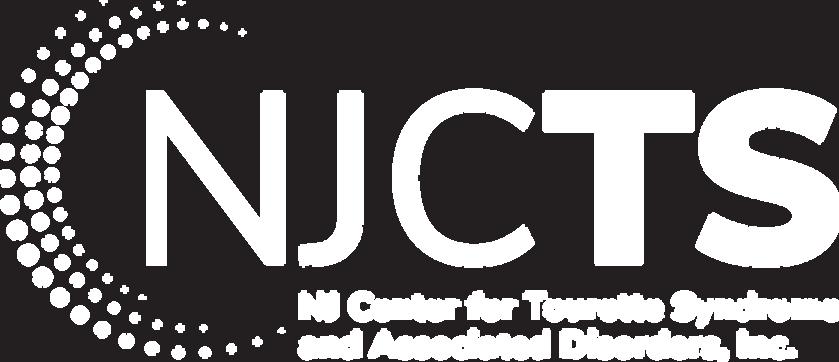
Pediatric Dentists : Michael Lateiner, DMD Peter Paradiso, DMD and Associates

Orthodontist : Rupali Shah, DMD
121 Shelley Dr., Hackettstown, NJ • (908) 979-0606
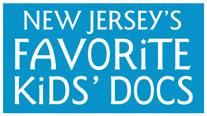

www.BrightSmiles4Kids.com
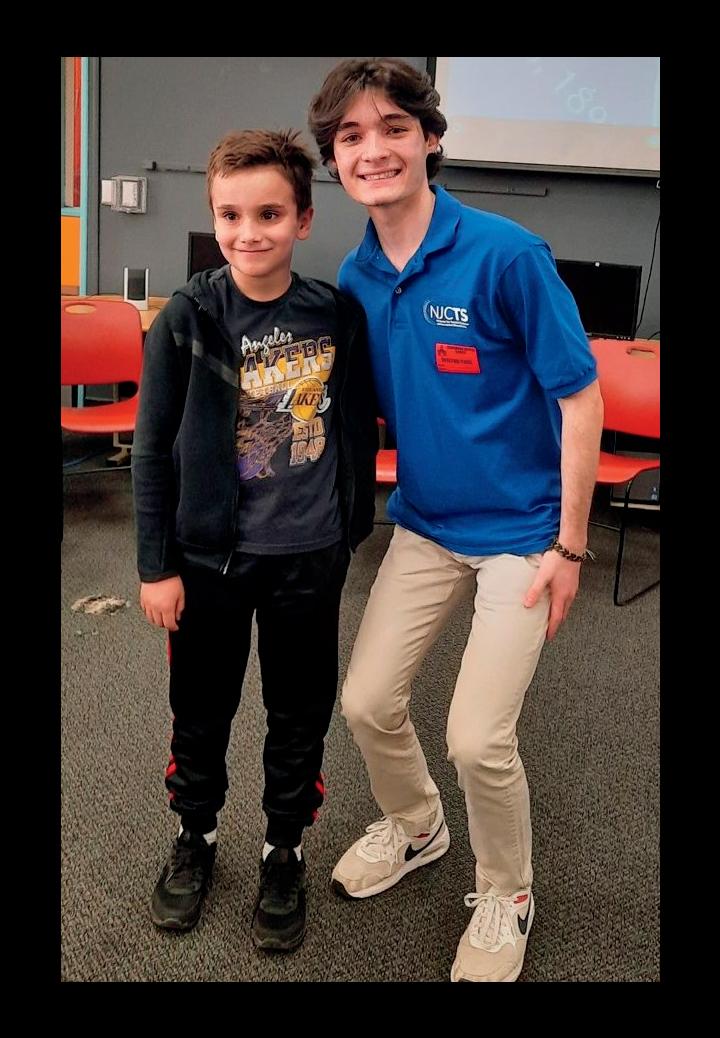

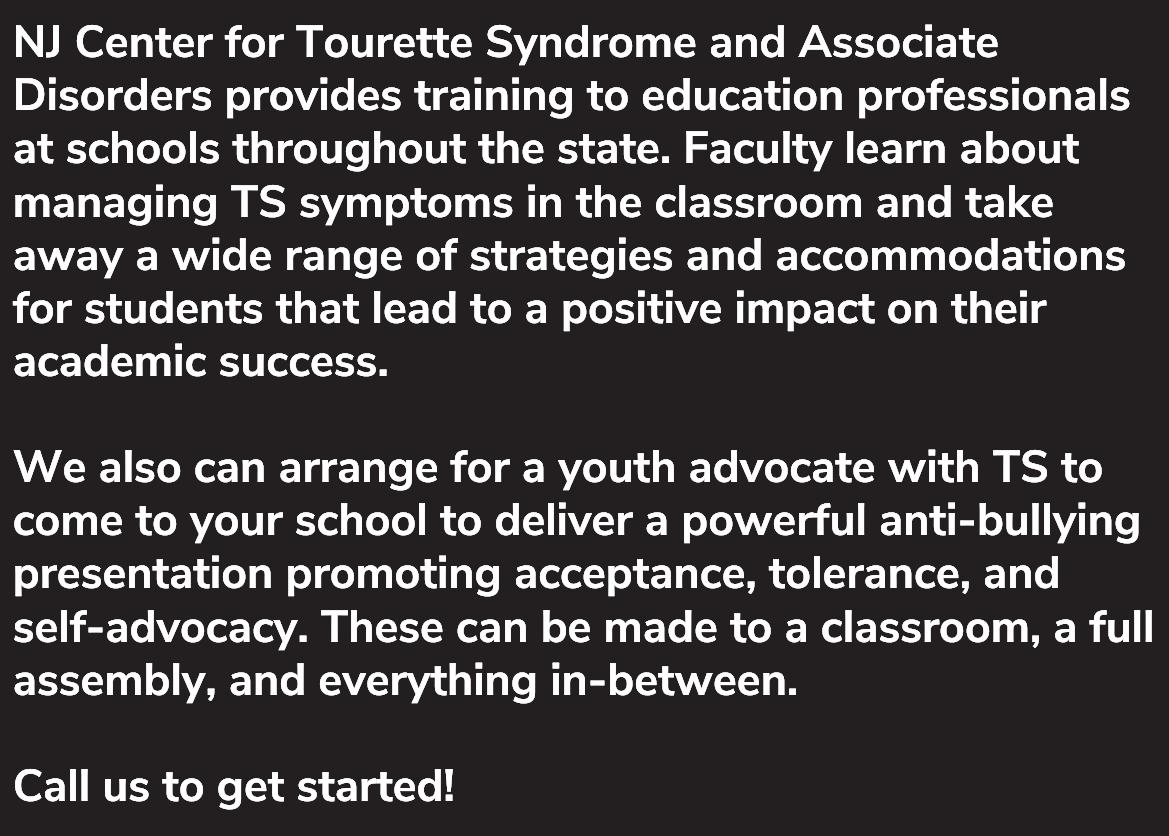
Pediatric Dentists: Mike Lateiner, DMD Peter Paradiso, DMD and Associates
Orthodontists: Denise Kitay, DDS, MMSc
218 Ridgedale Ave., Suite 203, Cedar Knolls 973-585-6756
kidzworld218@gmail.com
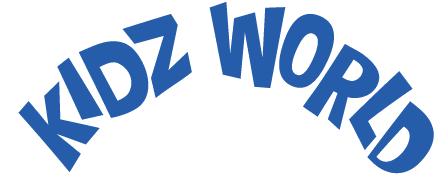
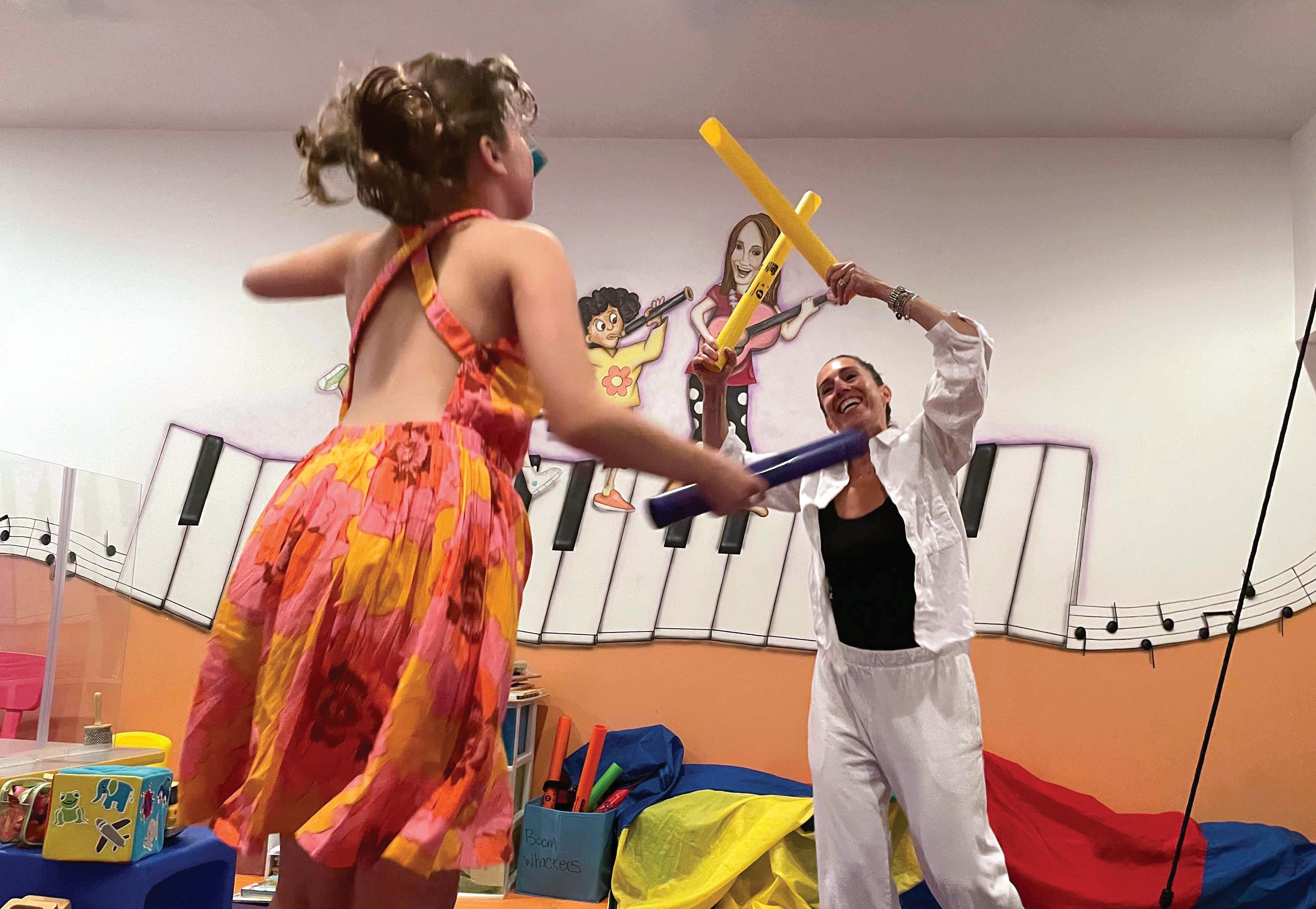 By RONNIE KOENIG
By RONNIE KOENIG
As a mom of an 11-year-old girl on the autism spectrum, I noticed early on that my daughter E had a strong connection to all types of music. Whether it was a kiddie song she heard in preschool or a rock song we played for her in the car or just hanging around the house, she would hear a tune once and immediately commit it to memory. While it was incredibly difficult to tease words and later sentences out of her, melodies flowed from her with ease and her clearest voice can be heard when she is singing.
I marveled at my girl’s capacity to engage with music but was at a loss on how to use this ability to help her connect more with the world around her. When she was little, we tried piano lessons, which she seemed to like, and in elementary school she participated in choir, but was usually content to listen, not join in with her peers. Then later in the evening, usually during shower time, I’d be treated to a full concert of all the music she’d learned that day.
THE BENEFITS OF MUSIC THERAPY
I desperately wanted to use music to help open up E’s world, but only recently learned about music therapy, an evidence-based approach to using music to accomplish individualized goals. Working with a certified professional, this type of therapy can be used to work on increased communication, better listening skills, addressing behavioral concerns, more confidence and even anxiety management.
While my daughter happens to be very musical, musical ability is not a prerequisite for reaping the many benefits of music therapy. The sessions can result in an outlet for creative expression for kids on the spectrum and the skills learned in this setting can become the impetus for increased social interaction, which is something people on the spectrum find challenging. Because many people with autism spectrum disorder seem to respond to music, it can be an excellent therapy tool for working with them, according to the American Music Therapy Association.
Jenn Pacht-Goodman, a board-certified music therapist from Watchung, was an aspiring Broadway actress for years until she
RONNIE KOENIGheard about music therapy.
“Music therapy is not music lessons,” she explains. “Music therapists are trained to work with people with special needs, which can include but is not limited to children and adults with developmental disabilities, mental illness, the elderly suffering with dementia and more. In order to hold the title of MT-BC the music therapist must complete coursework at an accredited college, complete an internship and finally, successfully pass the music therapy board exam.”
Pact-Goodman, or “Jammin’ Jenn,” as she’s known to her students, says the goal of music therapy sessions is to make a meaningful connection through music. This can include singing, instrumental improvisation, lyric analysis and more.

“Each session starts with a ‘hello song,’ giving the client the opportunity to participate or just understand that the session is starting,” she says. “It’s very common to use the same ‘hello song’ weekly, allowing the client to learn words, participate and ultimately provide a boost of self-expression and self-esteem. The same goes for a ‘goodbye song.’ ”
Jammin’ Jenn and her staff work with children in both individual and school settings and she’s seen the magic of music work firsthand as a non-verbal child begins to acquire language, sounds and words in a session.
My daughter had the chance on several occasions to work
with Jenn and I observed as she played guitar and piano, teasing words and music out of E as she engaged with her. She waited for E to respond and ask for what she wanted and within a short 30-minute session I could see that this method was a perfect fit for encouraging E to do everything from making eye contact to singing and speaking in a “call and response” to Jenn’s exuberant music making.
It’s also no small thing that joining in music is something that makes E happy! Usually content to play on her own, I’ve seen my daughter engage with her peers over a shared love of music (from Taylor Swift to Lil Nas X) and she’s initiated communication with me by singing songs she’s learned until we are having a back and forth that feels like talking, but only better. I’ve seen music go from being something she enjoyed hearing to something she enjoys participating in. Through music, she’s found not just a way to engage with others, but something that she is skilled at and enjoys.
Because music is universal, it can be an amazing bridge for individuals to connect with others. Music therapy provides stimulation that may help to decrease self-stimulatory behaviors and it can give those with minimal or no verbal communication a way to be heard and to reciprocate with others. It can also simply be a fun, confidence-building experience!
Jammin’ Jenn’s Music Therapy Program is now in over 25 schools throughout New Jersey. But if your school isn’t one of them, you can still reap the benefits by checking out her YouTube channel, Jammin’ Jenn and Friends, where she provides a free educational resource for all kids. Go to musictherapy.org to find a music therapist near you.
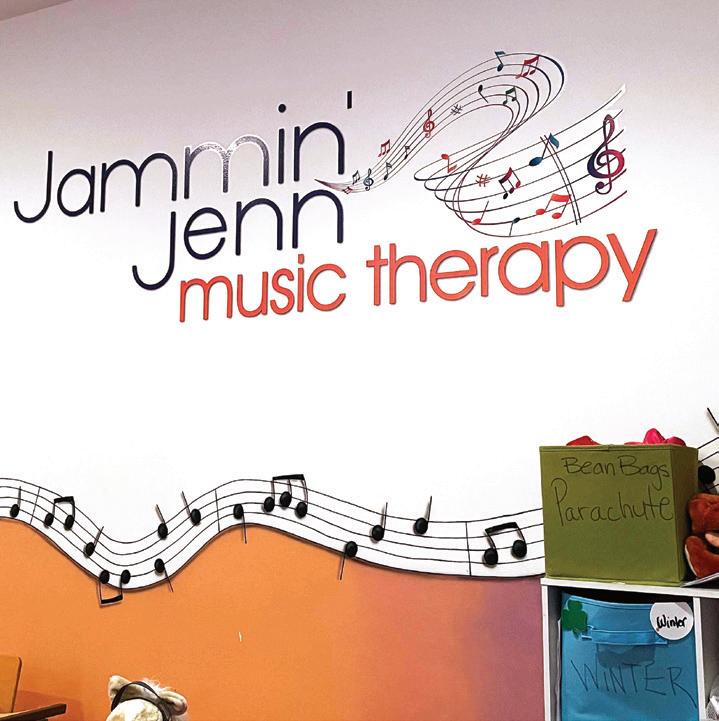
BECAUSE MUSIC IS UNIVERSAL, IT CAN BE AN AMAZING BRIDGE FOR INDIVIDUALS TO CONNECT WITH OTHERS.
“My kids love going to Dr. Lam. He makes their dental experience fun and not stressful. He’s professional and his office staff and assistants are always friendly and kind.” -
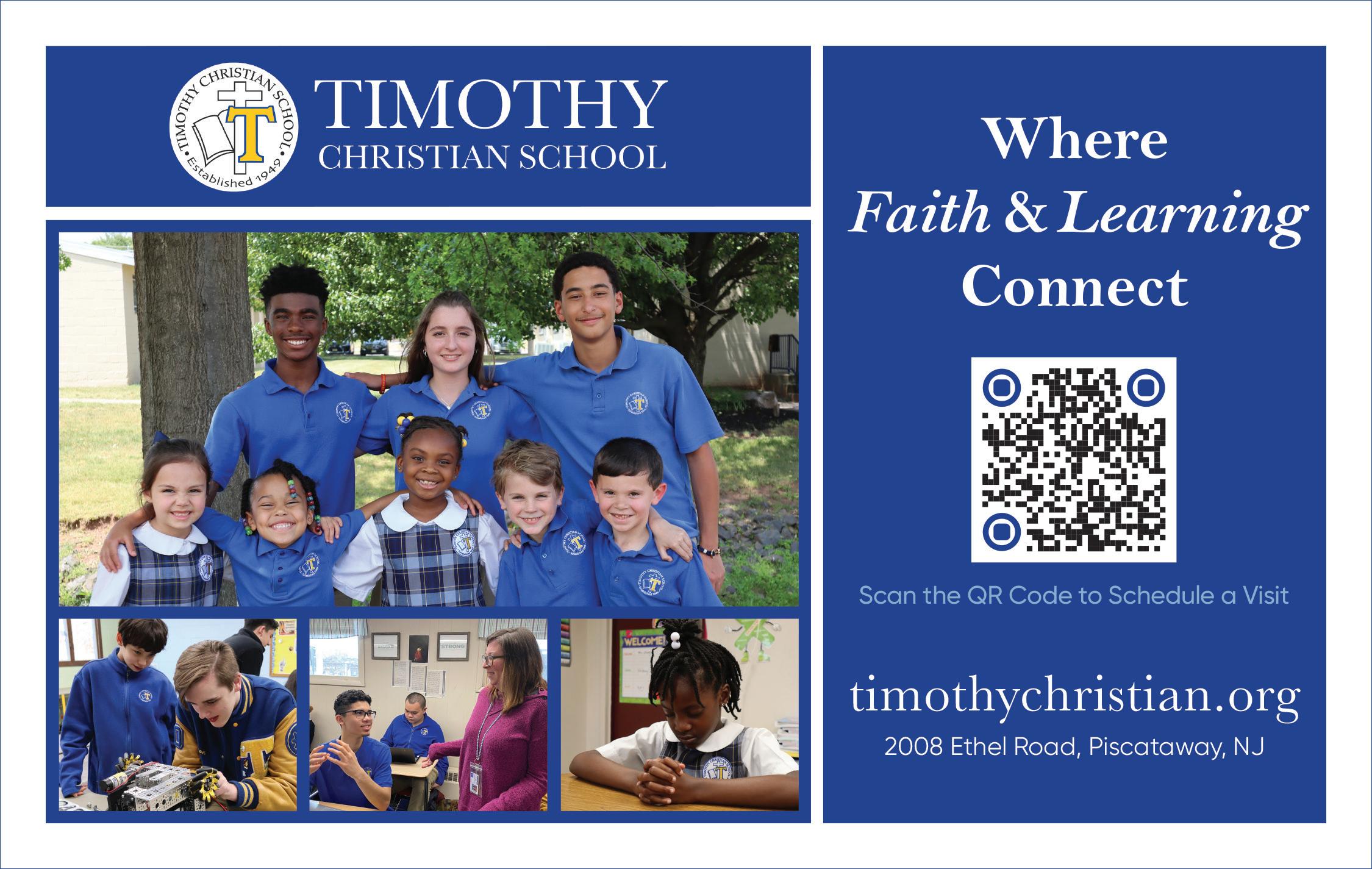

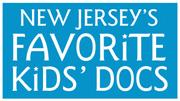
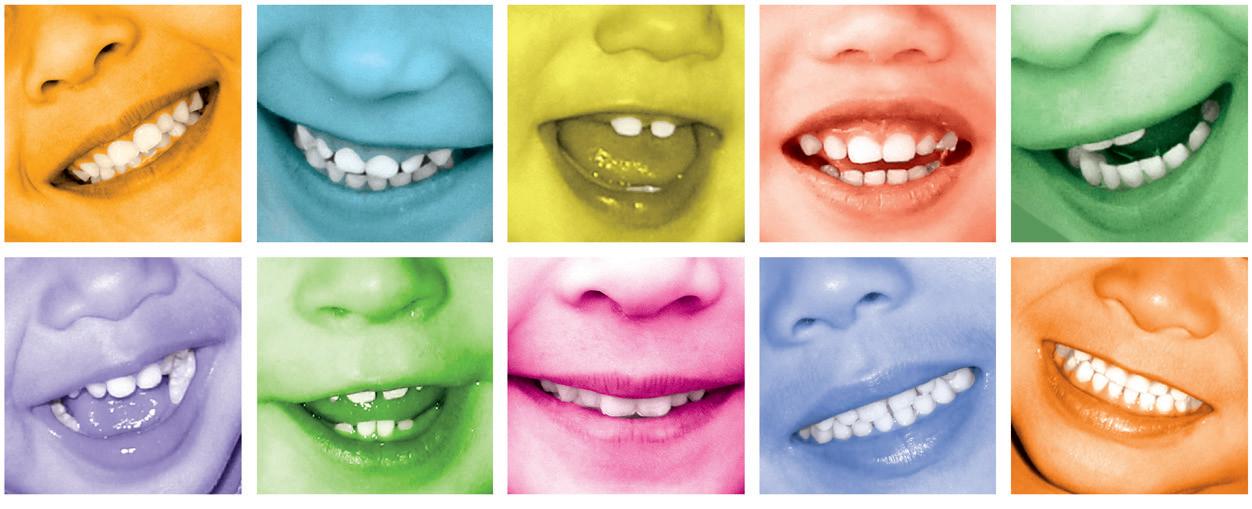

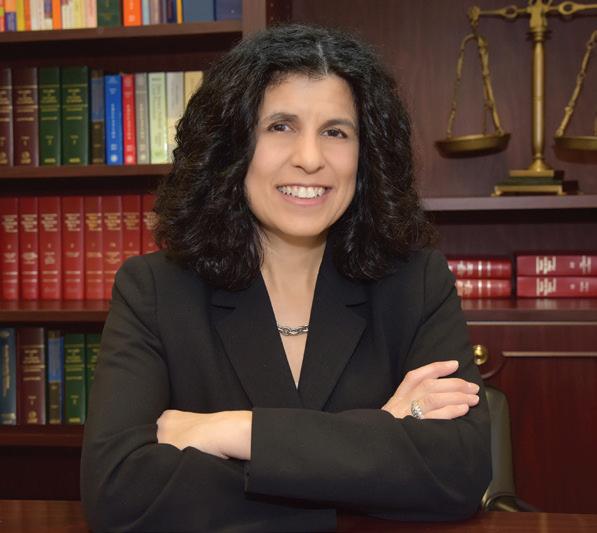
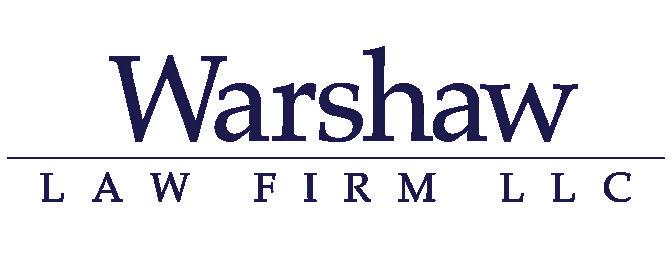
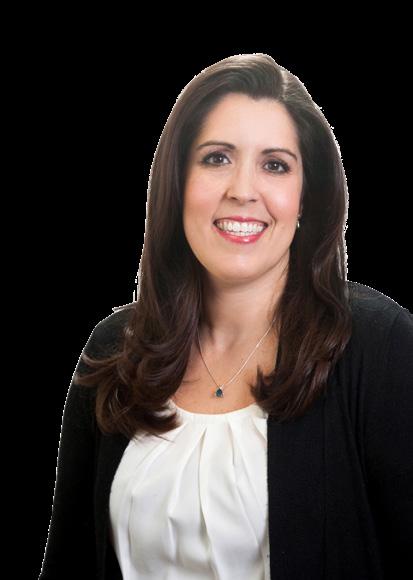

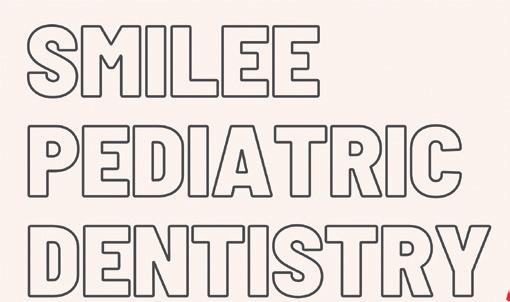










Parents opt for private school for myriad reasons with the same goal in mind: an independent education perfectly-suited to their child. From academics and extracurriculars to practical matters such as location and affordability, finding that “just right” school can be elusive. Even if you’re certain an institution checks off all the right boxes, it’s still not easy to determine if it will be right for your child. So how can parents maximize their chances of a well-made match?

The first step to finding a fitting private school is to create a list based on both the pragmatic and aspirational. Perhaps you have a school in mind, are set on something like co-ed, or are excluding any school without deep connections to the Ivy League. Instead, keep an open mind—you don’t want to limit the chance to be surprised. At this point, you might be thinking about tuition too, but don’t, not yet. Once you account for things like grade, location, day or boarding, and religious affiliation or not (if that’s critical), you’ll likely find a manageable list ready to be explored. It’s also a good time to ask friends and members of your community for school recommendations—they’ll be a great source for information later in the process.
School websites offer a trove of information, typically highlighting everything from mission and admission requirements to student life and academic philosophy. Every school sounds amazing, of course, but now’s the time to get a sense of whether a school is genuinely STEM-focused, stresses traditional or progressive learning, if diversity and inclusion are a priority, plus important stats like class size and studentteacher ratio. You’ll get a feel for the facilities, sports and extracurriculars offered, and perhaps what the school values.
You may hit upon something small that completely resonates. For example, Sharon LeVasseur’s interest in The Pingry School was initially piqued by the school’s website, which highlighted things she knew her now 8-year-old son liked, including chess and puzzles. “We knew it would be a good fit,” said the South Orange mother (her 6-year-old also followed his brother to Pingry’s lower school in Short Hills). Websites can help parents rule out schools that don’t feel right, but also serve as a jumping off point for the next step in your search: visiting in person.
Touring facilities, meeting students, educators and staff, hearing about different academic approaches, identifying the values and qualities that make each school unique — these are things only an open house can provide, which is why everyone from administrators to parents will tell you it’s an absolute must. And if you’ve done your research, you’ll be prepared to make the most of the Q&A that typically follows each presentation.
It’s a time commitment for sure, but it’s worth it, and falling for a school at the open house (even one you didn’t expect) isn’t uncommon. “Basically when [Head of School] Jennifer Landis at Oak Knoll School of the Holy Child opened her mouth to speak at the open house, that was it, I knew I was in the right place for our daughter,” says Andrea Wiideman-Basso, whose upper school student has attended the Summit school since third grade. In fact, her 10th grader loves it so much that she commutes daily from Manhattan, where the family relocated from Maplewood in 2022. “Besides the great curriculum, exchange programs, service programs, etc., I got a sense they cared about the whole development and success of the individual,” she added, noting that she wasn’t necessarily looking for a Catholic school - which is why even if you think you’ve found the “one,” don’t settle until you’ve seen all the schools on your list.
Even at that, an open house is just an introduction. “It’s important to visit a school and take a tour during the school day,” says Saydi Callahan Keefe, director of admissions at Lacordaire Academy in Upper Montclair, so that parents get a feel for learning spaces, while observing teaching styles, student engagement and class sizes. For McKenna Schray, a small class size was key to choosing
Our Lady of the Lake in Verona for kindergarten. “The thought of him being in a classroom with 20+ students and not getting the oneon-one instruction/attention he needs to thrive was what drove us to seek private school options,” said the Roseland mom, noting that her son had early speech and reading issues, and that the school accommodates many students with disabilities.
All parents should be open with admissions staff about their child’s needs and share with them what they’re looking for in an educational experience, says Callahan Keefe. “Finding the right school is about the right fit for both the family and the school. Each side of the partnership comes to the table with expectations, educational values and a vision for success. It’s important that everyone is on the same page so as to ensure a positive experience and a love of learning for both the prospective student as well as the students who are already members of the school community,” she says.
Once you’ve learned what you can from the administration, it’s time to engage the community. Take advantage of any occasions to spend time interacting with students and their parents. Go to school events. Do kids seem cliquey or down-to-earth? What about the parents? Is there a happy rapport between students and staff? Staff members are generally excited to introduce potential students to the school community. “We want them to speak with our students, parents, faculty, attend a game or a play. We want them to get a real feel for what it’s like to be part of the community and talk to those who are living the experience,” says Alexis Sommers, director of admission and financial aid at Newark Academy in Livingston, “and we hope that they find a genuine sense of belonging within our school and community.” Naturally, school-directed connections will highlight the sunny side of things. That’s fine, but consider taking advantage of social media and your social network to connect to
parents willing to really dish the dirt.
It’s easy to be swayed by gorgeous grounds, state-of-the-art labs and impressive alumni. But make sure to give weight to a potential school’s stated philosophy, ideology and purpose as well as its visible diversity—that can tell you if your child will thrive or not.
“I’d suggest that students and families search for a match between their values and a school’s values. In particular, I would encourage families to carefully consider a school’s mission statement and if or how the school lives their mission,” says Sommers.

Of course, you’ll likely hear many of the same words at different schools: diversity, curiosity, passion, character, collaboration, rigor. Ask for specific examples regarding how these qualities manifest in the day-to-day lives of students. Take curiosity…does this mean that independent study is offered and encouraged? Or character… is there a moral code students must uphold? And diversity…does this mean you’ll see a few nonWhite faces or is equity a value fostered through actions? Ask the hard questions.
And then there’s the practical. The perfect school with a grueling commute that your family can’t afford isn’t perfect. Still, it’s worth talking to the administration about your concerns. For some kids, a long bus ride (if offered) allows kids to socialize with friends, get homework done, or decompress after a long day. And independent schools are increasingly offering financial aid to families to foster economic diversity. Remember, schools also care about fit and will work to enroll students they, too, believe will be a match.
The truth is that fit can’t be truly determined until after your child is enrolled and settled in. A school that checks all the boxes may turn out to be a mismatch. A fabulous new friend group may turn a not-quite-right school into a dream. Don’t drive yourself crazy with worry over making the wrong choice. Said Basso: “Once I let that go, my attitude was a year at a time. In the end, I trusted my intuition and so far, so…not just good, but great.”
Bergen County’s Premier Resource Center
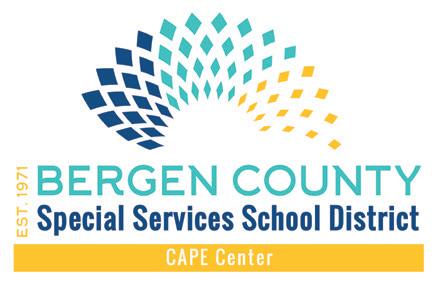
Providing Information and Referrals for Individuals, Families, and Professionals

We can help you access information regarding:

• Developmental Disabilities Resources

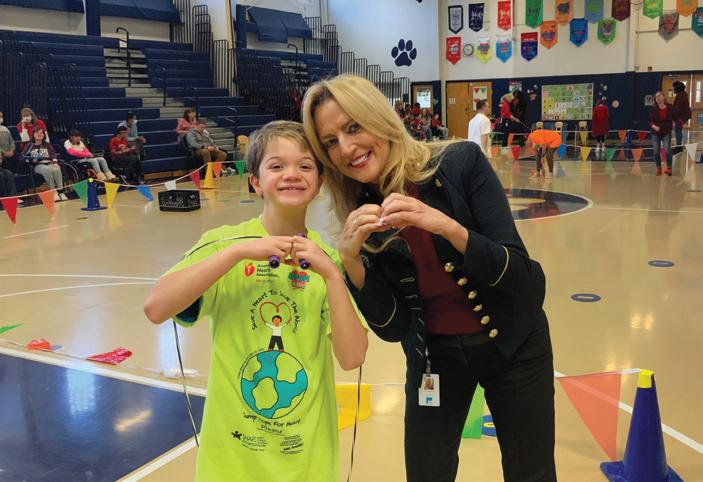
• Transition Planning Information
• Recreational Programs/Summer Camps
• Mental Health Services
We offer workshops for professionals and parents on a variety of topics related to disabilities, as well as sponsor monthly Parent Support Groups
For a complete list of current workshop offerings, visit http://bcss.bergen.org
Linda Wieseneck, Director 540 Farview Avenue, Paramus, N.J. 07652 201-343-6000 Ext. 4067/linwie@bergen.org
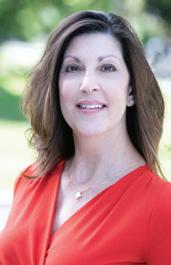
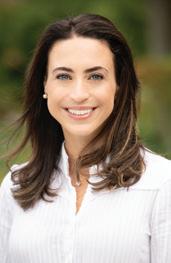
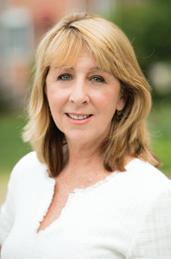
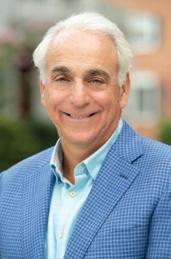


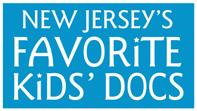

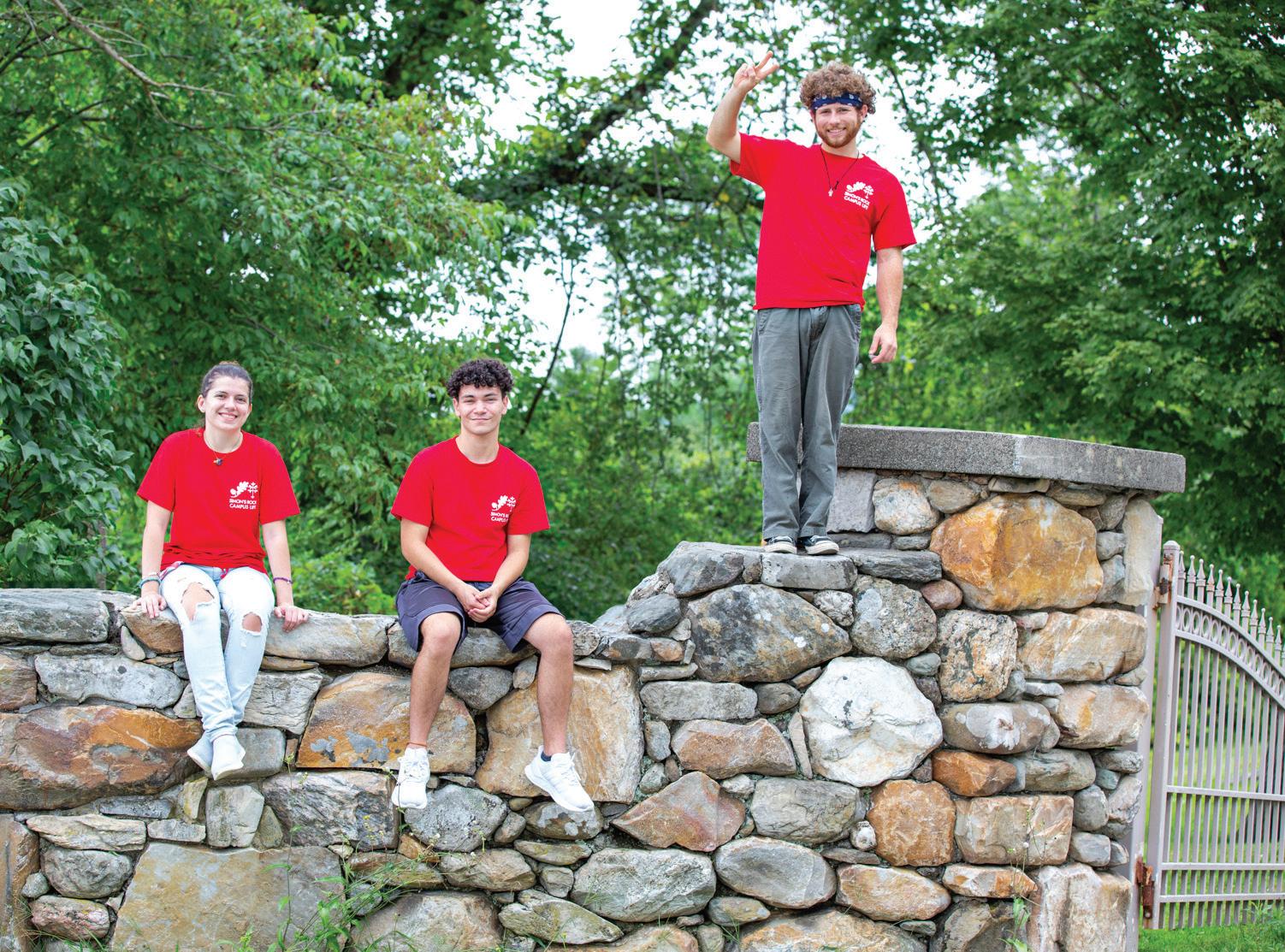
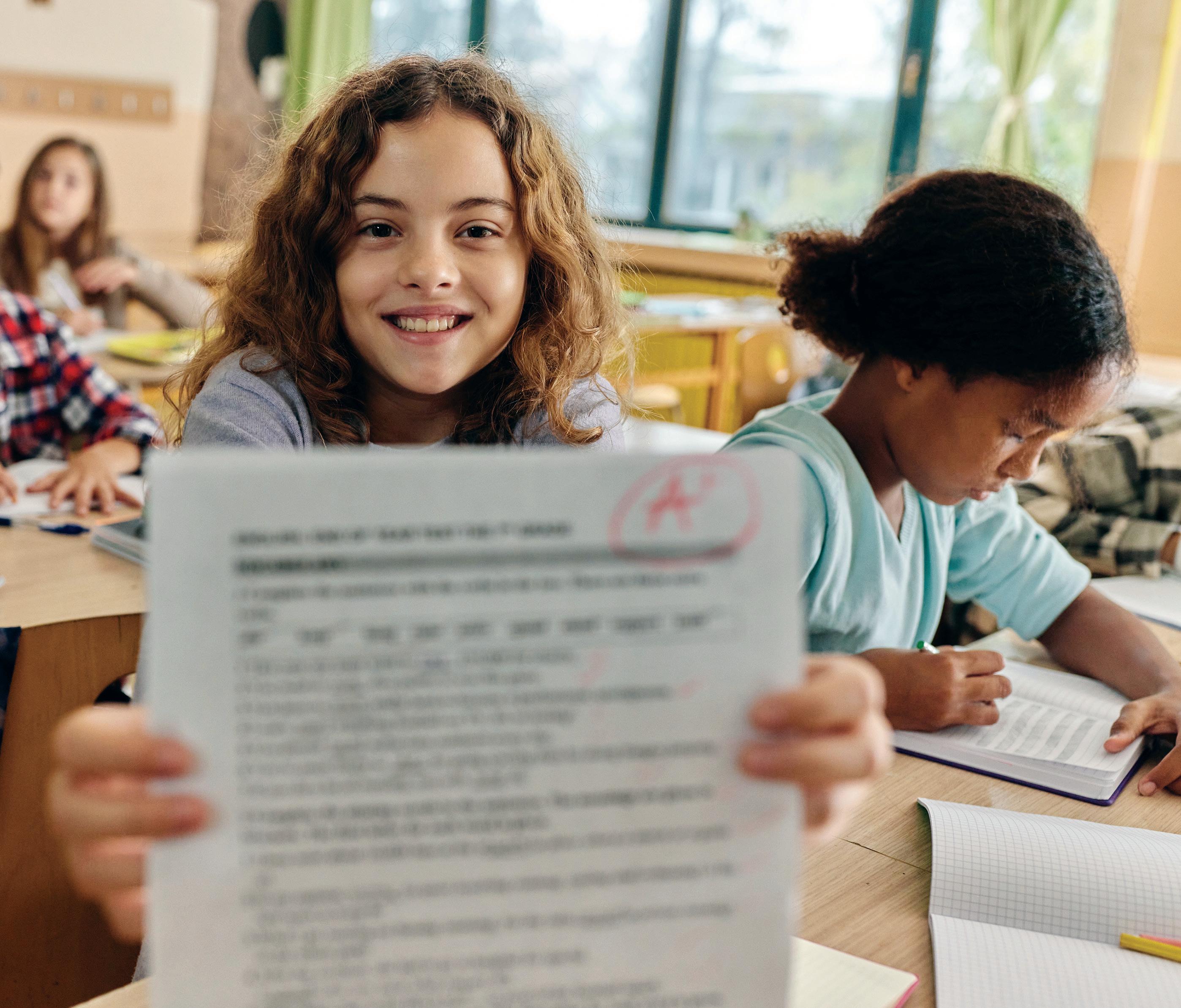
How to look beyond reports cards to gauge your child’s real academic progress
BY LAURA WATERSHow do you know whether your child is making appropriate academic progress in school? Most parents rely on report cards. If your child gets a high grade in a subject, you celebrate and consider the issue resolved.
Here’s the problem with that approach: School report cards are the least accurate way to gauge your child’s proficiency in academic subjects. “We’re not helping parents in ways that we should be to make sure they have that complete, accurate picture of how their child is achieving,” says a report from the non-profit Learning Heroes.
Because over the last decade grade inflation, especially in high school, has become rampant. That “A” your child brings home in math may not signify the progress you think it does. But parents don’t know this, which accounts for surveys that show 90 percent of parents believe their children are performing at grade level even though only one-third of students graduate ready for colleges or careers. Here’s a reality check from the leader of the company that publishes the ACT standardized test: “What we now know is that grade inflation is real. It is systemic, and it weakens the value of student transcripts as a measure of what students know and are able to do.”
They’re under enormous pressure to inflate grades, in part to make their district look good and boost graduation rates. However, by exercising your parent power you can find out how your child is really doing in school.
Start with the opportunities presented during parent-teacher conferences. This is most often valuable while your child is in elementary school and the teacher has an opportunity to get to know her students well. (Lucky parents—and kids!—may find they can rely on accurate appraisals of their child’s academic growth from teachers in middle and high school.) Often these conferences feel rushed, and you may see other parents waiting for their turn. Show up a few minutes early and prepare your questions. You might want to let your teacher know in advance that you have specific topics you want to cover; there’s nothing wrong with being proactive. (The district is required to provide a translator for those not fluent in English.) Of course, your questions don’t all have to be about academics: you can ask about your child’s behavior or friend group or whether the teacher has noticed any social-emotional problems.
Don’t let the most recent report card take the place of a
substantive discussion of academic progress. How do you go beyond inflated report cards? Ask to see the results of a test given by many districts, often called “interim formative assessments,” low-stakes, computer-based, adaptive evaluations given two or three times a year that measure each student’s progress towards the goal areas in each learning standard. If you don’t know if your district administers these tests, just ask; if your district isn’t gauging student learning objectively, that’s something that needs fixing! The results on these tests are free from grade inflation and can give you accurate information about your child’s academic progress. The most common formative assessments used in New Jersey’s K-12 schools, primarily for reading and math, are NWEA’s MAP tests and Curriculum Associates’ iReady tests.
MAP and iReady reports can look intimidating but that’s because they have so much good information. During your conference, or at another time that’s mutually convenient, your child’s teacher can explain each category. Here you’ll be able to see how your child’s progress compares with others in his class and in relation to grade-level expectations. And remember, you can always request an additional conference if you need more time to understand the report. (You can also go to teach.mapnwea.org for instructions.)
Sure, your child can have an off day and not do well. But over the course of the year these formative assessments will give you an accurate window into your child’s academic progress. If you’re concerned and want more information, just ask the teacher for monthly information in the form of an email or phone call—no need to wait for the next parent-teacher conference.
Ask your child’s teacher what resources are available to catch up your child up and whether the school has eliminated the possibility of a learning disability. Sure, COVID school closures wrought havoc on student learning. But each district in the United States has access to federal emergency funding to close learning gaps, and many have begun high-dosage tutoring programs, the most effective intervention for pandemic learning loss.
The New Jersey State Department of Education is also working on a plan called the New Jersey Partnership for Student Success (nj.gov/education/njpss/) that provides tutors for children who need more help than their school is providing. While recruitment of tutors has been slow, it’s worth asking about this potential resource.
In addition to the MAP/iReady tests, each student takes a second form of standardized assessments because, by federal law, every state has to administer annual standardized tests. In New Jersey these tests are given in the spring and are called New Jersey
Student Learning Assessments (NJSLA). They measure student proficiency in math and reading in grades 3-8 and once in high school. (Science tests are given in grades 3, 8 and 11.) The results are often not available for as long as six months but you have a right to see these as well. Students receive scores on a scale of 1-5, with five the highest (exceeds expectations) and one the lowest (does not meet expectations). Scores of 4 and 5 are considered “passing.”
Your research doesn’t have to end here. NJSLA assessments are a form of accountability to the public and the federal government and the state Department of Education (DOE) must release the scores—not by name of student but in the form of subgroups. Subgroups include African-America n students, Hispanic students, White students, Asian students, English language learners, students with disabilities, etc. These results allow you to gauge how well your school and district do in relation to other schools and districts.
If you want to see how your school or child’s subgroup does, first go to rc.doe.state.nj.us and look for “School Performance Reports.” This page lets you choose data for each school or district. If you live in Cherry Hill and your child attends Horace Mann Elementary School, you can find that school’s data by
either clicking on “School” (the list is in alphabetical order) or on “District.” Then click on the school’s name and you’ll see a long list of different sets of information, from demographics to test scores to school culture to teacher qualifications. Sure, it’s not your child specifically, but it’s a good way to compare your child’s NJSLA results with other students in the school.
If you’re thinking about moving to another district, your first stop to check school quality is to review the DOE’s School Performance Reports.

Remember, information is power and, as your child’s most important advocate, you need to have reliable data. If your child is struggling in school, what exactly is getting in the way? If your children come home with all As on their report cards, is that an accurate measure of their academic progress? The answers are there. All you have to do is look.
—Laura Waters is the founder and managing editor of New Jersey Education Report. She and her husband have four children and have lived in Central Jersey for 30 years.
REMEMBER, INFORMATION IS POWER AND, AS YOUR CHILD’S MOST IMPORTANT ADVOCATE, YOU NEED TO HAVE RELIABLE DATA.
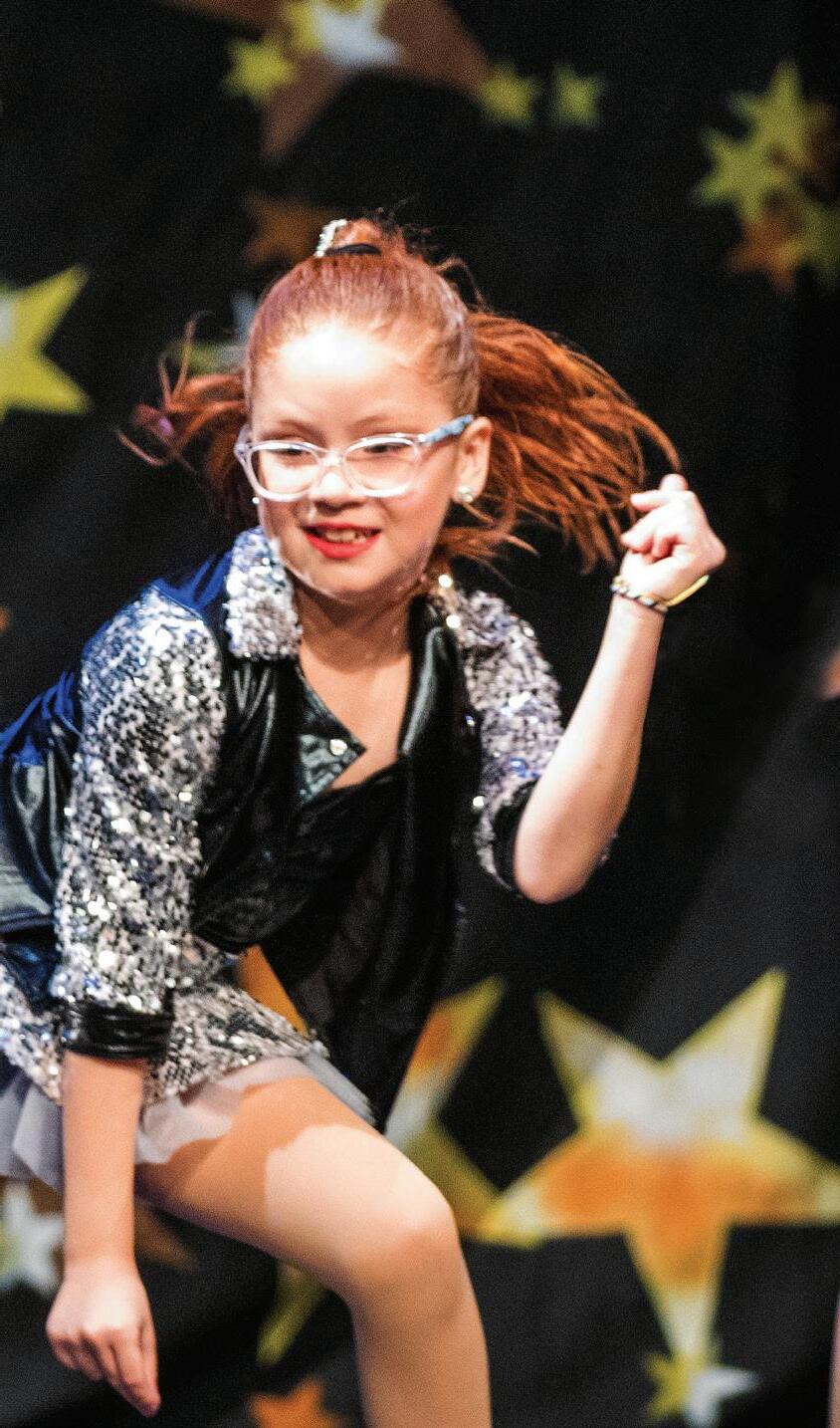


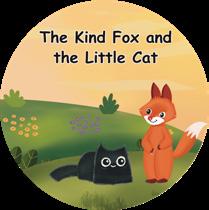
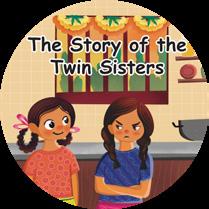


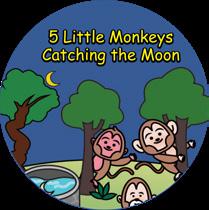










A passion for learning, a standard of excellence and a generosity of spirit.
Middle School OPEN HOUSE: Grades 6 - 8

Saturday, October 14
2 - 4 PM
VISIT US!
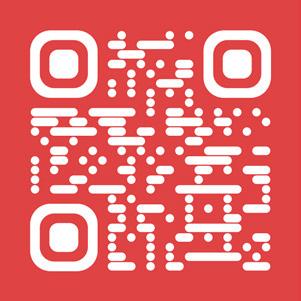
Upper School OPEN HOUSE: Grades 9 - 12


Saturday, October 28 10 AM - 12 PM
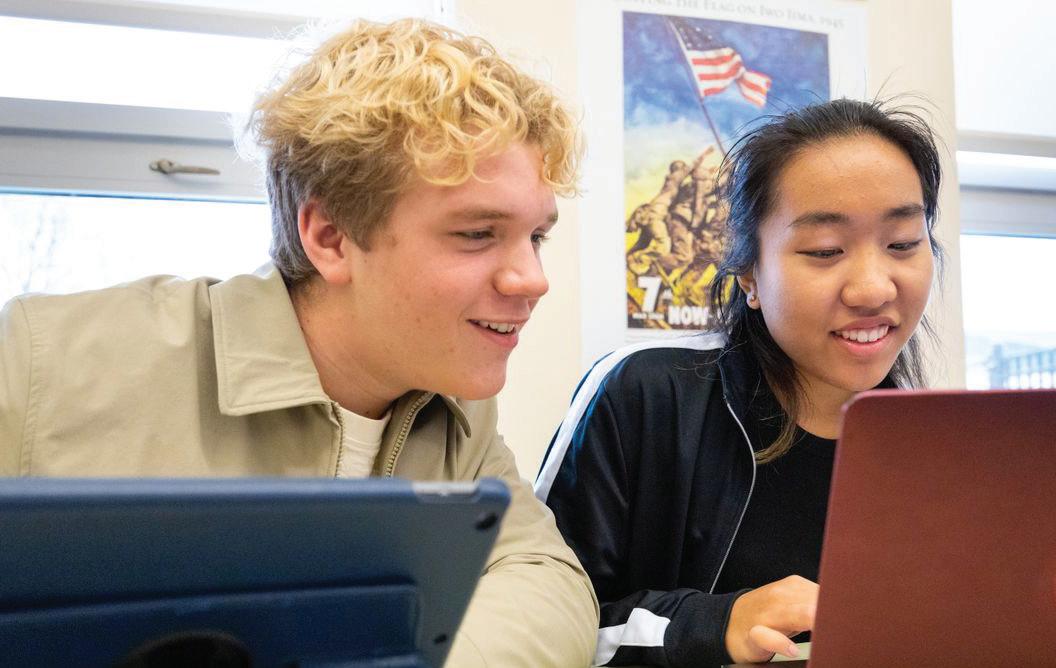

Within a culture of support and collaboration, Morristown Beard School (MBS) students discover and develop their individual pathways to academic success and personal fulfillment while becoming enlightened, morally responsible citizens of the world. A private, independent and coeducational day school for Middle School (grades 6-8) and Upper School (grades 9-12), MBS’s small class sizes and dynamic curriculum allow students to engage in deep learning and unlock their passions.
“Parents and students alike appreciate Morristown Beard’s student-centered approach, where students are seen, heard and known,” says Director of Enrollment Management Rob Mitchell.
MBS offers more than 20 athletic programs and 40 student-led clubs and community service opportunities, from student government, newspaper, Model UN and yearbook to drone club, coding, business finance and investing and architecture and engineering. An independent study program encourages students to explore areas of interest that fall outside the traditional course catalog. But while academic success and intellectual growth are embraced at MBS, it’s never at the exclusion of social and emotional growth. Class schedules are designed so students can balance academics with athletics, the arts and extra- and cocurricular activities.
“MBS is a supportive and collaborative community where students are empowered to have agency over an academic journey that challenges, inspires and fulfills them,” says Head of School Liz Morrison. “We help students maintain a balanced approach to rigorous academics and enriching extracurricular activities.”
MBS is a place for experiential, handson learning, with signature academic programs that include Learning Outside the Classroom Walls and Social Emotional Competencies in Middle School. In the Interdisciplinary Concentrations Program (ICP) in the Upper School, students apply for one of four concentration pathways at the end of their freshman year: Arts and Innovation; Global Citizenship; Ethics, Leadership, Justice; or Data Analysis and Research Methods.
“Experiential learning is central to the educational experience at MBS, as we aspire to help students make connections between their classes and the world beyond school,” Mitchell says.
Morristown Beard School’s 22-acre campus provides state-of-the-art spaces to facilitate its commitment to innovative teaching and learning, highlighted by the 8,000-square-foot Center for Innovation & Design (CID), 25,000-square-foot Math & Science Center and Science on a Sphere®, a six-foot diameter sphere that uses computers and video projectors to display planetary data.
“The CID is the heart of our innovation
culture, offering cutting-edge technology and dedicated studio spaces where students can immerse themselves in the design process and hone essential skills in critical reasoning, teamwork and problem-solving,” Mitchell says. “From app development to 3D printing, the CID empowers our students to explore emerging fields and make a positive impact in their community.”
MBS believes that a successful rigorous academic program also includes a commitment to academic support for all students. The school’s state-of-theart Centers for Learning provide an unparalleled network of academic support services for students. “Our Centers for Learning also provide students with nextlevel experiences that foster creativity, innovation and collaboration,” he says.
MBS prides itself on fostering a sense of leadership and volunteerism both at school and within the community at large. To assist students on their journey toward becoming responsible and active global citizens, the school requires community service of all students in grades 9-12.

Along with achieving personal satisfaction and growing self-confidence, students enrich their communities and take on leadership roles to transform the lives of those around them. The school supports organizations such as Habitat for Humanity and hosts an annual blood drive, while international service trips include locations such as Peru, Costa Rica and Thailand.
“MBS continues to be a leader in student engagement and empowerment, and community service is embedded in our program,” Mitchell says. “From local to international outlets, MBS students and faculty contribute their time and talent to support the needs of the communities we serve.”


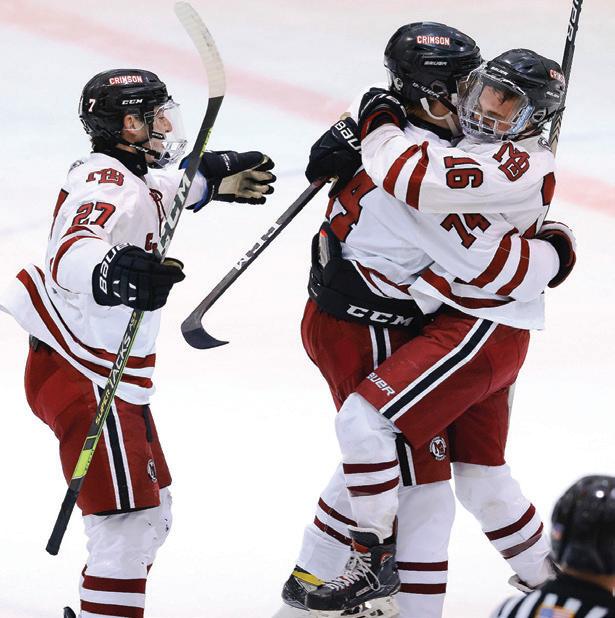

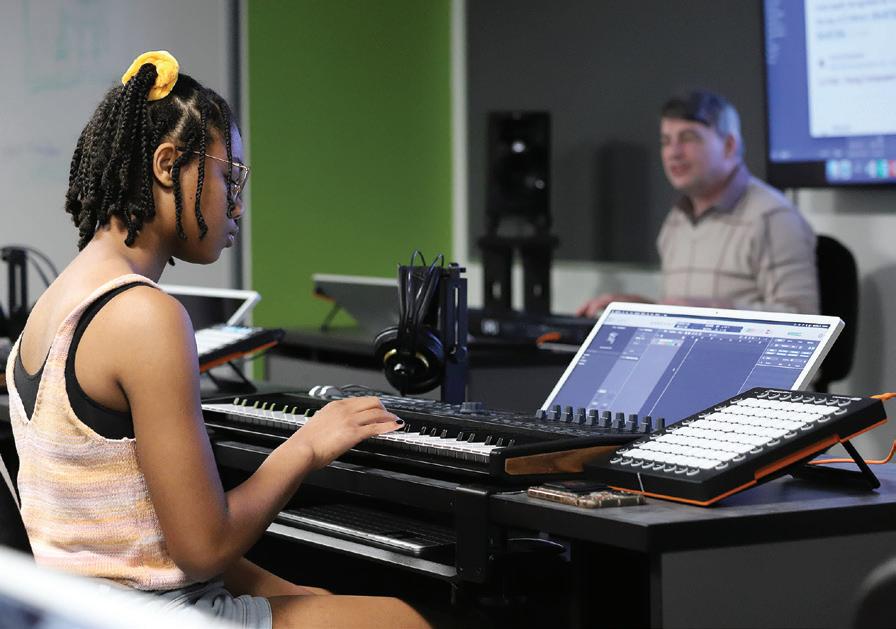
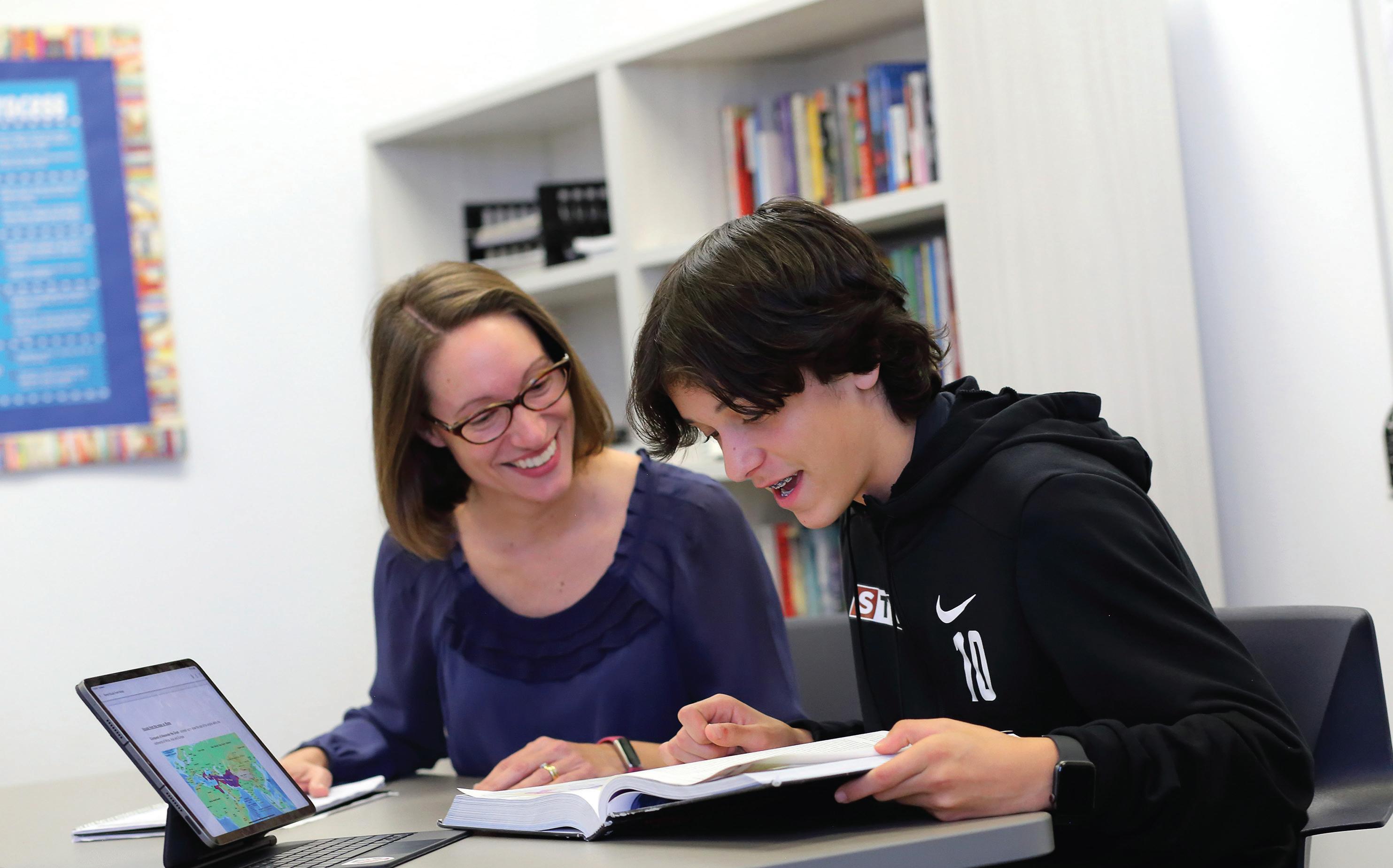
315 HILLSIDE AVE., DEMAREST • 201-768-7822 • HOLYANGELS.ORG
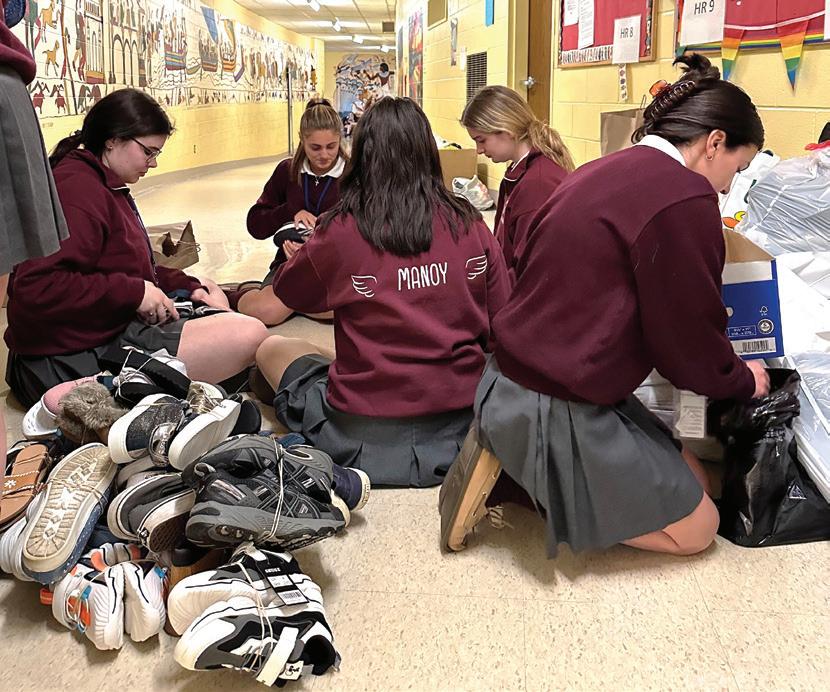

Angels are changing our world! The Academy of the Holy Angels’ “School Sisters of Notre Dame” (SSND) education inspires young women to be global citizens with a moral compass. Holy Angels’ nationally acclaimed STREAM curriculum (STEM blended with art and religion) is infused with the SSND vision of working toward peace, justice and the integrity of all creation.
Angels awaken to their responsibility to serve and have invested thousands of hours cleaning the environment, performing music for senior citizens and growing vegetables for a food bank. Others repair homes in West Virginia, restore hurricane-damaged areas of Puerto Rico or fundraise to assist the people of Haiti and Ukraine.
The SSND tradition guides each individual to reach the fullness of her potential and share her gifts with others. AHA Exclusives include a bespoke critical-thinking course hosted by Oxford University, Angels Advantage internships and access to inspirational United Nations programs thanks to the School Sisters’ NGO status. While volunteering at the Humanitarian Respite Center (HRC) in Texas last summer, AHA volunteers noticed the scarcity of shoes available to people in need. The travelers shared this need with their peers, who donated 466 pairs of shoes to the HRC.
A 2023 graduate earned AHA’s inaugural Carol Fay Social Justice Award. The recipient completed an ACLUsponsored course, and is now an aspiring civil rights attorney. She is immediate past-president of AHA’s PowerBack chapter, which promotes healthy relationships.
The SSND spirit is also evident at AHA
Middle School, where eighth graders created interactive bulletin boards highlighting civil rights leaders, calling for an end to racism and antisemitism and exploring the challenges immigrants face. This fall, the girls joined the Upper School’s walkathon to help bring service dogs to veterans. Some of the youngest Angels are a voice for female scientists whose work has been minimized or stolen. Under the mentorship of a Columbia

University professor, Women in Science and Engineering (WISE) members conducted experiments developed by the late teacher and astronaut Christa McAuliffe and raised awareness about women in science. WISE also presented research projects at Columbia’s STEAMnasium.
Angels not only become the leaders the world needs most—they are already showing others the path forward.
700 SHUNPIKE RD., CHATHAM • 973-410-0400
Chatham Day School (CDS) offers an ambitious program that promotes intellectual achievement and emotional growth in a diverse and nurturing environment, where students learn in small classes and can take advantage of its sprawling 15-acre campus. The school celebrates and values each child as a unique learner with extraordinary potential.
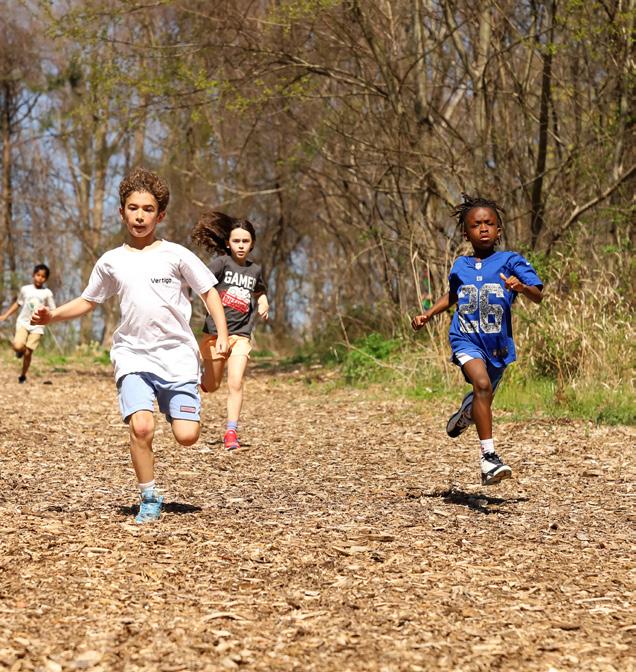
CDS is committed to keeping class sizes small, with a maximum of 14 students per class, to allow educators to provide differentiated teaching strategies and personalized attention.

“We will never sacrifice on the size of our classes,” says Head of School David Buffum. “We feel very strongly about holding to that philosophy, as the small classes are what allows the teachers to fully realize our personalized mission.”
The school offers an array of extracurricular activities, including theater, basketball, cross-country, chess and robotics. At CDS, every student is known, valued and celebrated, and the school is dedicated to fostering interests and encouraging meaningful relationships.
“Parents appreciate the frequent communication from teachers and the personalized approach from the ‘institution’—we always put that in quotes because we prefer to handle most issues relationally and not institutionally,” Buffum says.
As students push themselves outside of their comfort zones and into the spotlight, from classroom presentations to participation in the spring musical, teachers and fellow students reward this
bravery. In turn, students reach higher and further than they ever thought possible.
“We are proud of our teachers for being such good communicators, and proud of our students for rewarding bravery in one another,” Buffum says.
At CDS, teachers encourage selfadvocacy and leadership from even the youngest grades, whether it’s an
eighth-grader assisting a kindergartner in reading a new book or a pair of thirdgraders assisting younger students with a science experiment.

“Teachers are ubiquitous in all areas, and our administrators know each student and family member by name,” Buffum says.
“We have school events like everyone else, but it is in the aggregate of interactions that a community is truly made.”
850 NEWMAN SPRINGS RD., LINCROFT • 732-747-1959 • CBALINCROFTNJ.ORG
At Christian Brothers Academy (CBA), high school students develop into young men of high character who graduate ready to impact the world.
“The word most commonly associated with CBA is ‘brotherhood’—and that’s not just a buzzword,” Director of Enrollment Jennifer Maccarella says. “Our upperclassmen see it as their duty to fold our new students into the fabric of CBA.”
A two-time National Blue Ribbon School of Excellence, CBA’s educational model is known for its focused dedication to service and faith. Based on the teachings of St. John Baptist De La Salle, the founder of the Brothers of the Christian Schools, CBA has offered students a complete, holistic experience both in and out of the classroom since 1959.

“Teachers are asked to be mentors who help students identify and develop their unique gifts and talents. No child is simply the student who sits in desk three, row four, with a current 85.5 GPA, but rather a child entrusted to the care of the educator—deserving of mentorship and support on the levels of mind, body and spirit,” says Director of Mission Integration Matthew Meehan.
CBA students are involved in awardwinning theater and music programs, 18 interscholastic varsity sports and nearly 50 extracurricular activities, ranging from Model UN and math team to ping pong and art club.
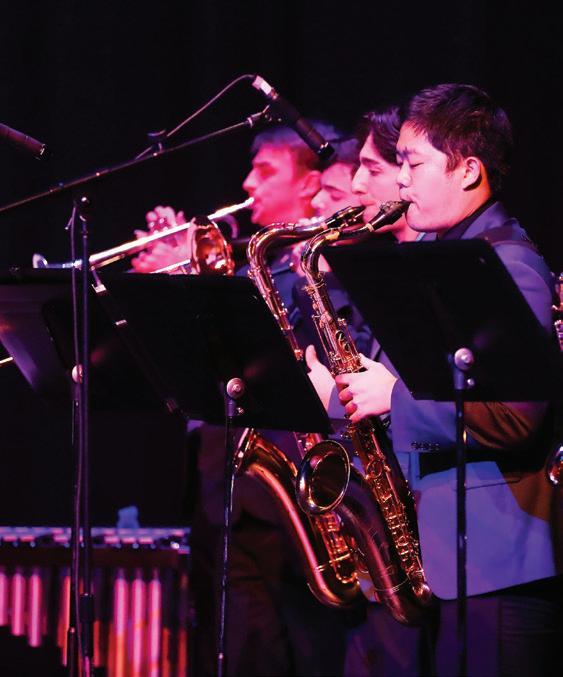
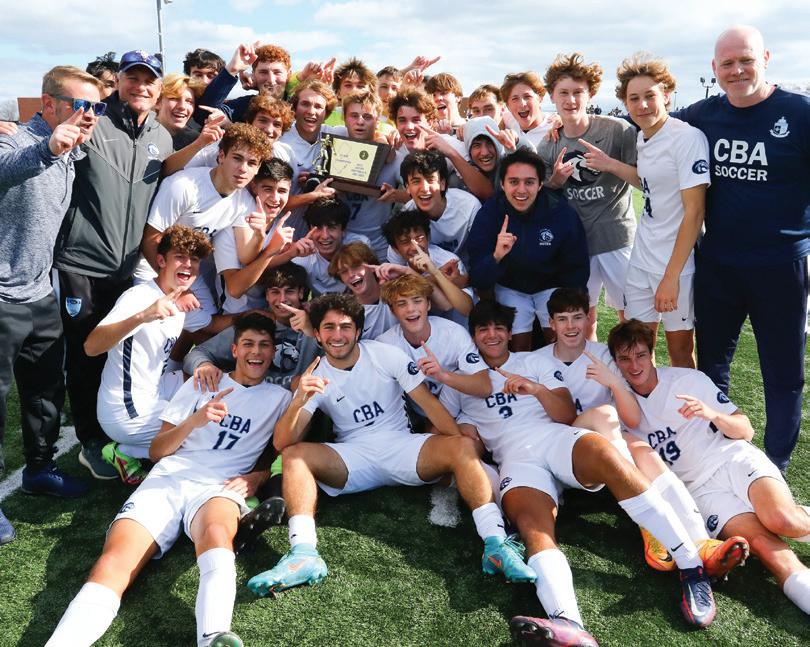
“The fact that students at CBA are learning at a high level while at the same time developing as grounded, wellrounded men of character helps to define what makes CBA unique,” Maccarella says. “Our graduates have achieved in the
classroom, on the fields, on the stage and in their communities and that translates to excellent college opportunities.”
The school also has daily theology classes and school-wide masses, class-level retreats and clubs devoted to community outreach, such as its Lasallian Youth service organization that makes frequent trips to less fortunate areas of New Jersey in need of food, clothing and other essential goods.
“I’m inspired by our students’ dedication and commitment to impactful community service experiences, both locally in Monmouth County and across the country,” says Principal Neil Begley, Class of 1996. “All of these components speak to the holistic approach of CBA’s Lasallian educational model where our mission is to develop young men of faith, character and action.”
An independent school specializing in working with students with learning disabilities in grades 2-12, The Craig School features small class sizes and proven research-based learning strategies, including structured language, multi-sensory instruction and a wholechild approach.

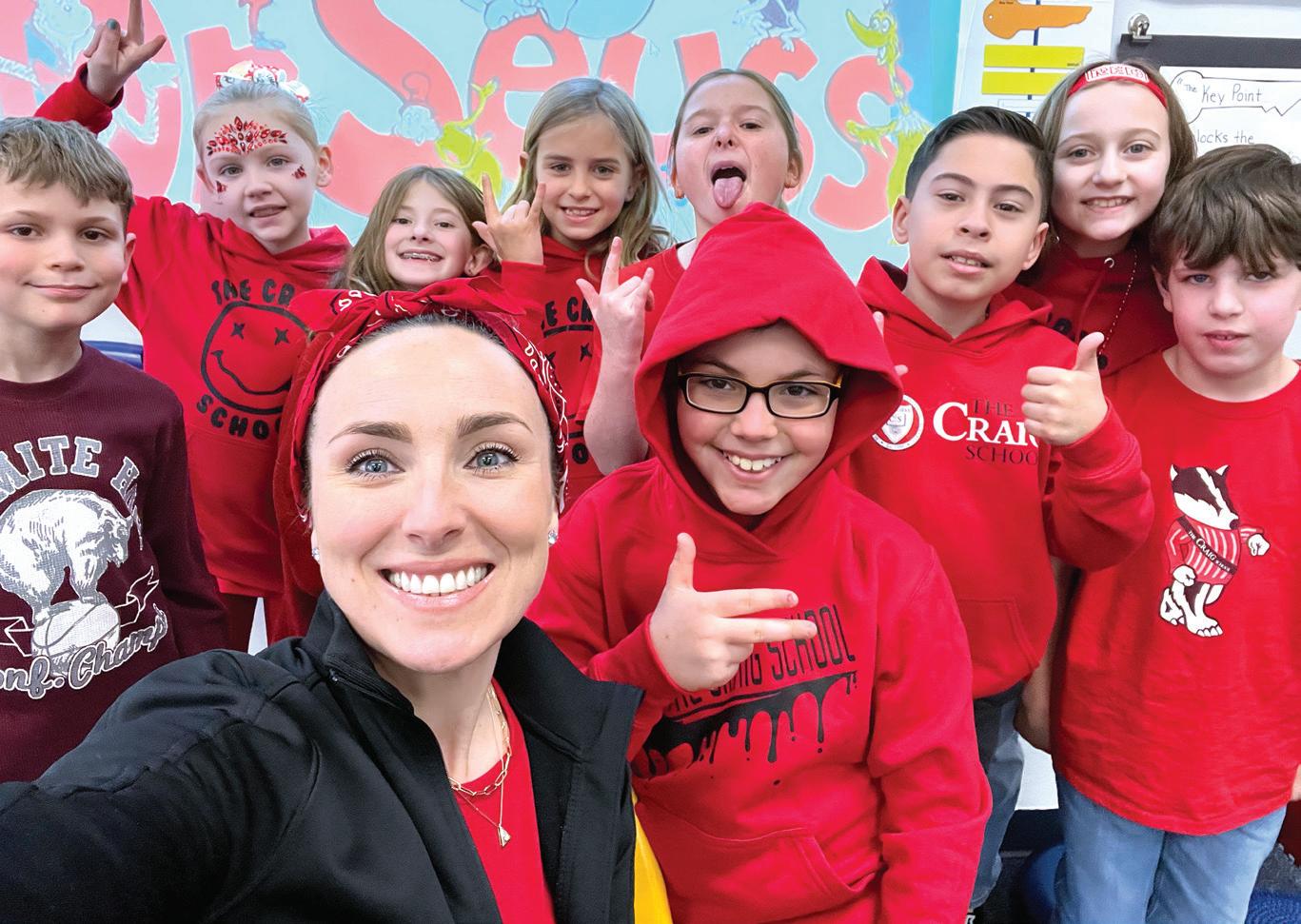
“We allow students to build their academic foundations, increase their ability to be active and independent learners and develop a sense of who they are as individuals and students,” says Head of School Susan Schmitt.
The Craig School focuses on providing individualized education plans (IEPs) or Formal Education Plans for each student, while the faculty, administration and staff are dedicated to uncovering their hidden talents. The staff collaborates with families and the school provides transition support for students as they progress through each grade level or move on to post-secondary education.
“The magic of The Craig School is that students are known for their strengths since they all face similar challenges,” Schmitt says. “These challenges may have set them apart in their previous schools, but here at Craig, we celebrate achievements and strengths to create confidence in each student.”
The Craig School is known for its specialized instruction tailored to meet the unique needs of students with learning disabilities. The school employs teachers trained in specific learning strategies and techniques, such as Orton Gillingham, that can effectively support students with diverse learning
profiles and allow teachers the ability to customize and individualize each student’s educational program.
The school provides a multi-sensory teaching approach to enhance learning and retention and uses technology such as text-to-speech software, speech recognition tools and specialized apps. Support services, including occupational therapy, speech and counseling are also integrated directly into each student’s

academic schedule.
“The Craig School strives to create a nurturing and supportive environment for students,” she says. “The staff is trained to understand the socialemotional aspects of learning disabilities and provides emotional support to help students build self-esteem, develop resilience and foster positive relationships.”
Visit craigschool.org to learn more.
230 MENDHAM RD., MORRISTOWN • 973-538-3231 • DELBARTON.ORG
Delbarton School enjoys a storied legacy and a college-like campus of 187 acres located in historic Morristown. But there’s nothing old about Delbarton’s facilities and offerings. The school boasts a fullyrenovated science pavilion with STEM Makerspaces, a new library, student commons and guidance center, and a stateof-the-art Athletic Field House and Strength and Conditioning Center. Delbarton provides its 650 boys, grades 7-12, a virtual playground of educational opportunities.

Having recently completed a $70 million capital campaign, Delbarton’s enhancements include an updated academic schedule, increased elective offerings and expansive bus routes for its students who come from three states and 120 towns. More than a third of its students self-identify as non-White.
“I think the ‘Delbarton Difference’ is our ability to blend exceptional learning opportunities with genuinely fun experiences—students, families, faculty and alumni love to be here. And the glue of this magic is the culture of belonging,” says Dean of Admissions Dr. David Donovan. A recent study showed satisfaction rates of Delbarton families and alumni ranking higher than brands like Apple or Nike.
Benedictine monks founded Delbarton School in 1939. Today, Delbarton offers 26 Advanced Placement courses, championship teams in 16 varsity sports, and a Mission and Ministry Program with 100 percent voluntary student participation. “Shaping young men into leaders for others is our mission, and thankfully families feel we deliver on that,” Dr. Donovan says. In fact, Delbarton has one of the strongest alumni networks in the country, which loyally supports the lives and careers of its graduates worldwide.
The school is known for its many signature offerings, including a Junior Externship Program, a product and design Incubator Course, a Bloomberg Business Center and a robust travel program supporting service and learning trips across the globe.

Perhaps the least appreciated but
most significant feature of Delbarton is its generous financial aid program: the school distributes $3.75 million in need-based grants annually. “A Delbarton education is transformative—we ‘Build Better Boys,’” he says. “Making that kind of experience available to qualified students regardless of background is critical for us.”
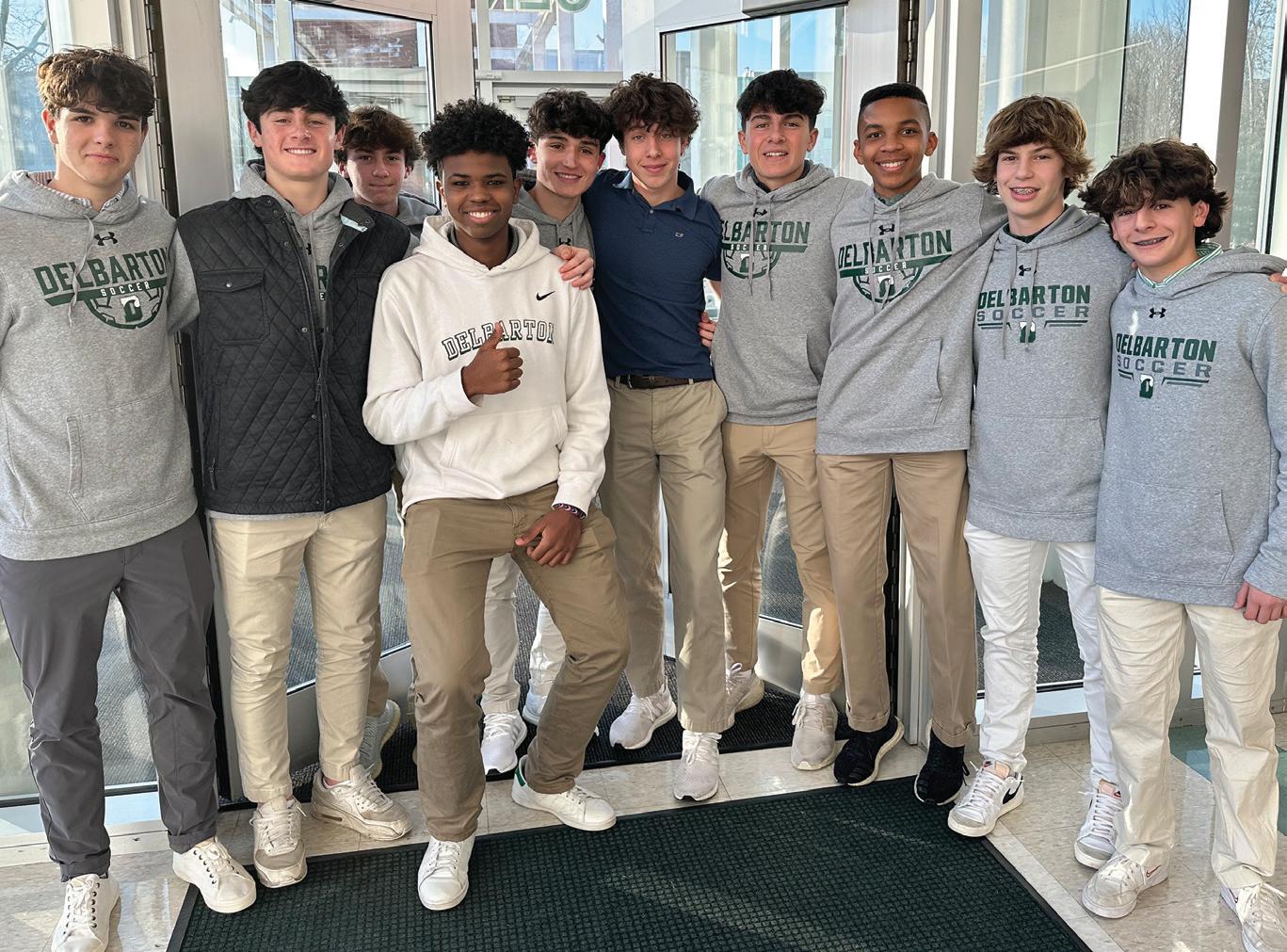
435 LYDECKER ST., ENGLEWOOD • 201-568-5566 • ELISABETHMORROW.ORG
The Elisabeth Morrow School provides exemplary academics and character development in a diverse and inclusive child-centered community, inspiring students to become curious scholars, ethical leaders and global citizens.

Educators personalize learning based on each child’s readiness, learning profile and interests to cultivate their unique spark and innate creativity.
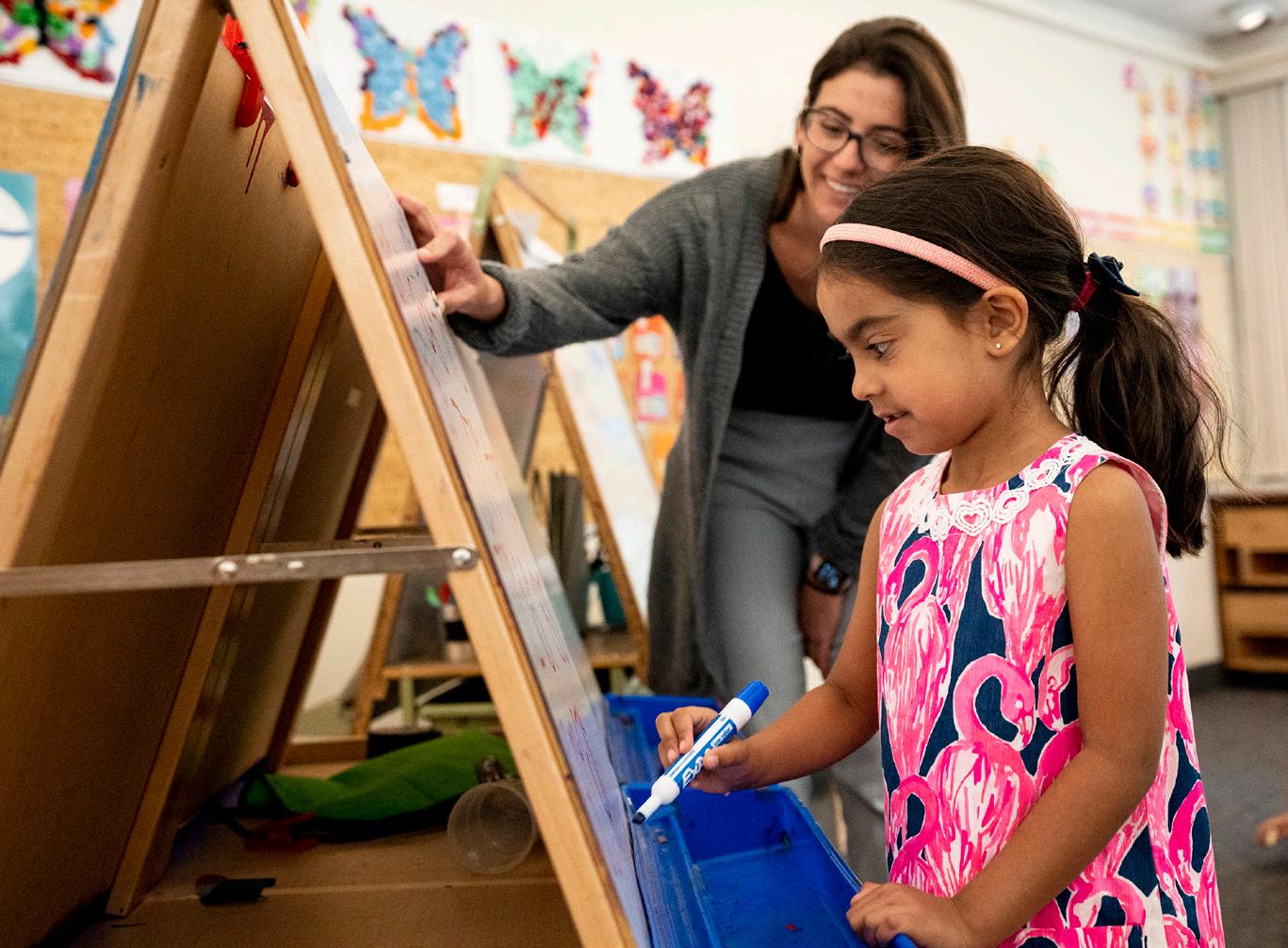
Elisabeth Morrow’s child-centered and innovative academic programs take place on a beautiful 14-acre campus with immersive learning spaces, including state-of-the-art technology labs, maker spaces, science labs and libraries, nature trails, a brook and pond, outdoor classroom patios, educational gardens, playgrounds, gymnasiums and an athletic field.
“We guide our students through an engaging project-based, inquiry-driven and age-appropriate curriculum that offers children the opportunity to take on real-world challenges and grow as learners and leaders,” says Head of School Marek Beck, Ph.D. “Through initiatives in STEAM, humanities, socialemotional learning and music studies, we channel their curiosity and support them to surpass what they thought possible.”
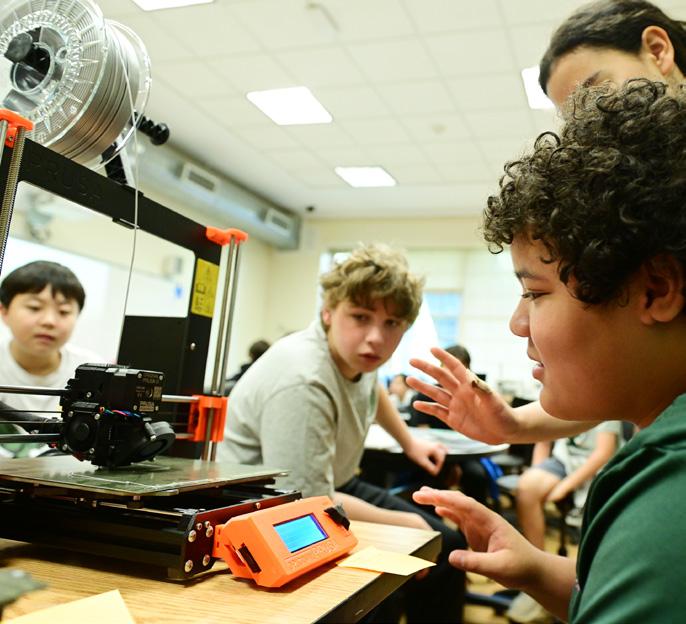
This will be the school’s second academic year as a globally-recognized Apple Distinguished School. This honor not only exemplifies the school’s strength of innovation in teaching and learning but also provides access to a powerful network through which students and faculty partner with the most innovative schools around the world. It is worth noting that EMS remains the only independent school in New Jersey to hold this honor.
Perhaps most importantly, the school is known for its warm, nurturing and highly diverse community. “Without this, we wouldn’t have the proper foundation for the transformative education our students receive,” Beck says. He noted that the school’s diverse and international population allows it to authentically adopt a global perspective, with students and families enjoying
opportunities to share their culture and celebrations and to learn about those of others.
“Our parents count on us to reinforce the values they teach their children at home and trust us to help their children develop holistically—socially, emotionally and cognitively,” he says. “And our students graduate prepared to lead the way with empathy and innovative thinking in a rapidly-changing world.”
52 GREAT HILLS RD., SHORT HILLS • 973-379-3442 • FARBROOK.ORG
Established in 1948, Far Brook School is known for its progressive educational approach, integration of the arts, commitment to social justice and child-centered, supportive environment for students from preschool (age 3) through eighth grade.

Far Brook believes in equity and justice, and is committed to maintaining a diverse school community that’s reflective of the world around us. The community is small, the curriculum is arts-infused and the tradition of experiential, theme-based learning has produced an impressive track record of high achievement by its graduates. Nature is woven into daily life, as students explore the verdant 9.5-acre campus, engaging in the wetlands habitat and outdoor classrooms.
“Our priority is to provide a supportive and inspiring environment to enrich each student’s childhood as they learn to question and contribute to the wider community,” says Head of School Amy Ziebarth.
Outstanding, highly credentialed teachers value each child’s curiosity and inspire wonder and academic discussion. Far Brook’s small size encourages connections between faculty and children; students become comfortable seeking out teachers, sharing constructive dialogue and participating in a truly unique learning experience.
Far Brook’s model strives to provide an education that extends beyond the classroom and engages children with the community. An emphasis on leadership, reflection and respect for others is fundamental to the development of confidence and character as students prepare to contribute to the world beyond their time at Far Brook. Students move
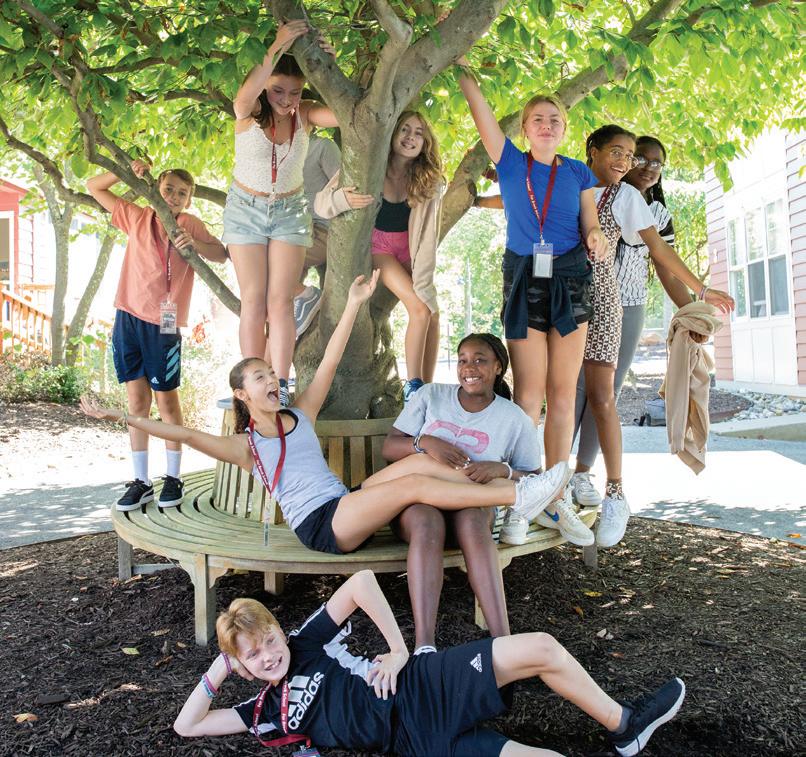
on to top-ranked independent schools, boarding schools and local public high schools and, later, to renowned colleges and universities.
All students participate in world language, drama, music, choir, visual arts, athletics, dance and woodshop. This full participation allows students to collaborate, discover new strengths and learn to support
one another. Discussions, teamwork and cross-grade partnerships create a respectful atmosphere of listening and caring for others. Older students gain perspective through immersive travel experiences.
“We have a great responsibility to our students as they prepare to make a difference in the world and engage as caring, global citizens,” Ziebarth says.
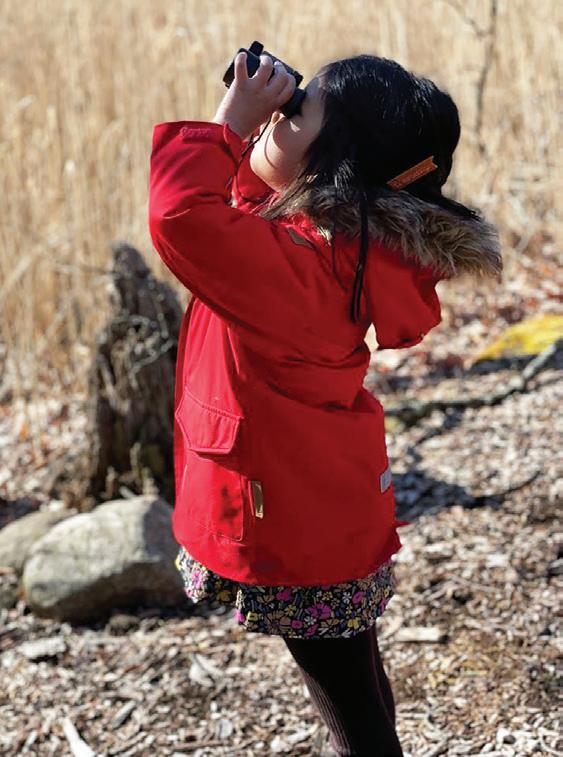
697 RTE. 202, FAR HILLS • 908-766-0622 • FHCDS.ORG
Through academic excellence and character development, Far Hills Country Day School provides each child the foundation for success in the modern world. The school celebrates the whole child and focuses on both academic as well as character development in a tight-knit community that forges strong partnerships with families.
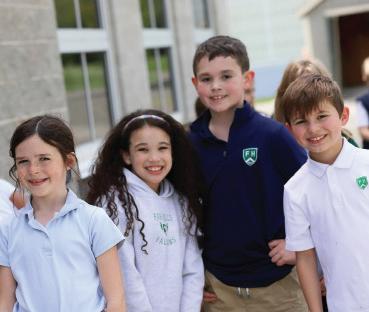
“Far Hills Country Day School champions both academic excellence and emotional intelligence, challenging students to think independently and achieve confidently,” says Head of School Georgia S. Zaiser, mom to two alumni sons and former teacher of grades four through eight, division manager and assistant head of school.
The school’s shared growth mindset contributes to its experiential, studentcentered approach to learning, its welcoming community of families and its focus on developing individual strengths. Teachers implement research-based strategies like mind-brain education while embracing emerging technology, embodying character-building skills and participating in professional development opportunities.
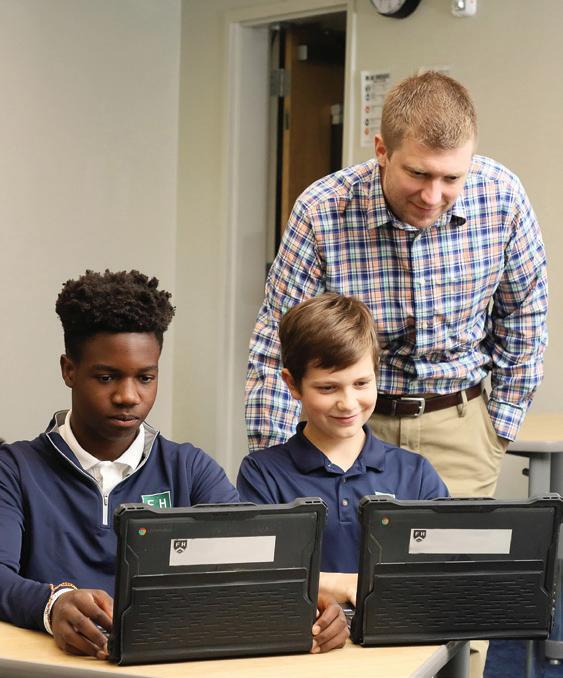
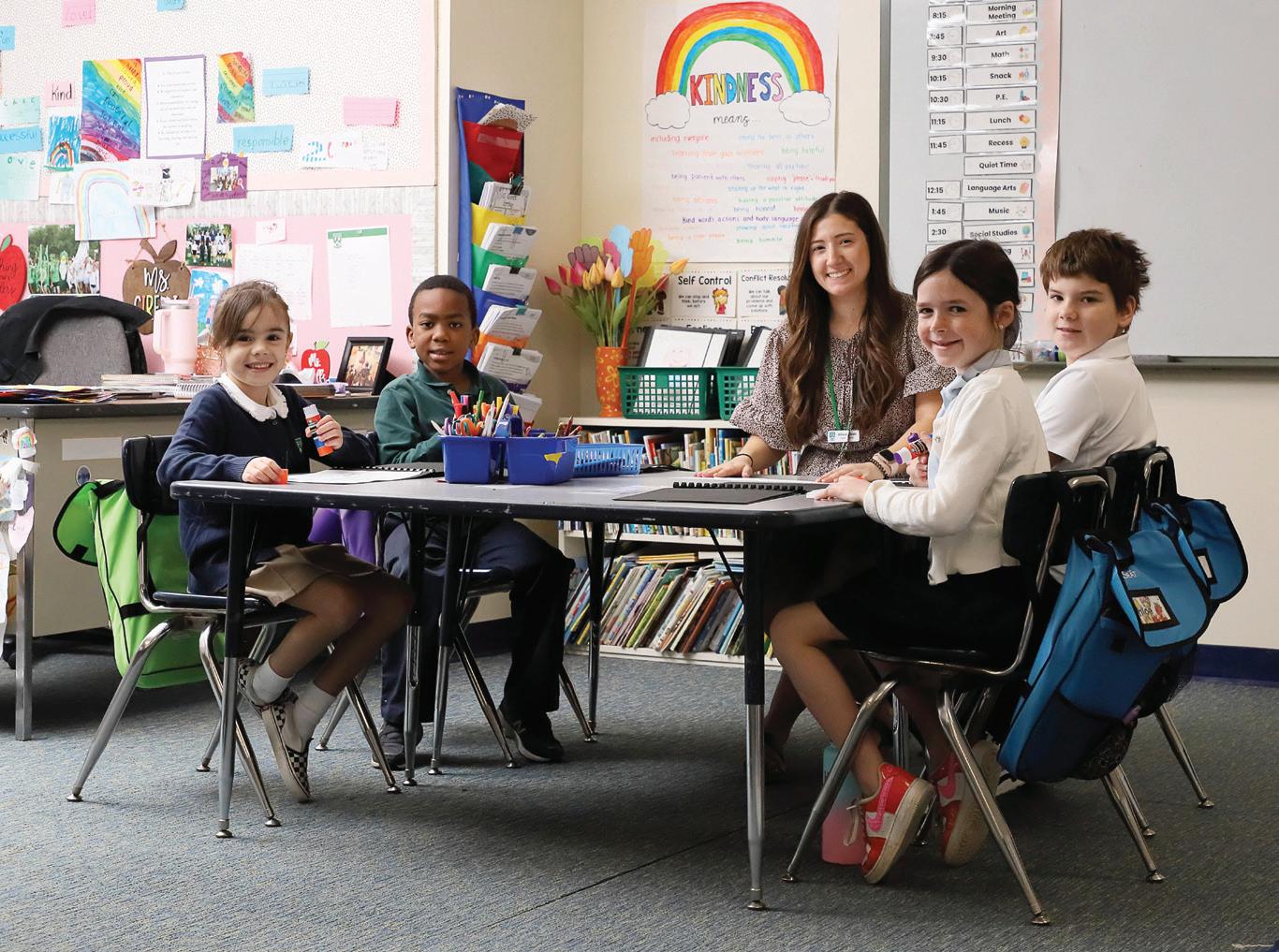
Students are known and loved by their teachers, who believe that there are many different paths to success, as is evident in the school’s motto In Virtute MultiAscensus. (There are many degrees of excellence). Teachers are invested in their students, meeting them where they are to develop their unique strengths and challenge them in their areas of growth.
Far Hills boasts an expansive 54-acre campus with a high ropes course, pond and mountain bike trail. The school
offers athletics, music and performing arts programs and ample opportunities to hone public speaking skills—by the time students graduate they will have had more than 80 opportunities to share their knowledge in a public forum. Recognized as an essential life skill, public speaking starts in preschool at Far Hills.
“As a result, students find power in
their voices and hone their ability to express themselves,” she says. “From preschool through eighth grade, students are given the freedom to explore topics of interest, themselves and the world. Through self-directed learning, emergent curriculum and adventure experiences, their curiosity is nourished and their passions are uncovered.”
80 TOWN SQUARE PL., JERSEY CITY • 201-234-4781 • FRANKLINJC.ORG
When Franklin School opened in 2022, students answered the question, “Are you ready for something extraordinary?” with a resounding “yes”— and quickly embraced everything that entailed. Franklin delivered on that promise and has already made an indelible impression on students, parents, and fellow educators.
“We created a school like no other in the community, but accessible to so many,” says Head of School William Campbell. “With so much to offer students, ranging from a robust, cutting-edge curriculum and Academic Care program not found elsewhere, to our student incubator and state-of-the-art Fab Lab and athletic facilities, their journey will be filled with opportunities to pursue their passions and go wherever their curiosity leads them. In just one year, we have seen how students eagerly dove in, have grown academically and personally, shown an insatiable quest for knowledge, and surpassed expectations.”
Franklin is dedicated to preparing students to tackle any challenge the future holds—and to succeed in an increasingly complex, ever-changing world. The school’s curriculum with enhanced rigor includes pastoral and academic care programs that provide students with mentoring, social and emotional support, and sustained academic skill development regardless of where they are along their education continuum.
In addition to a challenging core curriculum and AP courses, students can take micro-courses and electives designed to cultivate real-world skills essential for graduates to succeed in the most dynamic, competitive employment arenas.

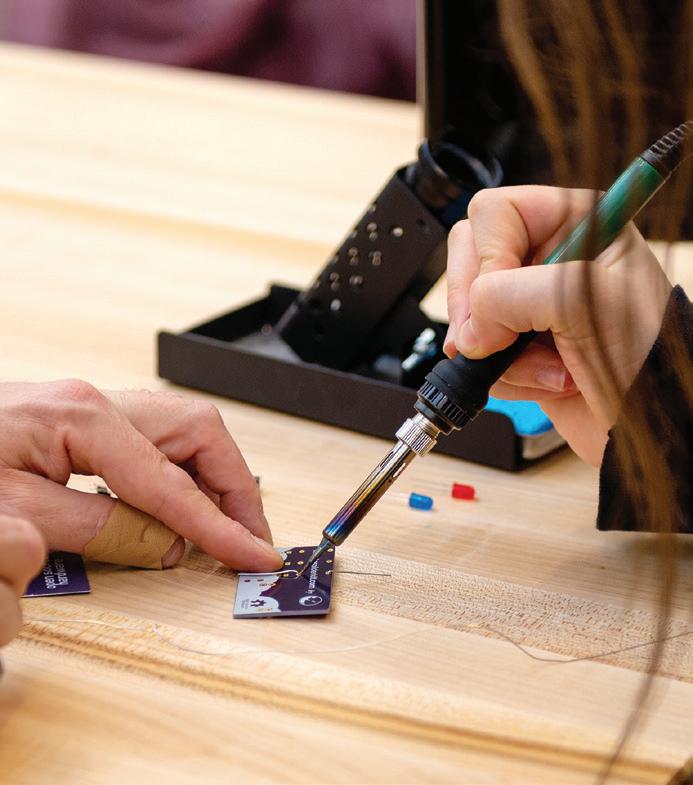
In the Fab Lab, students apply their
project-based learning, gain skills, and create. It’s also home to an incubator, where they develop the resilience of entrepreneurs and the mindset of innovators, as they shape their own businesses and nonprofits, empowering them to have agency over their future.
No matter the setting, Franklin’s commitment to transdisciplinary learning enables students to make connections to solve real-world problems. “Franklin’s teaching and learning practices are
reflective of excellence in education … and Franklin invokes the feeling that the school is committed to practices that will grow the ‘change makers’ of tomorrow,” says Mariesa Grado, Associate Vice President, Middle States Association Commissions on Elementary and Secondary Schools. When they graduate, students will not only have a top-notch education, they’ll also have the attitude and competencies to tackle whatever challenges arise—and thrive.

Gill St. Bernard’s (GSB) provides a balanced approach to prepare preschool through grade 12 students academically, socially and ethically for college and a meaningful life. Along with a rigorous academic program, the school provides countless opportunities for students to identify and pursue their passions.
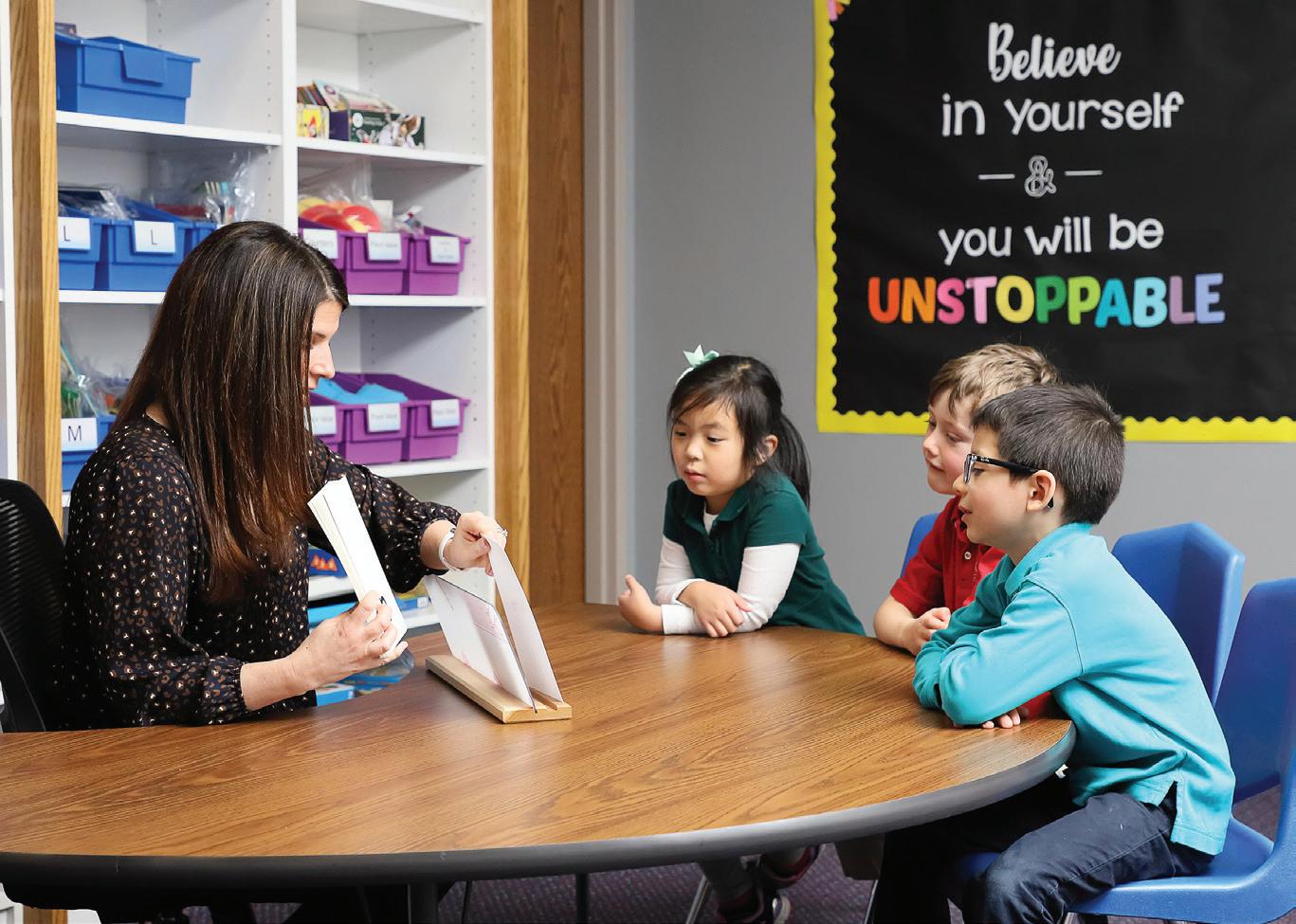
“Gill students experience a comprehensive academic program that combines challenging, thoughtful classes with inspiring arts courses, top-tier athletic programs and unique experiential learning opportunities,” says Head of School Sid Rowell. “This purposeful balance gives students the ability to not only pursue their personal passions, but to build confidence in other areas for a well-rounded education.”

The school is committed to the concept of learning outside the traditional classroom setting with several projectbased programs that strengthen students’ skill sets while broadening their worldview. These include the Lower School’s Biome Project, Middle School’s environmental STREAMS program and Upper School’s signature Spring Unit Program, a two-week immersive study experience that involves local, national and international travel.
GSB’s 208-acre campus features two trout streams, a performing arts and community center and an on-campus working and teaching farm where teachers partner with farm staff to create lessons in biology, animal science and the arts and humanities. Athletic programs are also an important part of the educational experience, and the campus offers stateof-the-art facilities for 40 teams across 15 sports, many of which have garnered both
state and national recognition.
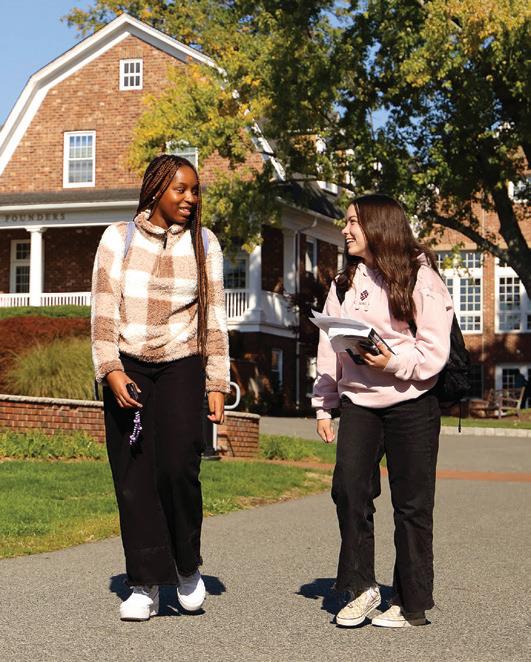
For many families, GSB is the right fit because of the school’s emphasis on community. Whether it’s athletics, performing arts or giving back to their communities, students at GSB are encouraged to step outside of their comfort zones and explore passions both
in and out of the classroom.
“Our teachers expect a lot from their students in the classroom but at the same time get to know them on a personal level,” says Associate Director of Admission and Financial Assistance Ann Marie Blackman. “It’s not uncommon to see the faculty at performing arts or athletic events because they’ve developed a relationship with their students and want to support them.”
Jump Immersion School ensures children are linguistically, academically and culturally prepared to succeed in a global environment. While immersion in a target language is at its core, the school remains focused on holistic academic outcomes.

Jump Immersion School is known for its strong academics, cultural appreciation and diversity and the strength of its team. Along with languages like Spanish or Mandarin, students learn English, math, music, public speaking, art and more.
“The cognitive benefits of language learning extend beyond vocabulary or conversation,” says Owner Jackie Sanin. “Science shows this type of learning can improve a student’s ability to switch tasks, concentrate and problem solve as well as improve performance on standardized tests.”
An 11-month program running from September through July, the school’s July Innovation Month features special programming focused on STEAM, music, animals and other creative ways to explore the world. There are also teacher appreciation days, family events and parent information nights. Parents especially appreciate Jump’s before-care options and after-school offerings, including an afterschool enrichment karate program.
Economic diversity is also a high priority at Jump, and administrators have worked hard to keep the school affordable for all families. “We believe that education is the one equalizer in life and we welcome and embrace all families,” she says. “For example, we have families who don’t speak any of the target language at home
and others where students are able to speak in Spanish or Mandarin to a grandparent for the first time.”
With centers in Edison, Summit and Scotch Plains, as well as a new location in East Hanover that opened last fall, Jump has made building a strong team a top priority. All teachers are native speakers of either Spanish or Mandarin and can also communicate in English. Jump currently offers Pre-K 2.5 through
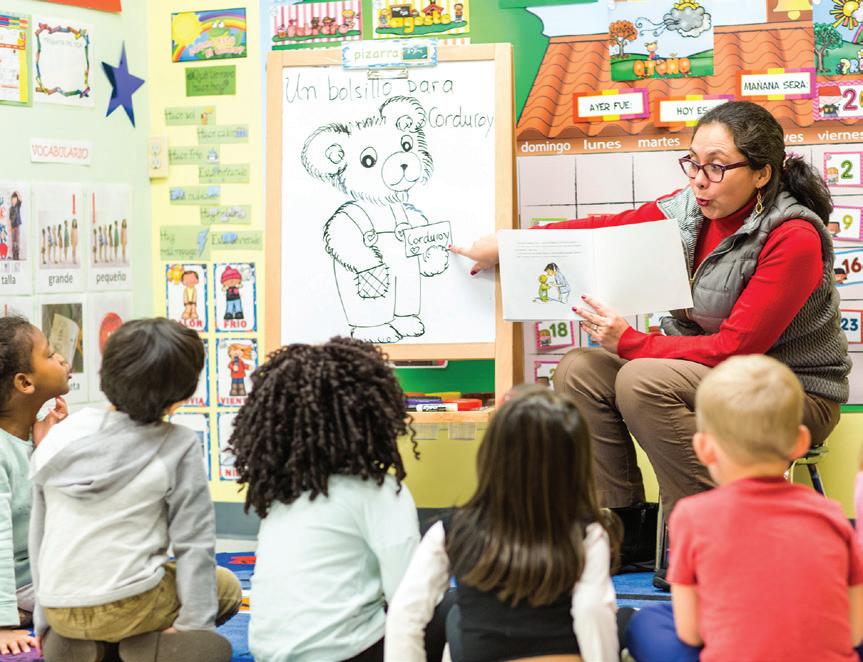
fifth grade with the addition of its East Hanover location. New for the 20232024 school year, Jump will provide transportation from its Summit location to East Hanover for extra convenience.
“Our families recognize the cognitive benefits of learning Spanish or Mandarin and see it positively impacting other areas, from math to problem solving and, yes, even reading and speaking English,” Sanin says.
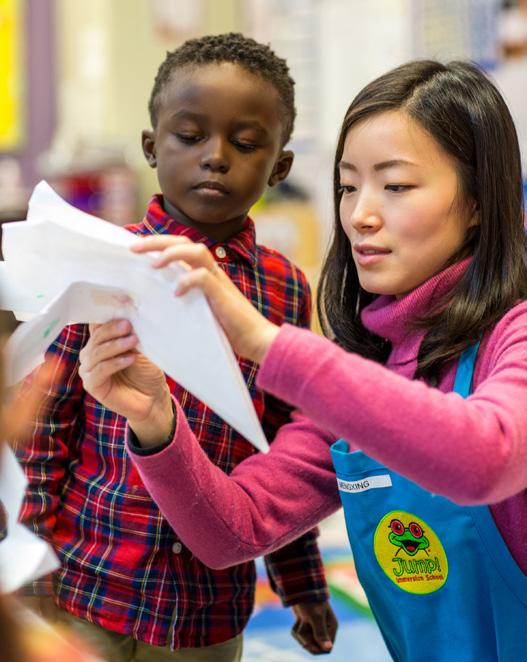
Lacordaire Academy’s three-acre campus blends a wholesome, smallschool education with an academic rigor that prepares graduates to enter the world. The college preparatory school provides a coed education from pre-K through eighth grade, and an all-women’s Upper School.
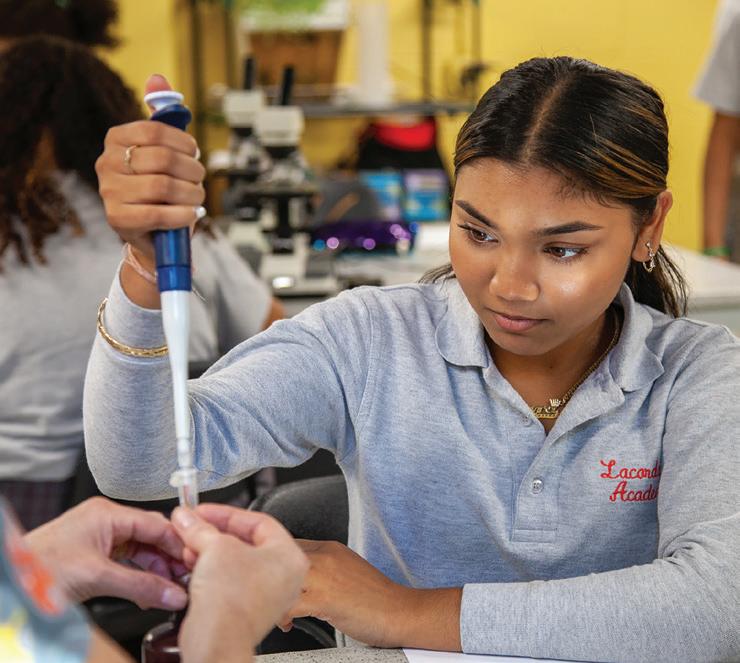
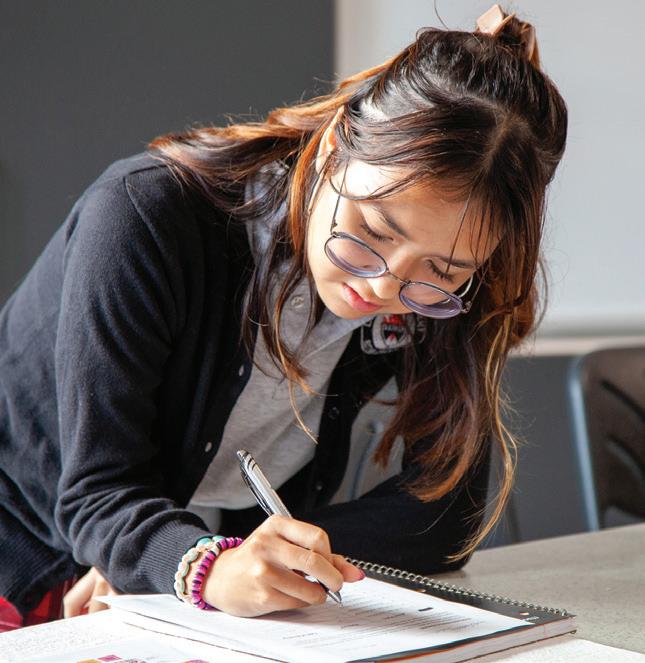
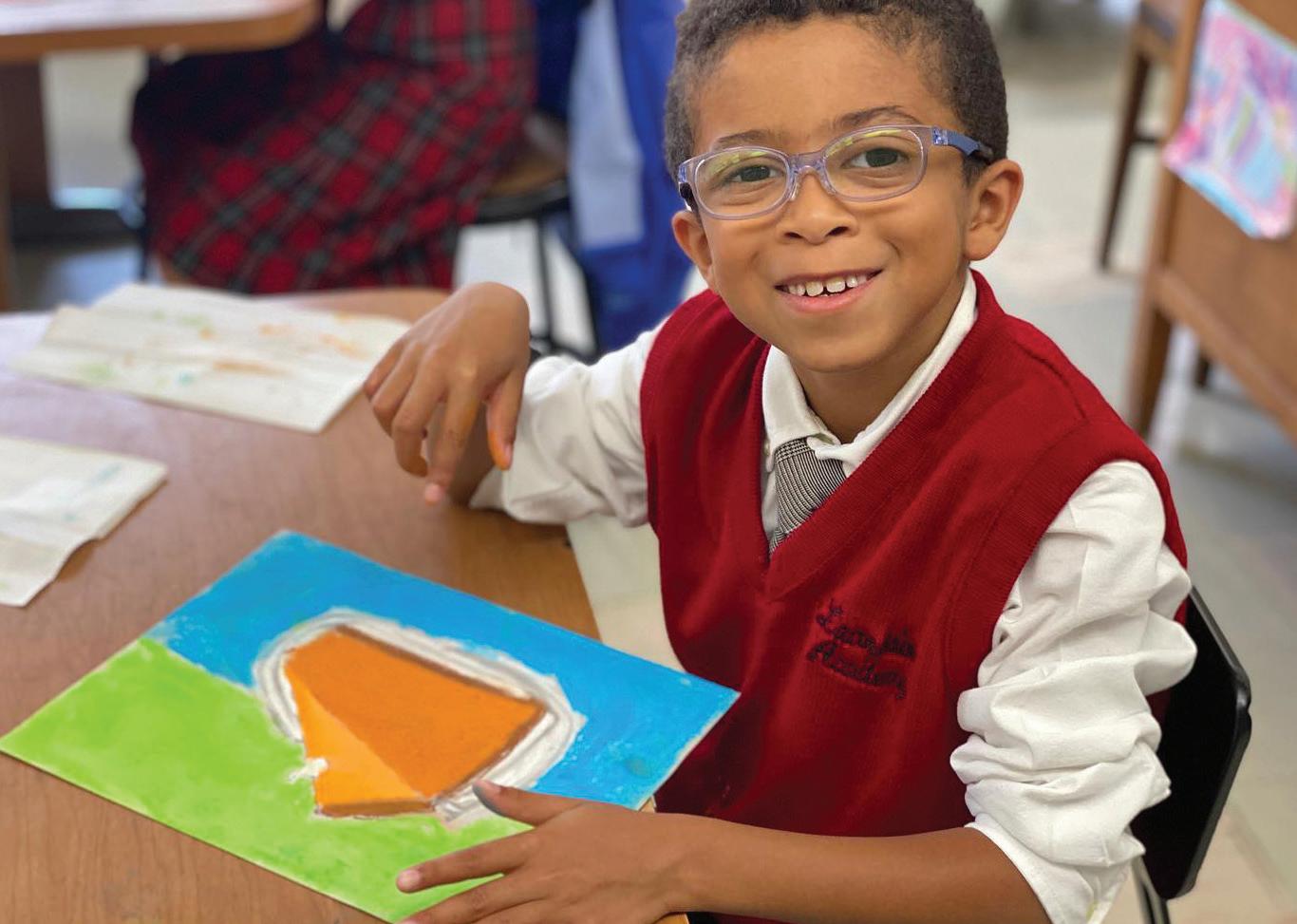
“Lacordaire is an age-appropriate, joyful bubble where parents know their children are safe and loved,” says Director of Admissions Saydi Callahan Keefe. “But we also want our graduates to be ready for the outside world with critical thinking skills, organization, knowledge and creative problem solving.”
Lacordaire was founded in 1920 by the Sisters of St. Dominic of Caldwell, as a French-English school for girls. It has evolved into Lower, Middle and Upper Schools led by a veteran leadership team that works together to uphold Dominican values.
Lacordaire is currently experiencing its highest enrollment ever, and this year resumed a robust schedule of events, celebrations and galas, both local and international trips as well as many opportunities for parent and community involvement. The school continues to have highly competitive high school and college placement rates. “We are thrilled to have a completely open and active school and lots of celebrations and programming for our students and their families to enjoy,” she says.
Lacordaire students are involved in activities such as a forensics and debate team, Mathematics Honor Society and vibrant performing and visual arts programs, along with an array of other clubs, organizations and sports teams. Three brand new, state-of-the-art science
labs opened last fall.
Lacordaire also boasts a rigorous public speaking program, which is fitting as the school’s name pays tribute to Pere Henri Lacordaire, a 19th-century Dominican priest famous for his gift of public speaking.
Lacordaire’s commitment to service is evident through an array of
charitable activities, from students volunteering at soup kitchens to singing Christmas carols at local senior centers.
“We cultivate the Dominican values of community service and loving your neighbor and that shows in the interactions amongst our faculty as well as children in all three divisions—the older students see themselves as big brothers and sisters to the younger kids and they want to set a good example,” Keefe says.
800 NORTH RD., HOPEWELL • 609-566-6000
LAURELSCHOOLPRINCETON.ORG / 609-584-1800
The Laurel Education Group, which includes Newgrange School and Laurel School of Princeton, recognizes brilliance by empowering students who learn differently. The schools’ evidencebased approach helps students discover their unique educational and social/ emotional path by acknowledging their strengths, talents and brilliance.
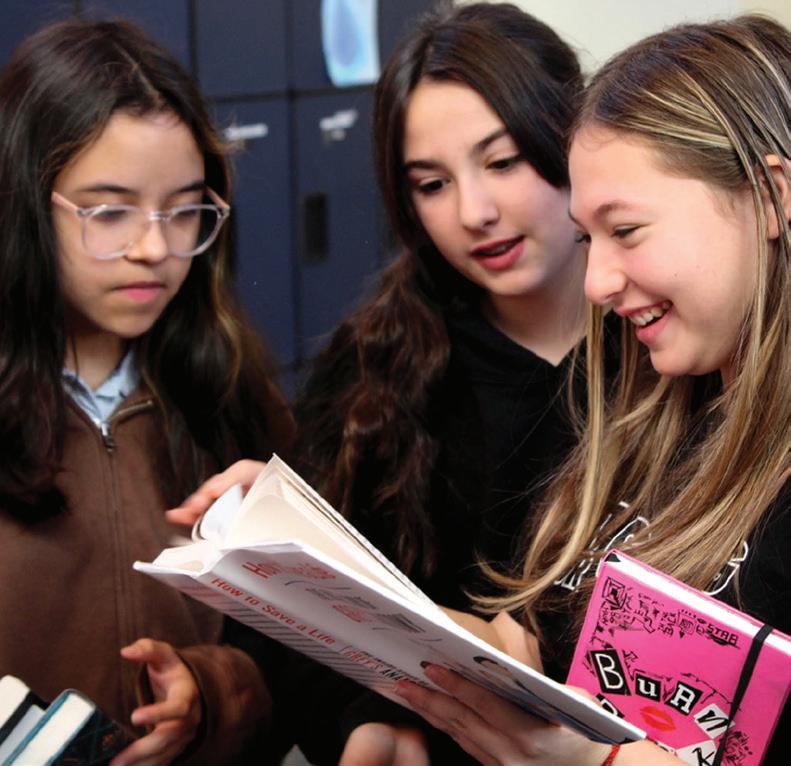
Instruction in both schools is delivered with a multisensory and inquiry-based approach by expert teachers who have years of experience teaching children with learning differences and are certified to instruct using Orton Gillingham and Wilson Language programs.
Founded in 2012, the Laurel School of Princeton is a coeducational independent day school serving students in grades 1-8 with language-based learning differences such as dyslexia, dyscalculia, ADHD and executive function deficits.
The Laurel School fosters the exploration of students’ gifts and talents both in and out of the classroom and integrates opportunities for them to shine, such as through visual and performing arts or engineering challenges and creative expression in the school’s Innovation Lab.
“We’re the only school in the state to offer the NoticeAbility program, a tailored enrichment curriculum that helps students with dyslexia recognize, appreciate and capitalize on their strengths,” says Director of Admissions Amy Deutsch. “By providing experiences that validate their individuality, students build confidence and self-esteem.”
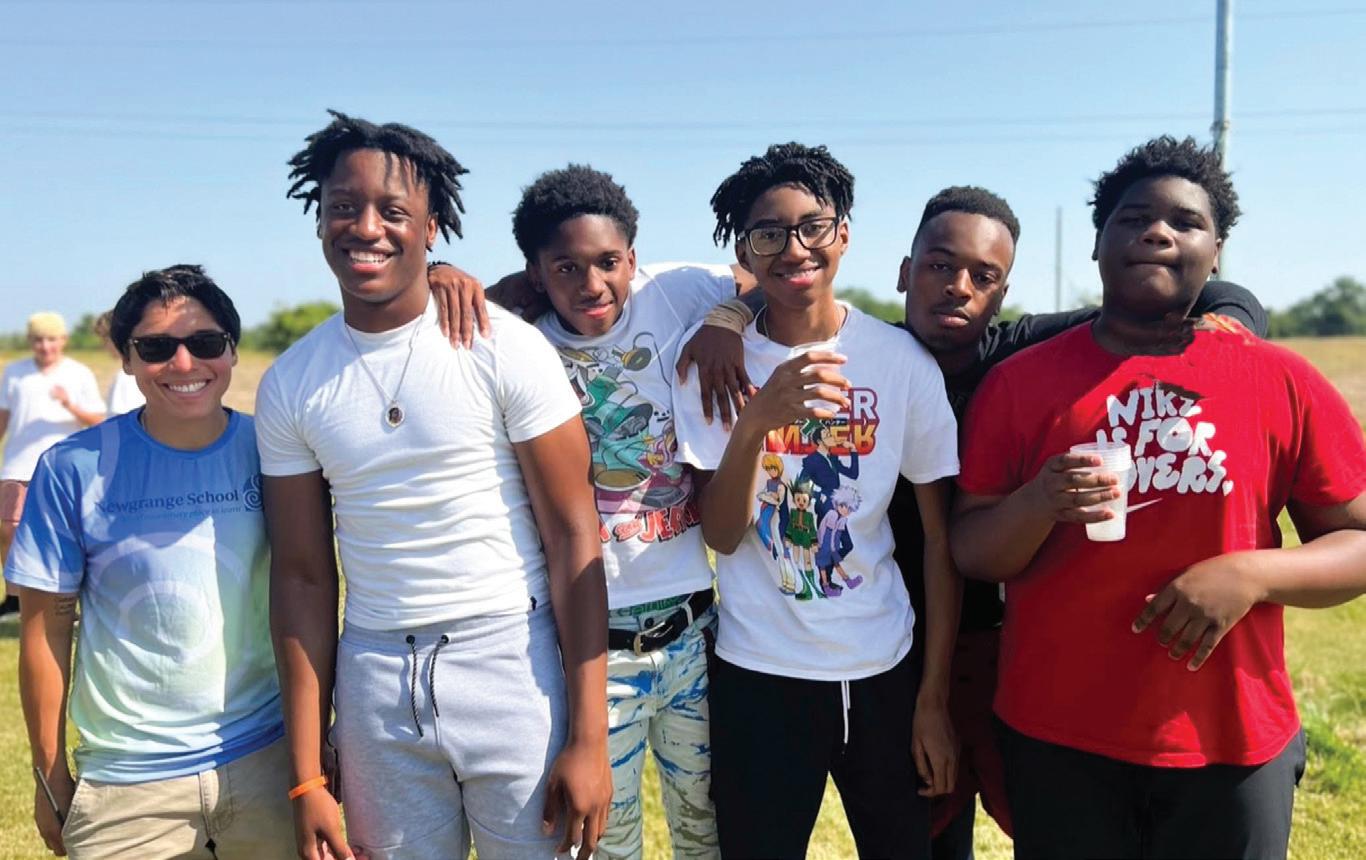
LEARN
The Newgrange School is a learning
environment dedicated to improving educational outcomes for students with ASD and learning disabilities.
Twice-Exceptional (2E) learners build character and community in a multisensory environment that’s academically rigorous and develops the whole child. The school offers a Transition Intensive Program (TIP) for 16-21-year-old students to further their vocational and life skills, social
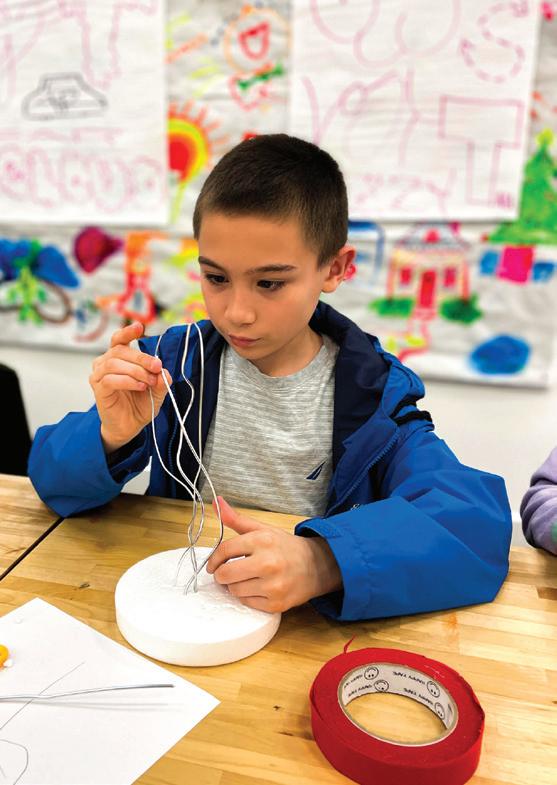
interactions and community-based experiences.
“Kids often come to us with their confidence broken by their school districts and they feel as though they can’t learn. But their spark quickly returns as they discover that they can grow and thrive here,” Deutsch says. “We regularly receive feedback from parents that their child feels as though they’ve finally found a place where they fit in.”
659 BELMONT AVE., NORTH HALEDON • 973-790-6200 • MARYHELP.ORG
At Mary Help of Christians (MHC) Academy, prayer and education go hand-inhand as students realize their potential and watch their passions come alive in a community committed to faith, Salesian tradition and excellence.
Founded in 1942, the school continues to be taught in the tradition of the Salesian Sisters of St. John Bosco. During their time at MHC Academy, students become catalysts for positive change inspired by their belief in God and the Salesian spirituality with a commitment to service.
MHC Academy is an accredited, collegepreparatory high school sitting on over 16 acres in North Haledon. It’s not uncommon to find students reading outdoors beneath trees on the sprawling campus, or working collaboratively in the library on their iPads as they prepare for the rigors of college life upon graduation. Recent additions to the academy include a state-of-the-art STEM lab and a new Athletic Center with cardio and strength-building equipment - not to mention a beautiful new chapel.
“The MHC graduate is a confident, innovative thinker and lifelong learner who feels the responsibility to contribute to society,” says Dean of Student Affairs Elizabeth Manzella. “Our graduates have developed a strong character in faith and are ready to go out into the world and promote what is morally just and right.”
MHC Academy is more than just academics—it’s also athletics and nearly 50 extra-curricular activities. Parents appreciate the all-girl, culturally-rich and diverse environment where students are focused on discovering their God-given gifts and
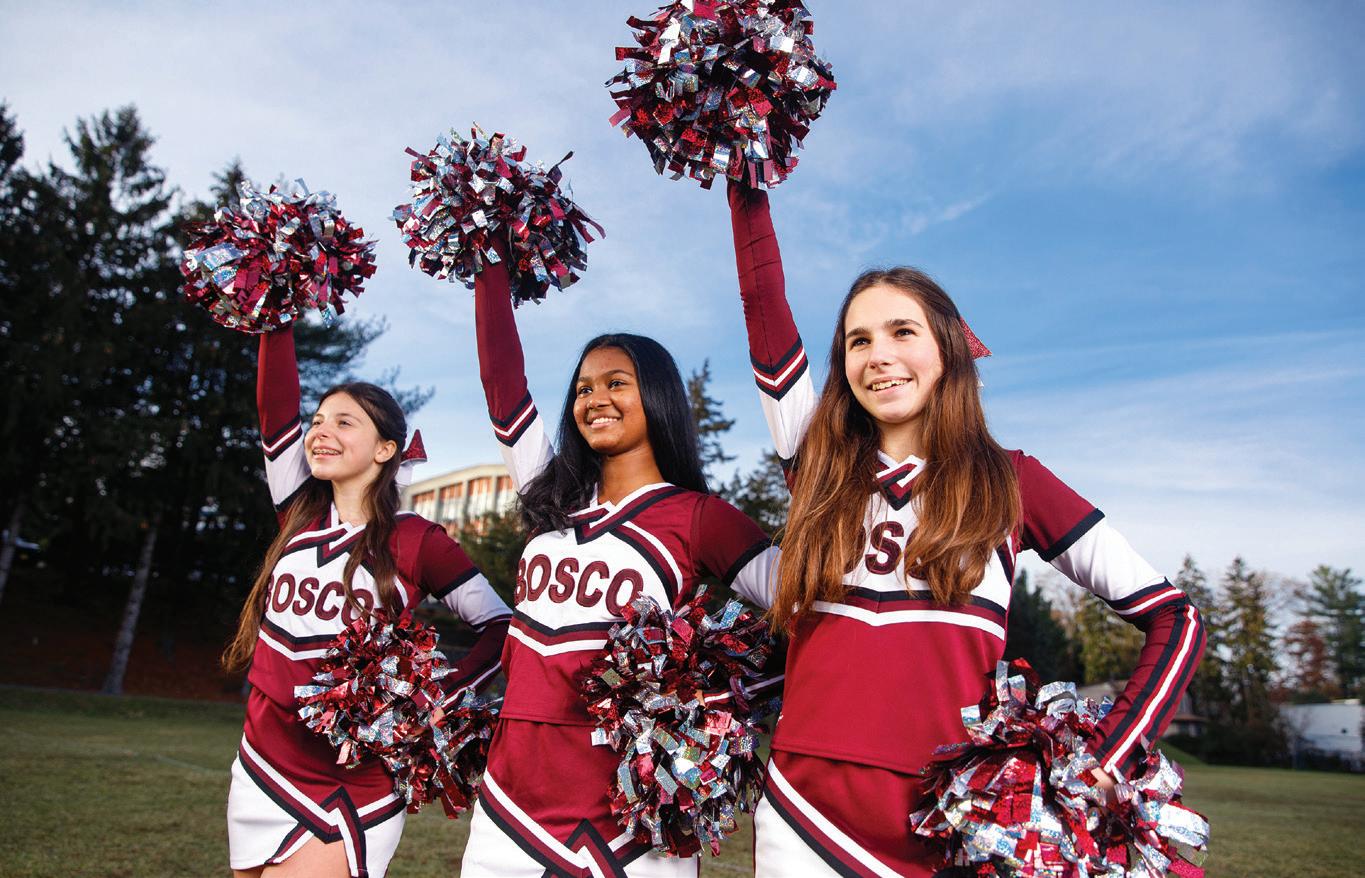

where the faculty and staff are focused on helping each student find their career and calling. The student-teacher ratio is 8:1 and 80 percent of teachers hold advanced degrees in their subject areas. The school has a robust Advanced Placement program and dual enrollment agreements with Fairleigh Dickinson and Seton Hall University, so students can earn college credit without ever
leaving campus—in fact, one student was able to skip her entire freshman year because she took so many dual enrollment courses.
“Our faith-filled education teaches girls the responsibility to be good citizens, and we create an environment of support and sisterhood that sees each student get accepted into their college of choice each year,” Manzella says.
65 CHESTNUT ST., MONTCLAIR • 973-783-4955
MONTCLAIRCOOP.ORG
Celebrating its 60th anniversary this year, the Montclair Cooperative School continues to be a leader in progressive education. The Co-op is led by student interest, expertly guided by teachers and actively supported by parents. All three groups work together toward maximizing the personal growth and excellence of each student—and the school as a whole.
From preschool (which begins at age four) through eighth grade, small class sizes deepen the connection between the students and their teachers, allowing students ownership of their work and instilling a lifelong love of learning.

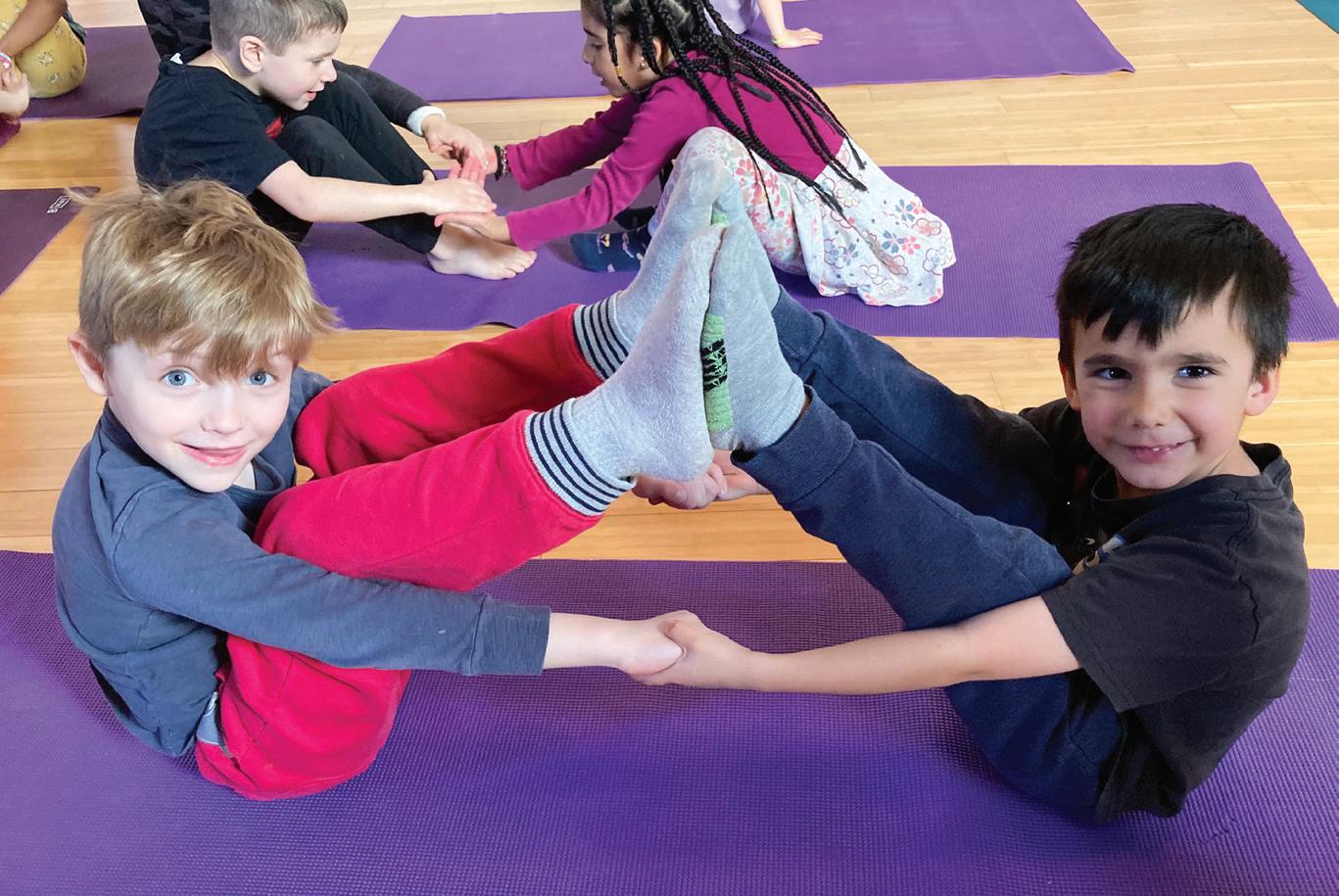
Montclair Cooperative School’s mission is to create a nurturing and diverse environment where children grow and flourish intellectually, emotionally and socially. Using progressive models for learning, emphasis is always placed on children’s work and the way they think about the world.
“The development of social-emotional skills is an integral part of the Co-op, so we focus on helping children learn how to negotiate, reach consensus, resolve conflicts and advocate for themselves and others,” says Director of Enrollment Management Emily Kohan.
Co-op teachers create a deep and personal connection with each and every student. They examine every child’s thinking individually and in small groups, and plan a curriculum that will challenge them in academics, the arts and social skills.

“Keeping children engaged in their own learning encourages them to be creative with their education—no matter the format,” Kohan says.
At the heart of Montclair Cooperative School’s success is community. The school believes parents are partners in their children’s education, and they are invited to participate in many aspects of Co-op life. Parents support the school by assisting in their child’s classroom, lending their time and talent through a family job, fundraising or serving on a committee.
“Alumni and alumni families remain connected to the Co-op and are inspired to give back to the community in which they thrived,” Kohan says. “Our school respects and nurtures its community, and in return the community nurtures the school. Together, we hold true to the belief that a child who is socially and emotionally in a positive, balanced environment has a strong foundation for continued study, growth and academic success.”
Montclair Kimberley Academy’s (MKA) challenging, engaging and innovative academic program provides students with a vibrant and transformative education. The faculty’s deep and genuine understanding of students as individuals and learners fosters their ethical development, intellectual growth and personal success.
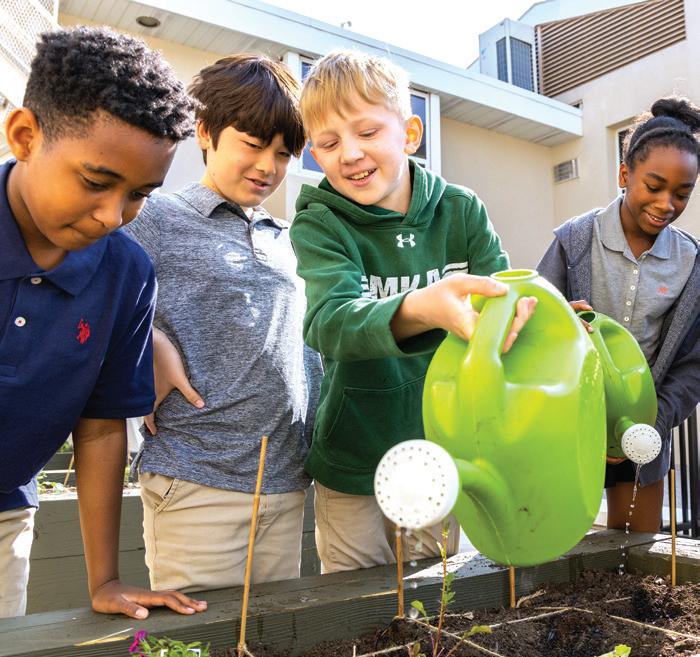
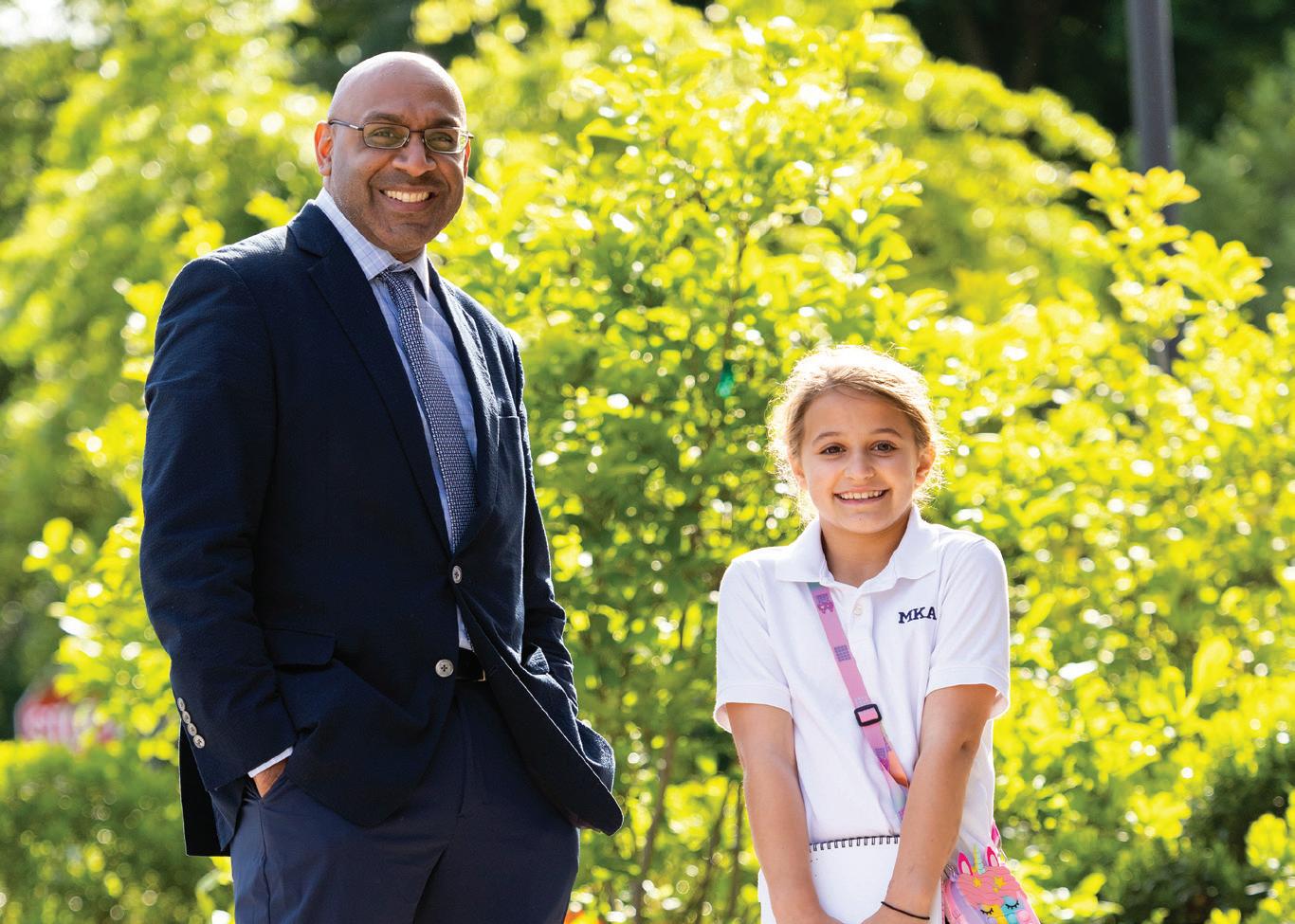
This fall, the school will welcome a record-breaking number of students. MKA families appreciate the school’s friendly and inclusive community and strong commitment to diversity, the quality and reputation of an MKA education and supportive faculty and staff who serve as role models for students.
As stated in the school’s mission, MKA’s diverse, collaborative and inclusive community inspires students to lead lives of noble character, purpose and distinction.
The school offers 24 interscholastic sports and 64 teams each year for student athletes in grades 6-12, in addition to a thriving fine and performing arts program and 20 different affinity groups and clubs for students, parents/guardians and alumni to explore their identities and shared experiences. “These groups offer the opportunity to connect, build community and construct positive relationships,” says Head of School Nigel D. Furlonge.
MKA teachers emphasize both individual and collaborative processes in the journey of each student, while the school’s active and engaged alumni community embodies the school’s core tenets of knowledge, vision and integrity.
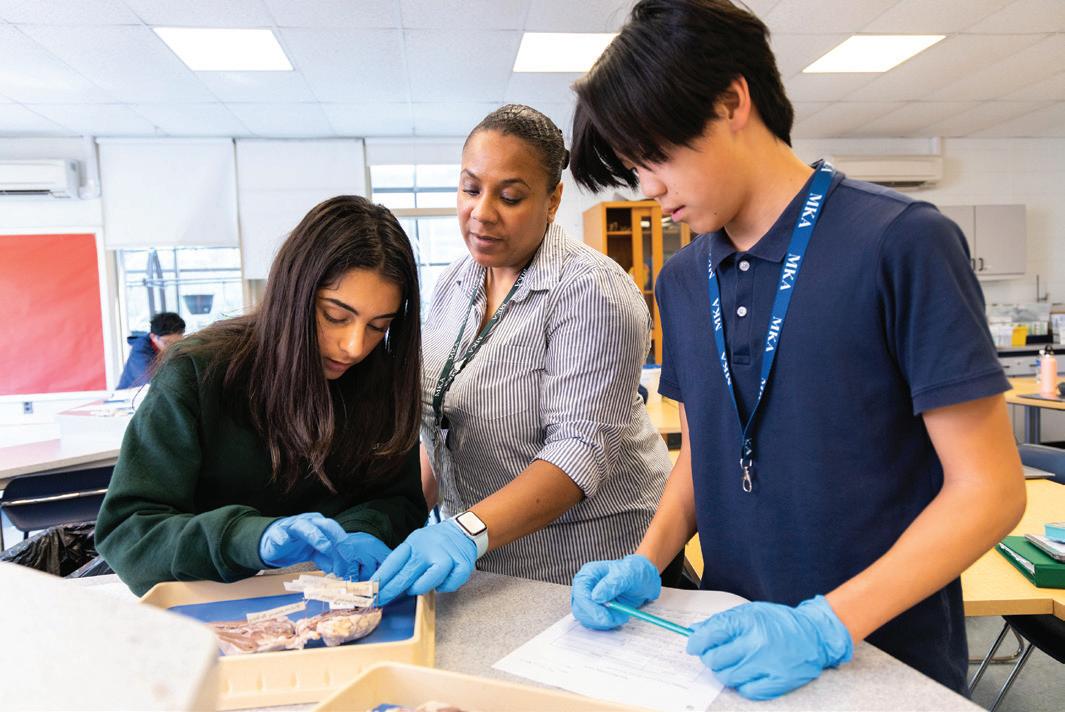
In partnership with the community
engagement coordinator on each campus, the Parents’ Association of MKA (PAMKA) helps run communitywide engagement drives to support local nonprofits such as Toni’s Kitchen and The Human Needs Food Pantry. Throughout the school year, students also have the opportunity to support their local communities through activities such as performing at homes for senior citizens, creating welcome bags for newly
adopted pets at the local shelter and planning the annual Fleming 5K.
“An integral part of an MKA education at every level, ethical leadership is rooted in the belief that all students transform through education and experience,” says Furlonge. “It centers around helping our students to develop the moral and intellectual habits of good character in order to serve as leaders who make positive change in their communities.”
1128 GREAT RD., PRINCETON • 609-921-6499 • PRINCETONACADEMY.ORG
Aprivate school for boys, Princeton Academy of the Sacred Heart (PASH) celebrates students in mind, body and spirit as they grow into young men of character who will be leaders of a just society. The school encourages students to have active and creative minds, a sense of understanding and compassion for others and the courage to act on their beliefs.
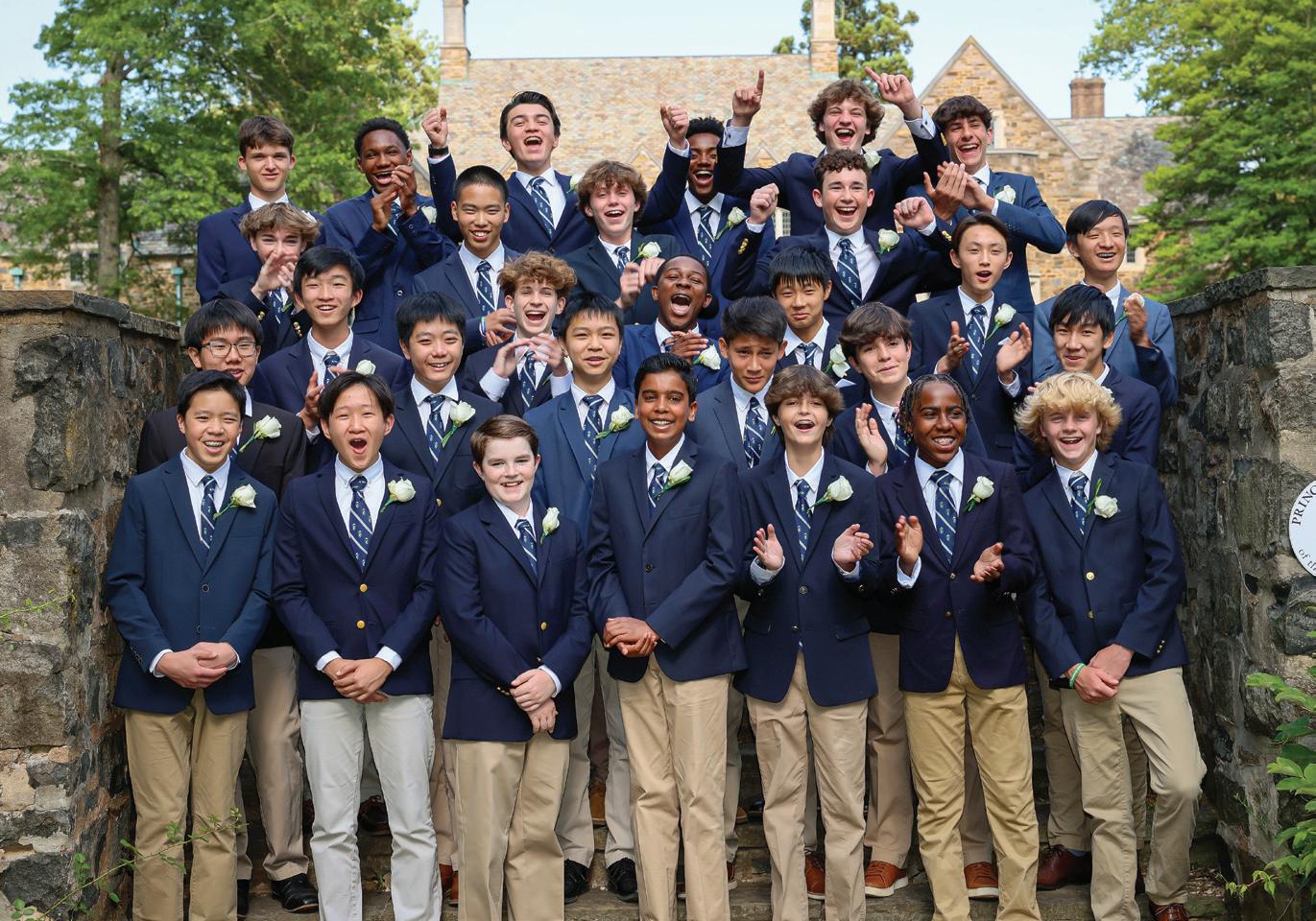
“We prioritize the social and emotional well-being of our students,” says Head of School Rik Dugan. “We create a space where young men can be their best selves and seek to honor the potential in every boy.”
PASH was founded in 1998 with the vision of reinventing education for boys in kindergarten through eighth grade. Guided by the Sacred Heart Goals and Criteria and Princeton Academy’s Learning Principles for Boys, the school is dedicated to helping each boy become an enlightened man who is socially aware and morally centered.

PASH believes boys learn best when they are the navigators of their own learning. For example, the middle school science program revolves around projectbased learning that places students’ interests and passions at the center of indepth exploration—a recent Fire Tower Design Challenge inspired students to learn about the role fire towers played for the U.S. Forest Service in surveilling the landscape for fires.
Students were tasked with creating their own version of fire towers out of twine and organic, natural materials. “It’s one example of learning coming to life in a way that’s relevant and engaging for our young men,” says Jacob Land, MS science educator and PASH alumnus.

The school’s athletic program prioritizes character development, sportsmanship and healthy competition, while a vibrant arts program encourages every student to engage in the visual, vocal and performing arts. The nationally recognized speech and debate program empowers students to develop their voices.
“Young men become their best selves through robust academics as well as an array of co-curricular opportunities— students explore new passions while diving deeper into the ones they’re already invested in,” Dugan says. “We take great pride in seeing, hearing and knowing each boy individually and meeting him where he is on his journey as a person and as a learner. We use a phrase here, ‘He Can Be,’ because we believe he can be anything.”
235 HOPE RD., TINTON FALLS • 732-542-4777
RANNEYSCHOOL.ORG

Ranney School, an age 3 through grade 12 college preparatory school in Tinton Falls, believes in the power of experiential learning to ignite curiosity and foster a deeper understanding of concepts.
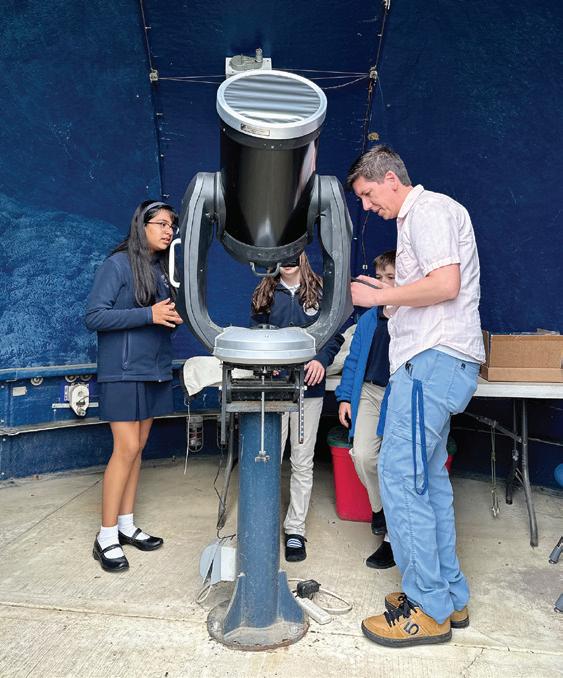

Ranney’s commitment to STEAM and hands-on learning is evident in all three academic divisions—from early childhood’s exploration of scientific concepts in the school’s community garden and fourth grade mini-societies that teach economics and entrepreneurship, to evening lessons in the campus observatory and international travel and other unique experiences as part of the Upper School’s two-week long Maymester.
Ranney School is also home to state-of-the-art spaces including a new ColLABoratory, an exciting space for Lower Schoolers to engage in interdisciplinary project-based learning. Future plans include two additional state-of-the-art labs to provide expanded experiential learning opportunities for courses and electives.
The campus will also see an expansion to the astronomy program, a greenhouse and a new Lower School library and learning commons that will include a podcast studio.
This fall, Ranney is launching a new finance lab that will have 12 Bloomberg terminals—the same technology used by banks and corporations worldwide. To leverage this new technology, Ranney is offering a new course titled Finance: Markets, Investments, and Financial Management.
As part of the course, students will be able to earn a Bloomberg Market
Concepts (BMC) certification and engage in work understanding financial statement analysis and financial markets.
“Students will have hands-on opportunities to learn about various elements of finance, and we’ll also tap into our network of alumni and parents who are experts in the industry to come in and speak to students throughout the year,” says Head of School Dr. John
Griffith. The finance program will become the school’s third certificate program, joining Ranney’s STEAM and global citizenship certifications.
“We’re especially proud of how our curriculum integrates hands-on experiences to provide a well-rounded and meaningful educational journey for students in our Lower, Middle and Upper School divisions,” he says.
101 CORREGIDOR RD., TINTON FALLS • 732-291-1297 • TRINITYHALLNJ.ORG
An independent, all-girls school that educates and empowers young women in the Catholic tradition, Trinity Hall provides an innovative college preparatory program grounded in four core values: leadership, respect, perseverance and faith. The school prepares its students to achieve their full potential as they embrace their place in the world.
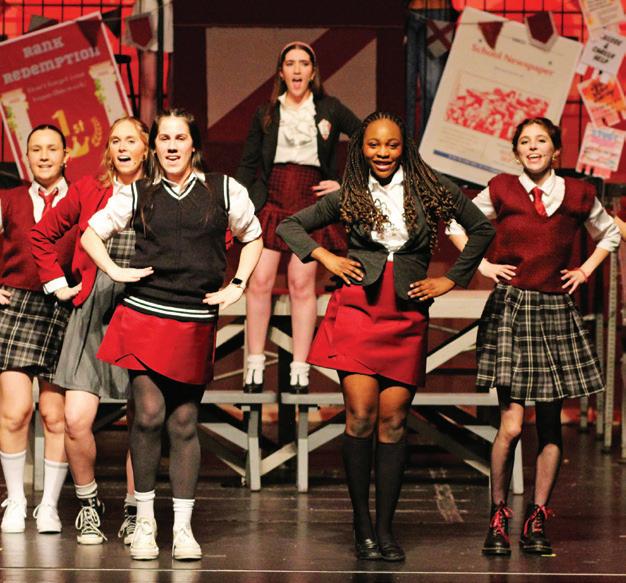

“Trinity Hall is a place designed specifically for girls and the way they learn best,” says Head of School Theresa Kiernan. “Our school is unique in that students are immersed in an environment of academic, athletic and artistic excellence while being supported in a nurturing, caring community that puts students at the center of everything we do. Girls can do anything when they know how much they matter.”
Independently governed and taught with an all-honors curriculum in the Catholic tradition, the school’s “Circle of Support” ensures students have the appropriate resources to help them reach their full potential while fostering a sense of community. A student advisory program, Big Sister/Little Sister program, health and wellness program and a daily student support period offer that support along with faculty, staff, coaches and counselors.
The school’s comprehensive college counseling program assists students in reaching their collegiate goals while award-winning arts and athletics programs allow young women the opportunity to learn, create and compete at the highest levels. Trinity Hall is home to more than 25 clubs and student
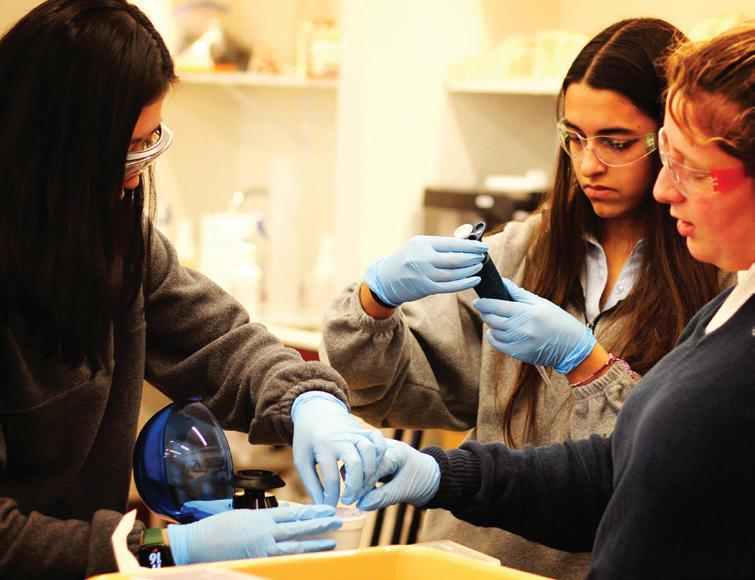
organizations and 16 sports teams.
“Our students are fully committed to their academic experience while understanding the importance of the greater school community,” Kiernan says. Trinity Hall’s annual Service Day is an opportunity for the entire school community to work with local organizations on service projects, exposing students to charitable groups they can connect with on a regular basis.
“With award-winning academics, arts and athletics, we provide an environment in which our students can stretch themselves, grow by taking risks and persevere in the face of failure,” Kiernan says. “Our girls are supported by a worldclass faculty that’s dedicated to providing a nurturing place that helps girls thrive. Our school community lives in faith and shows up for each other—not just on special occasions, but every day.”

1600 MARTINE AVE., SCOTCH PLAINS • 908-889-1600 • UNIONCATHOLIC.ORG
At Union Regional Catholic High School, students are prepared for the real world in a diverse co-educational environment that focuses on helping them become global citizens. Celebrating its 60th anniversary, the school strives to help students fulfill their college and career goals within a valuecentered environment that’s committed to the core values of respect, responsibility, honesty, community and compassion.
“Our greatest accomplishment is watching just how much our students transform throughout four years of high school, which is typically a tumultuous time in everyone’s lives,” says Director of Enrollment and Retention Jane Bowman. “Whether it’s taking honors courses or becoming as a first generation graduate, each student’s personal successes are celebrated here.”
Union Catholic provides students with a truly individualized educational experience, from choosing classes that match their personal strengths and weaknesses to 26 varsity sports and more than 50 clubs and activities. “The opportunities that students have here are truly limitless,” Bowman says. “Our families love the fact that students can create and customize everything they do.”
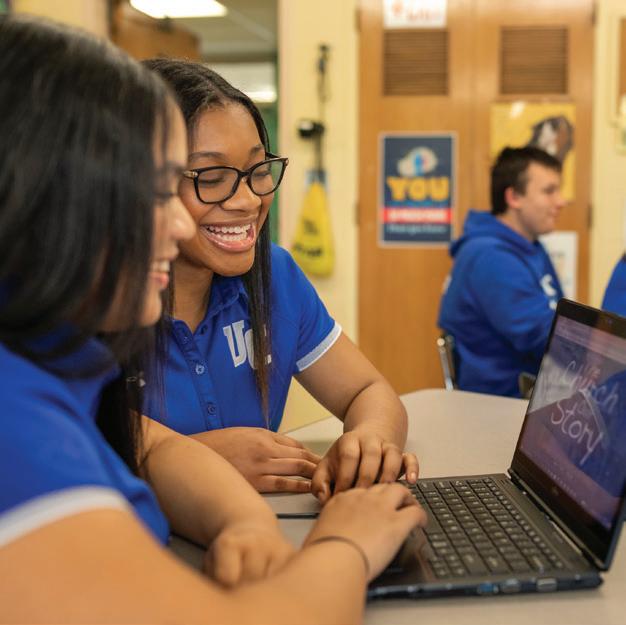
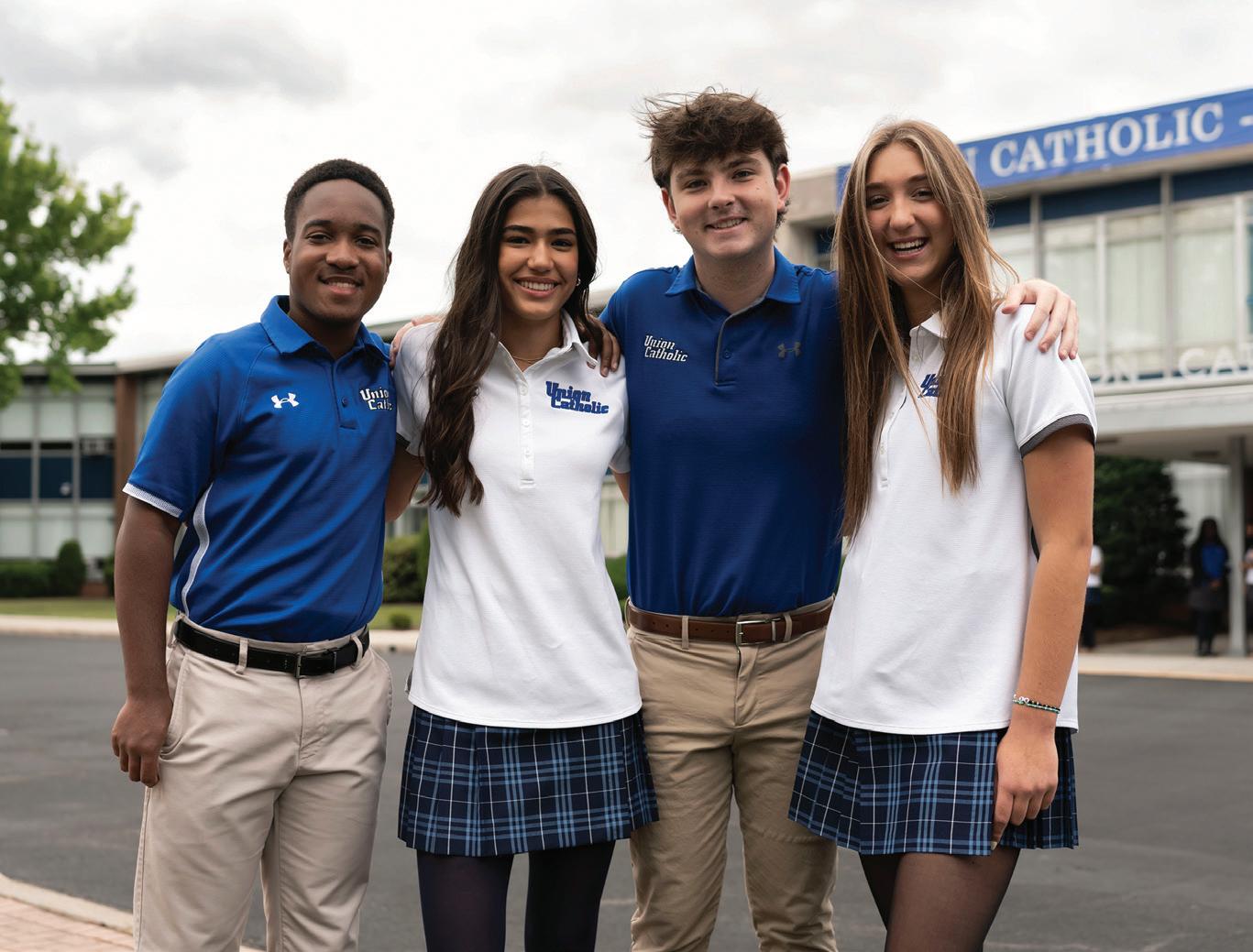
New this year, the school is taking that customization one step further by implementing a Universal Design for Learning (UDL) approach to instruction. “It might mean that not every student is sitting down to take a test, but instead demonstrating their grasp of the material via a group project instead,” she explains. “It’s just another way to expand the customized education that we value so much—and we know our students value it, too.”
Union Catholic families also value the community feel of the school, where many alumni return to work and faculty and staff make the effort to connect with each and every student on a personal level. The school is also dedicated to giving back to the community; students regularly participate in charity drives and
other initiatives that further the school’s commitment to social justice.
“Everyone is welcome here, and we’re proud to be a place where students come to grow as individuals and really find themselves,” Bowman says. “The best feedback we get is about our supportive community and opportunities for students to develop their individuality and discover their unique interests.”
Ability School is a private, independent school that treats children as unique individuals. With small classes and a proficiency-based curriculum, students work on individual programs tailored to their abilities and interests. “All students work at their own pace, so if they’re strong in a particular area they will move on to new challenges, whereas if they need a little more help mastering something they will get the support they need,” says Headmistress Joan Marrazzo.
Founded in the late 1970s, Ability School is now in its 36th year in Englewood, where it offers families an alternative to traditional teaching for children in pre-K through eighth grade. Many Ability School students begin reading at age four thanks to its robust reading, vocabulary and comprehension curriculum. The curriculum grows with students throughout the program in all subjects, and focuses on both competency and study
Apple Montessori is expanding to 18 locations this year, opening two new locations in East Windsor and Hillsborough. The school offers programs for children 6 weeks to 12 years, with programs varying by location.
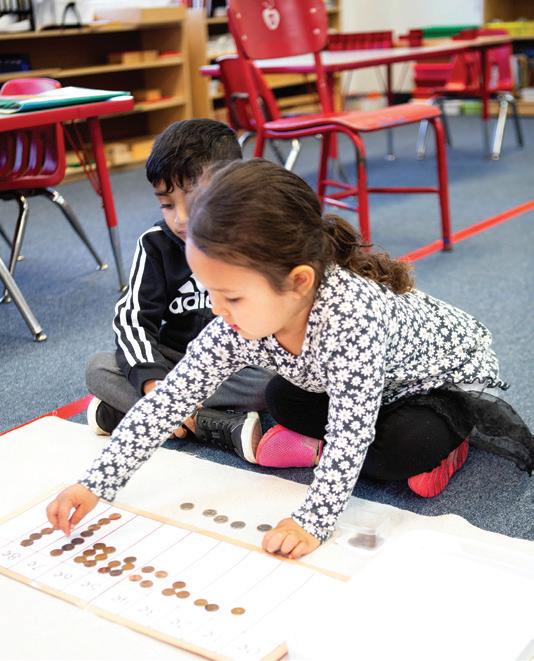


“Academics are very important to us and we want each child to become independent and confident in their abilities,” says Regional Director Kellie Capatasto. “We also strive to help children be kind, respectful and curious, with lots of opportunities to explore.”
The Apple Montessori approach allows children to move and grow at their own pace. Teachers guide children as they learn from classmates and exciting new materials within calm and inviting indoor classrooms as well as beautiful outdoor classrooms (at many locations) that encourage exploration and discovery.
“Every child is different, so within a typical program some of the children can get lost while some get bored being
skills.
“Our goal is for students to master their material—not memorize it—so that they can articulate what they’ve learned and apply that understanding to real-life situations,” Marrazzo says. “Our approach creates self-determined and independent students with a love of learning.”
The school continues its efforts to give back to the community, from organizing
food drives to hosting park cleanups. Ability School also partners with local non-profit organizations to help benefit community members in need.
“We have a strong sense of community here, and that extends beyond the walls of our school,” Marrazzo says. “But the relationship forged between the parent, student and school is of the utmost importance to us.”
taught the same lesson as everyone else. Our program is special because we have opportunities to constantly challenge and pique any child’s interest through selfdiscovery, from science, geography and math to yoga, art and cooking,” she says.
The program also incorporates computers and coding, STEAM, critical thinking and public speaking skills, and
Apple Montessori has become known for its exceptionally strong reading program.
“We’re proud to develop respectful, kind children who are happy to be here but more than ready for the next step when they leave us,” Capatasto says. “Our teachers inspire kids in a safe, loving and caring way that enables them to reach their fullest potential and feel successful.”

2177
Big Blue Marble Academy’s (BBMA) mission is to nurture little minds and grow big hearts. The school is a home away from home with a robust preschool curriculum to ensure children are developmentally, socially and emotionally prepared for kindergarten and beyond while also providing a foundation for global awareness and service learning.
“The most frequent compliment we receive from families is that they feel at home here,” says Center Director Mariyah DortchRobinson. “Parents know their children are safe and cared for and appreciate that our staff and teachers know everybody by name.”
Students enjoy state-of-the-art facilities, such as an indoor gym and can participate in activities from gymnastics and soccer to music and cooking. The school also offers before- and after-care for school-age students as well as summer camp.

BBMA is known for its global curriculum to enhance children’s perspective and understanding of the world outside
their community. The Edison location offers a language immersion program in Mandarin, French and Spanish.
Another hallmark of the BBMA curriculum is community service performed through service learning projects. Heart Projects teach children the importance of giving back and helping others through hands-on activities such as lemonade stands to benefit childhood
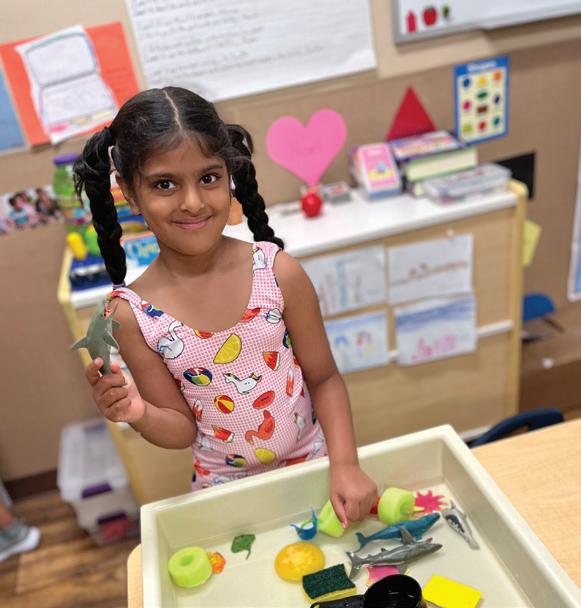
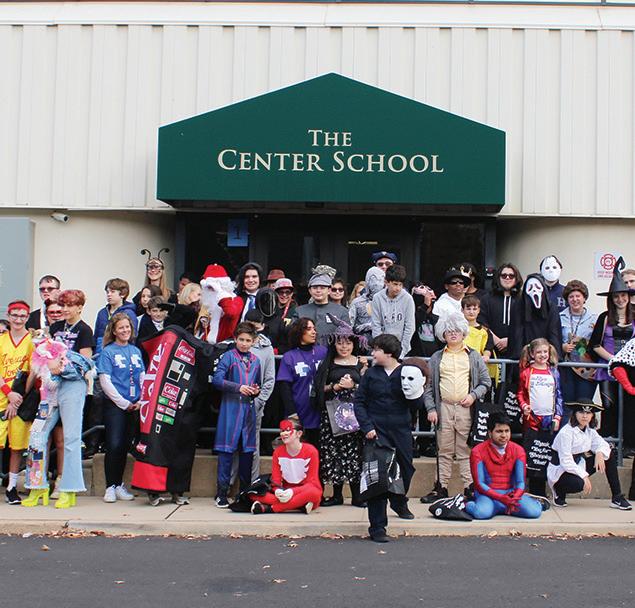
For more than 50 years, The Center School has served students with learning disabilities; most of the school’s 100 students in grades 3-12 are on the autism spectrum, and there’s also a transition program for high school graduates up to age 21 who may not be ready to pursue college, a vocational school or enter the workforce.
“Many parents don’t realize schools like ours exist—they have a child with a learning disability who is taking advantage of interventions or special education programs at their district school, but still may not have the support their child needs to thrive,” says Executive Director Dr. Ronald Rinaldi. “We’ve continued to implement additional services for these students, particularly as remote learning gave many parents a window into their child’s education and motivated them to advocate for what their student needs to be successful.”
Along with a robust academic
curriculum that mirrors that of mainstream schools, students have access to electives like music, woodshop and physical education, as well as afterschool clubs and athletic teams like soccer and basketball. The school continues to grow and has returned to its pre-pandemic lineup of trips, parent events, concerts, plays and more, and also offers an e-sports gaming program for students to compete
cancer research through Alex’s Lemonade Stand Foundation or holiday-timed projects during the BBMA Season of Giving.
“It’s our way of helping students develop empathy, community service and good citizenship,” Dortch-Robinson says. “Raising money for cancer research or giving to less fortunate families during the holidays makes a really big impact on them.”
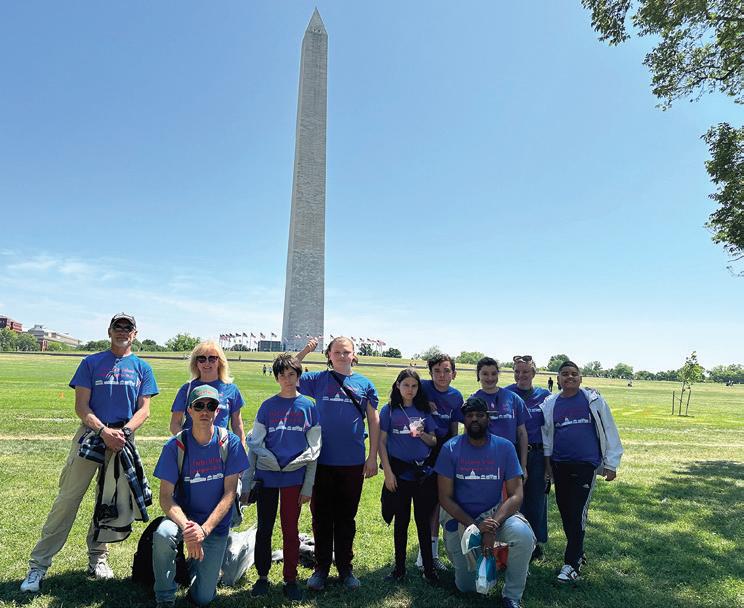
against kids at other schools.
“Our goal is to help students work through their challenges and prepare them to go back to their original school district,” Rinaldi says. “From physical and occupational therapy to counseling and behaviorists to reading specialists and speech/language therapists, we have everything that a special needs student requires to be successful.”
Since its founding in 1967, The Deron School has provided a warm, supportive structured learning environment that empowers students with special needs to reach their highest level of independence and achievement. Today there are some 100 students in Union (ages 3-14) and 120 in Montclair (ages 14-21) who are taking advantage of all that The Deron School has to offer.
At Deron, teachers, paraprofessionals, behaviorists and speech, occupational and physical therapists collaborate to provide a comprehensive school experience for students with a range of special needs. The school provides a nurturing environment, family culture and personalized curriculum to help students with disabilities including Autism, Down syndrome, cognitive impairment and brain injuries reach their greatest potential.
“We nurture and take care of our students because we want them to be the best they can be despite their disability. I believe that’s just
what educators do,” says Director Lori Alter, whose in-laws founded the school. Educators at Deron prepare students with disabilities to lead successful, productive lives and become contributing members of their community, all while children are discovering their talents, cultivating strengths and conquering challenges and—most importantly— fulfilling their dreams.
The Union location is home to a STEAM
Lab for science, technology, engineering, the arts and math, while Montclair has Tiger Tech Inc., providing transition skills for employment. Both facilities offer courses like software, coding and digital citizenship.
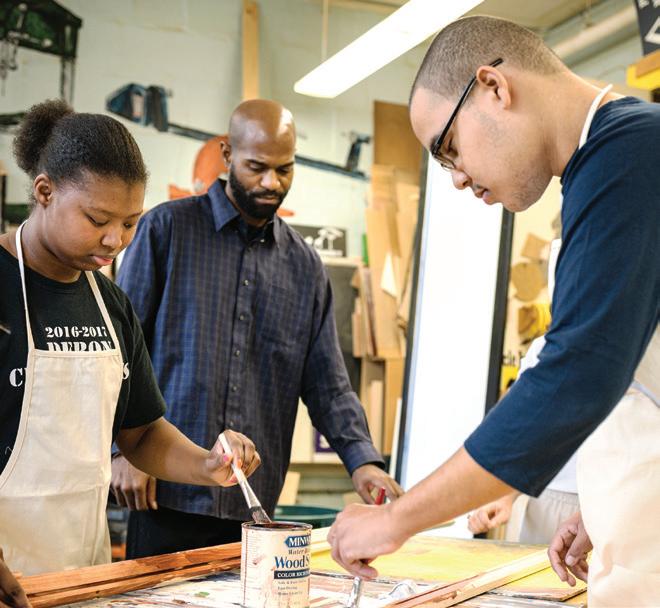
“I know the name of every child in the building,” Alter says. “Because we are family-run, we insist on that familiarity with all of our students and families.”
The French American School of Princeton (FASP) is an independent coeducational day school offering a bilingual education in French and English to students in preschool through grade 8. Located in Princeton, FASP is a supportive and nurturing school in which to learn, grow and succeed.

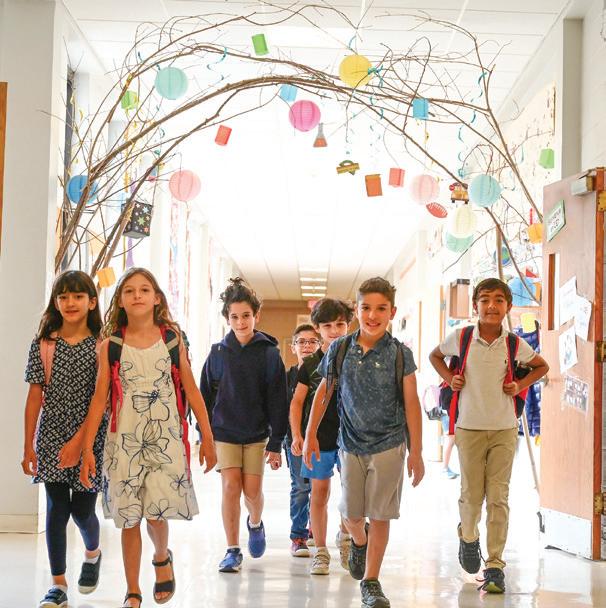
Since its founding over 20 years ago, FASP’s blend of French and American curricula meets and exceeds French governmental and NJ Public School standards-based requirements. FASP incorporates academics, including literature, science, STEM, art, music, physical education and social-emotional learning, with the careful selection of highly qualified educators who steward students through their bilingual academic journeys.
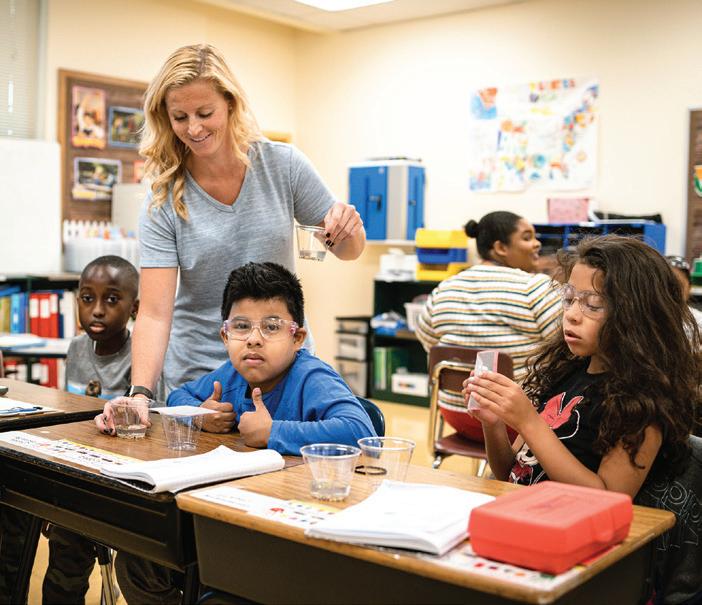
“FASP students and families flourish in our international and multilingual school community. With a strong focus on academics and attention to the overall health and well-being of our students, we recognize,
respect and celebrate the dignity and unique learning styles of each of our students, giving them the tools they need to thrive in our increasingly complex world,” says Head of School Corinne Güngör.
FASP is committed to a program of academic excellence designed to train the mind, strengthen the character and enrich the spirit of each student through the benefits of bilingual learning.
FASP is small by design to ensure students and families are supported in their bilingual education. FASP takes pride in the multicultural community of families who value and invest in bilingual education and support our mission. FASP graduates are extremely well prepared for high school and attend many prestigious international, American or French private or public schools after graduation.
An all-female, college preparatory high school in the Archdiocese of Newark, Immaculate Heart Academy (IHA) focuses on the complete education of young women by cultivating traditional Christian values while upholding exceptional academic standards.

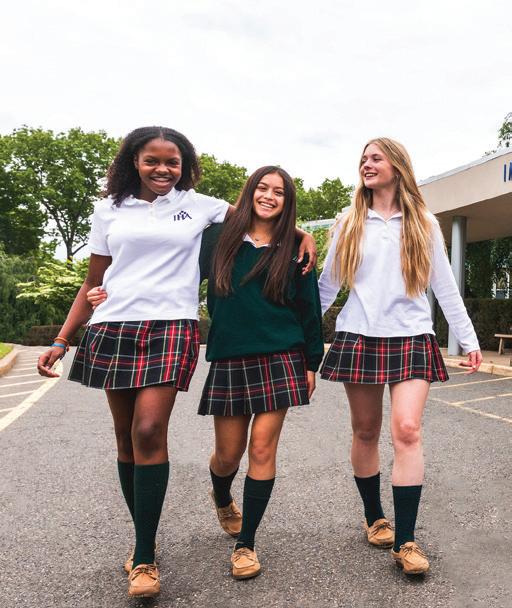
IHA develops every aspect of the individual by educating the mind, nurturing the spirit and promoting a healthy lifestyle. Students develop a level of independence and accountability that becomes a tremendous advantage in their college years.

“The positive and demanding single-sex environment instills a sense of confidence in our students, and cultivates the notion that they can achieve their goals and focus on developing their unique gifts,” says Kerry Carroll, principal of IHA.
IHA launched its inaugural Scholae@theheart Program in the 2022-23 academic year to provide increased opportunities for specialization and recognition in areas that capitalize on
students’ strengths and interests. The school recognizes student achievements through ten national honor societies and offers more than 50 clubs and activities and 16 athletic programs.
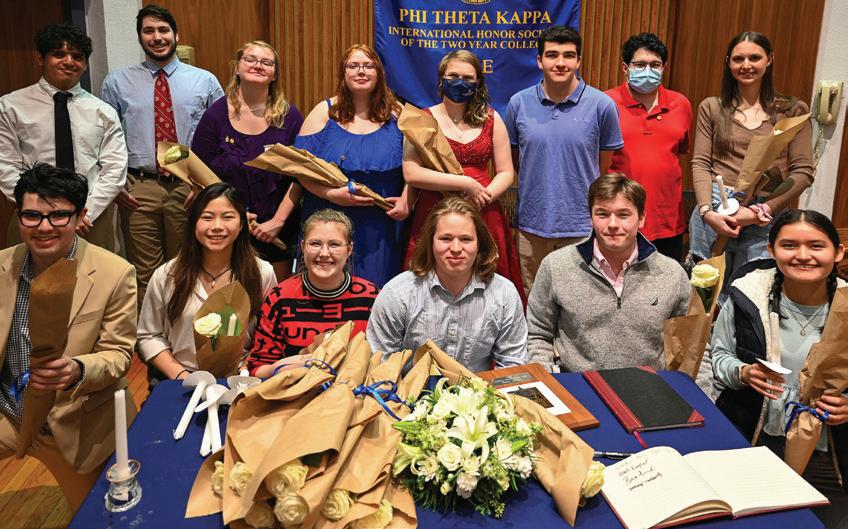
Students regularly put their faith into action by serving their community and ministering to those in need through an array of service opportunities. “Service at IHA isn’t just something that’s required;
it’s a central part of who we are,” she says. The sense of community within the building is unmatched, and lasts long after students graduate. “By setting their hearts on IHA, our students say to the world that they’re ready to become compassionate and empowered young women in control of their own futures,” Carroll says. “The sisterhood cultivated at IHA is enduring, and the bonds formed here last a lifetime.”
Landmark College opened in 1985 and has been revolutionizing education for students with learning differences such as dyslexia, ADHD, autism and executive function challenges ever since. Here are ten ways Landmark’s support programs are unlike any others:
Multiple Academic Paths. Students choose from on-campus and online options at every stage of learning, from bachelor’s and associate degrees to high school dual enrollment and summer programs for college and high school students.
Comprehensive supports (including advising, executive function coaching and social pragmatics) help students identify strategies for their learning profiles.
Therapy Dogs. We don’t just bring dogs to campus for final exams. They’re here each week to provide support, companionship and comfort.
Every student is part of a campus culture
that’s welcoming and supportive. Tax Savings. Our educational focus means many families qualify for significant federal medical tax deductions.
Perspectives in Learning. LC’s unique first-year course encourages students to research and understand their diagnosis —then present their findings and begin self-advocating.
Universal Design. Classes are taught in a variety of ways, including visually, auditorily and kinesthetically.
Careers & Internships. LC works with employers worldwide to support neurodivergent students in becoming career-ready and building connections.
Study Away. Travel with a twist on LC’s 3-week, faculty-led trips centered around a theme, journeying to destinations around the world.
Landmark College Institute for Research & Training (LCIRT). Students can intern and gain experience in many areas of research and advocacy.
With its 130-year legacy of educating and empowering young women, Mount St. Dominic Academy was built by the Sisters of St. Dominic, who left their early post in Jersey City for the more tranquil setting of Caldwell. Picture the Sisters, assisting in the construction of the original school building, carrying bricks and dreaming of a school that would provide opportunities for learning and leading for young women.
Fast forward to 2023, and the Mount continues to welcome a diverse community of young women, providing them with an education rooted in the Dominican pillars of prayer, study, community and mission, and elevated by innovation, real-world learning experiences and a faculty that specializes in how girls learn best. Opportunities available to students include an entrepreneurship and leadership elective known as the L.E.O. Program, a Capstone in Directed Research, 15 AP courses and a bevy of co- and extracurricular activities including
competitive athletics and an award-winning performing arts program.
Parents especially appreciate the school’s small class sizes and personalized instruction, says Principal Laura Hollenbaugh. With a college acceptance rate of 100 percent and alumnae who experience smooth academic transitions, the Mount has “knowing how girls learn best” down to a science.
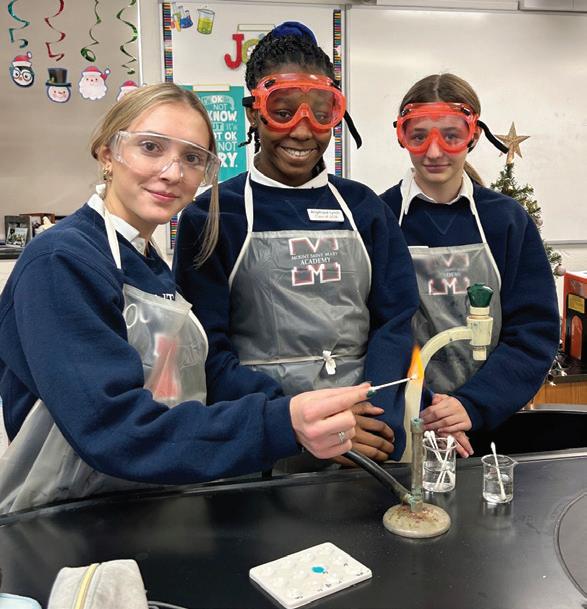
Aprivate Catholic high school, Mount Saint Mary Academy focuses on empowering young women to be their best selves in a supportive and spiritual atmosphere of high moral standards. The institution offers a wealth of opportunities for students, from challenging college-prep academics to more than 50 clubs, athletic teams and extracurricular activities to community service programs and parent organizations.
“Our mission is to develop our students academically, athletically, socially and spiritually so they graduate as young women who are grounded in their morals and faith,” says Director of Enrollment Management Donna Venezia Toryak. “We believe that challenging our students will prepare them to succeed in the future—and we want them to feel inspired to share their unique talents with others.”
Founded in 1908 by the Sisters of Mercy, the Mount is proud of its 100 percent college acceptance rate; the 62 graduates
of the Class of 2023 earned more than $23 million in scholarships. At Mount Saint Mary Academy, young women learn and grow as individuals in a supportive atmosphere where they develop a strong sisterhood and become well-equipped to face the challenges of their future.
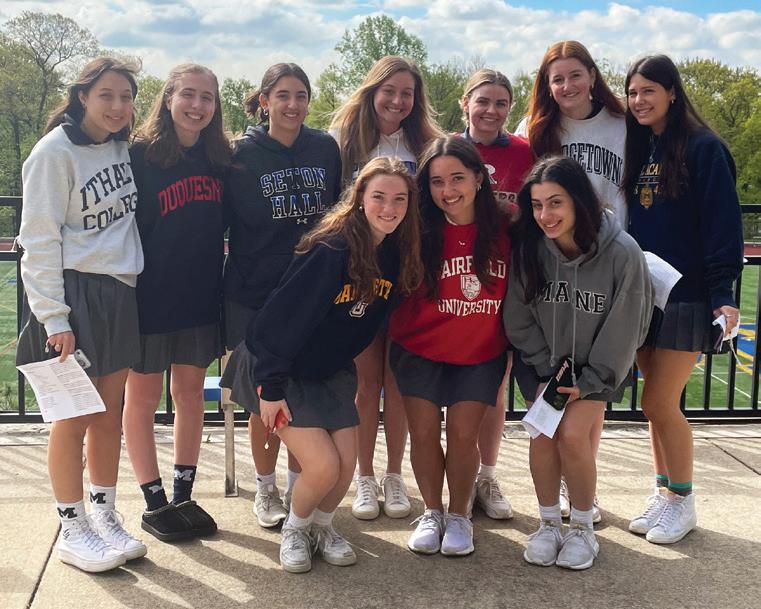
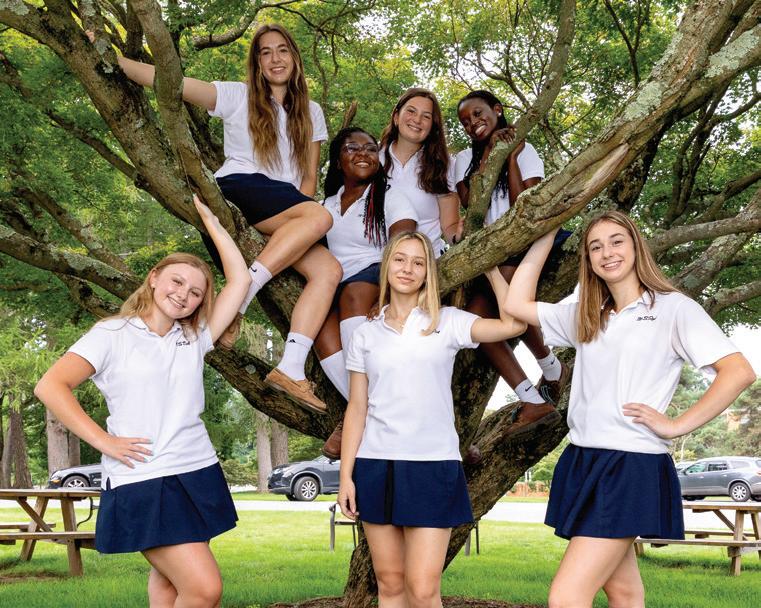
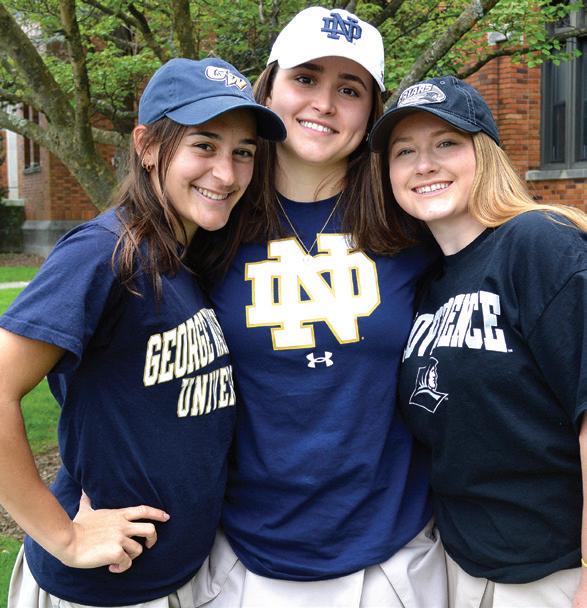
The school has also developed a vast network of alumnae who support students as they prepare for college as well as to
“Our education helps our students get to where they want to go—from some of the best colleges all the way to the courtroom, the operating room, the director’s chair, to the C-suite and everywhere in between,” Hollenbaugh says. “After the Mount, our alumnae are not only prepared to embark on the journey to adulthood, but empowered to be the positive change they hope to see in the world.”
help secure internships or employment opportunities.
“One of the most complimentary remarks we receive is that we are such a warm and welcoming community,” Toryak says. “If there was one word I would use to describe our school, it would be ‘nurturing’—our teachers and administrators are always here to support each young woman to be as successful as she can.”
Ask Saddle River Day School Director of Admissions Geoffrey Bowman
how he sees his students and these words are top of mind: Innovators. Thinkers. Leaders. The school “empowers students with the tools, space and encouragement to find their passions and thrive,” Bowman says. “The result? Graduates who own their future.”
SRDS was founded in 1957 and offers a Lower School (Pre-K3 to grade 4), a Middle School (grades 5-8) and an Upper School (grades 9-12). Bowman says the school differentiates itself by balancing the familiarity of a small school with the programmatic slate of a big one. “Families love SRDS because of our rigorous academic program and because of our warm and caring community,” he adds. “We live our core values of Everyone Counts, Love of Learning and Intellectual Risk-Taking.”
In recent years, the school has launched a number of new programs and initiatives such as the Upper School honors research
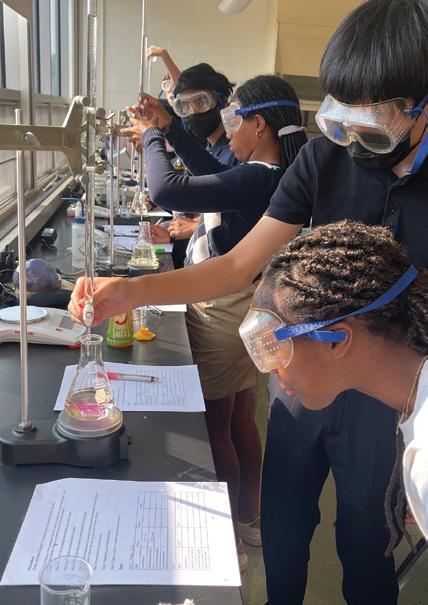

program (Gateway Diplomas) allowing seniors the opportunity to differentiate themselves in the college application process, a year-long Capstone Research Project for middle schoolers and an entrepreneurship program for Lower School students.
Education here focuses on “cultivating an entrepreneurial mindset” with the school’s Center for Innovation and Entrepreneurship
The hallmarks of The Wardlaw+Hartridge School are academic rigor, athletics and visual and performing arts—and above all, how the school educates the whole child.

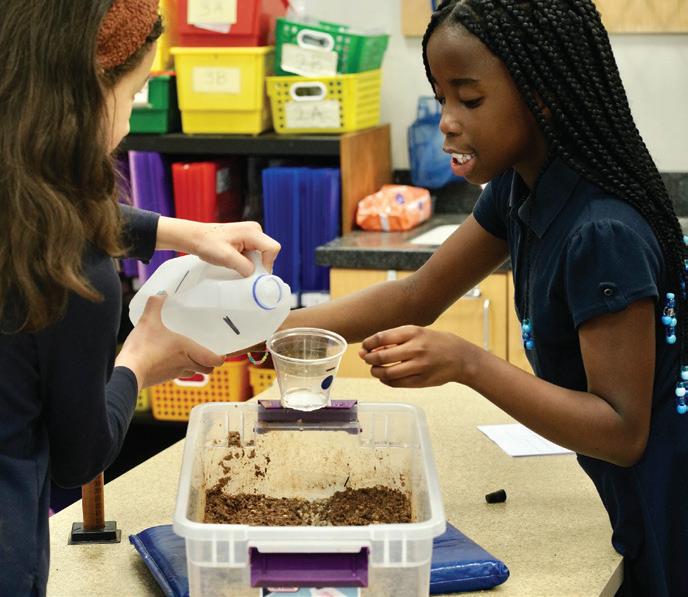
The school was founded in 1976 as a merger of two schools with roots tracing back to the late 1800s, and has evolved into a coeducational, college preparatory day school serving students in Pre-K through high school in three divisions.
The school’s small class sizes allow educators to make personal connections with each student. “We say that our teachers are ‘not the sage on the stage but the guide on the side,’ and we take immense pride that no student gets lost here,” says Director of Admission Gerard Gonnella. “Our students aren’t here to memorize facts—they’re here to engage in active learning.”
The Wardlaw+Hartridge School is also proud of its 100 percent college matriculation rate, 35 athletic teams, 11 signature programs and a 1:7 teacher-
student ratio, as well as the fact that students hail from all over the world.
offering programs in business, graphic arts, videography, engineering and computer science. In addition, AP courses are taught in grades 8-12 for qualified students, and there are more than 30 no-cut sports teams, clubs and musical/theater groups as well as many extracurricular activities for all ages. “Learning doesn’t end at 3 pm,” Bowman says. “Not for innovative thinkers and leaders it doesn’t.”
“Our students know that when they sit down at the lunch table that they might be dining with kids from China, India or Singapore—and they appreciate working collaboratively with students who have different traditions and backgrounds,” he says. “We equip students with important skills like critical thinking and problem
criticism.”
The school’s state-of-the-art facilities include an indoor pool, fitness center, two artificial turf fields and performing arts center. Nearly all students regularly perform community service.
“We’re committed to teaching students to have the courage and character to shape the future of our world,” Gonnella says.
1150
The Willow School was founded 20 years ago with a mission of empowering students to better understand our world and how they can make a difference. At Willow, students are inspired to learn joyfully, to care for the natural world and to practice Aristotelian virtues, which inform every part of the school’s curriculum and community. What truly sets Willow apart is the interweaving of ethics into all aspects of student life for its preschool through eighth graders, as well as the school’s focus on sustainability. Guided by Montessori- and Waldorf-trained teachers, preschool students are fully integrated into the school with access to music and science classes as well as an outdoor forest school education.
“Parents value our commitment to outdoor education with a focus on learning within and about the natural world, our student-centered, experiential learning and our virtues program that forms a shared language and ethos that helps us
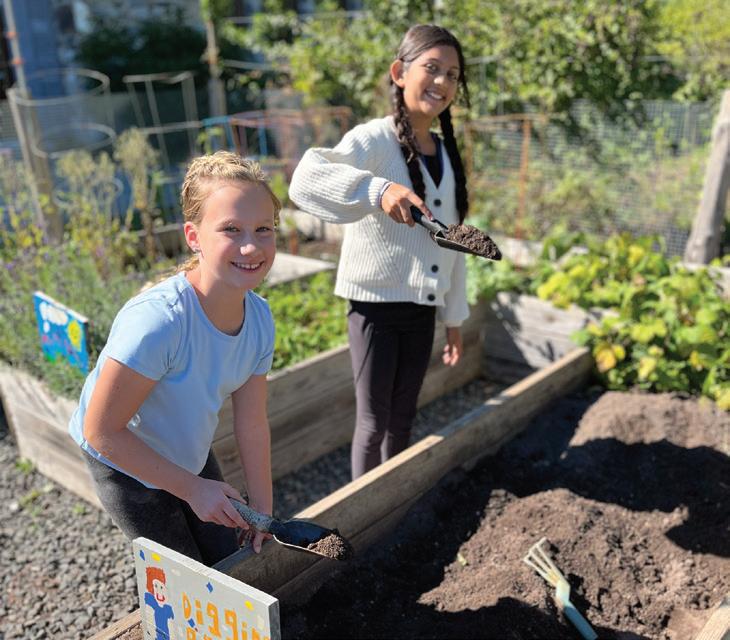
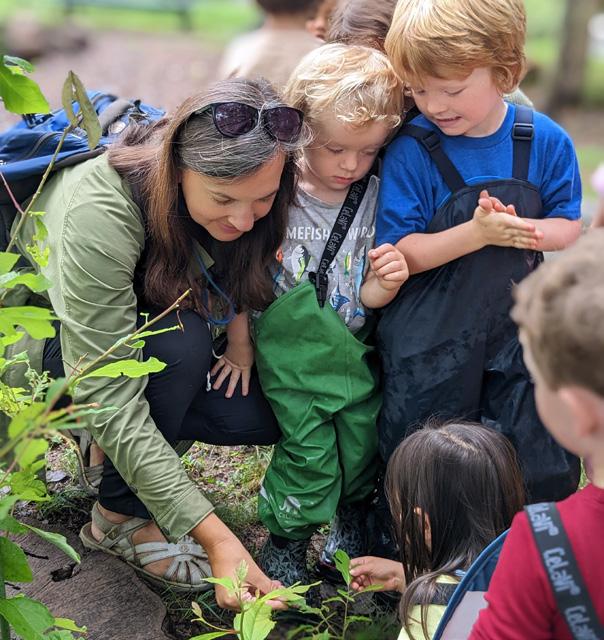
collectively raise deeply good and ethical children,” says Head of School Francisco Ayala. Students, parents and faculty work closely together to execute the school’s mission and foster a close and deeply connected community. The Willow School fosters mixed-aged social and educational opportunities for middle school students, while twice weekly Morning Gatherings
allow the entire school community to come together and reflect on the virtue of the month.
“The Willow School’s mission is to graduate students who believe in themselves as positive change-makers based on a foundation of stewardship, creativity, integrity, curiosity and responsibility,” Ayala says.

Successfully guiding a child with a learning differences such as dyslexia, ADHD, and nonverbal learning disorders (NVLD) through their early years into adulthood is probably one of the most challenging tasks for any parent. What makes this journey even harder is that every child has unique needs and most traditional learning methods weren’t designed for any one child. This is where Winston Preparatory School can help
What differentiates Winston Prep’s learning methodology is an in-depth understanding of each student which results in grouping by learning profile and precisely designed programming. Teachers assess how each student is responding to their skill development plan and adjust their approach based on that.
Winston Prep New Jersey, located in Whippany in Morris County, is part of Winston Preparatory School’s national network of campuses. These campuses
and the fully online program serve learners in grades 3-12 in addition to Winston Transitions, a program for young adults ages 17-21+, not yet ready for college or the workplace.
Winston Prep’s Focus program allows teachers to work one-to-one with each student daily for individualized instruction. This is accomplished through the Continuous Feedback System, which helps kids move
into greater levels of self-awareness, giving them the tools to succeed. The results are stellar. More than 99 percent of Winston Prep students graduate high school, compared to 70 percent of students with learning differences nationwide. Learn more at www.winstonprep.edu/ our-campuses/new-jersey or contact Director of Admissions Meredith Fisher at mfisher@winstonprep.edu.

Help
By JENNIFER KANTOR & JENNIFER AMATO

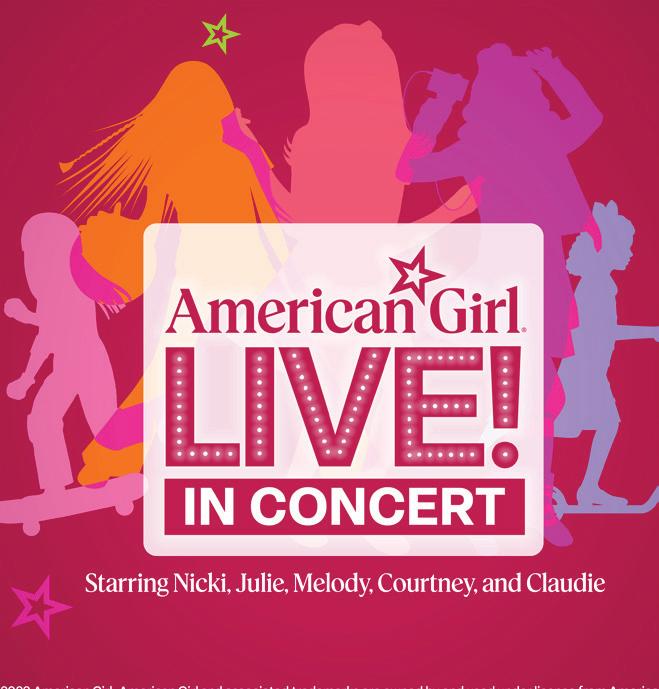
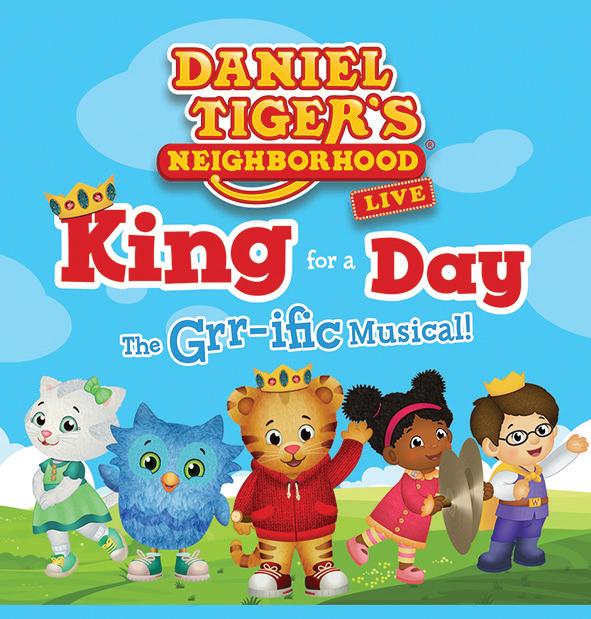
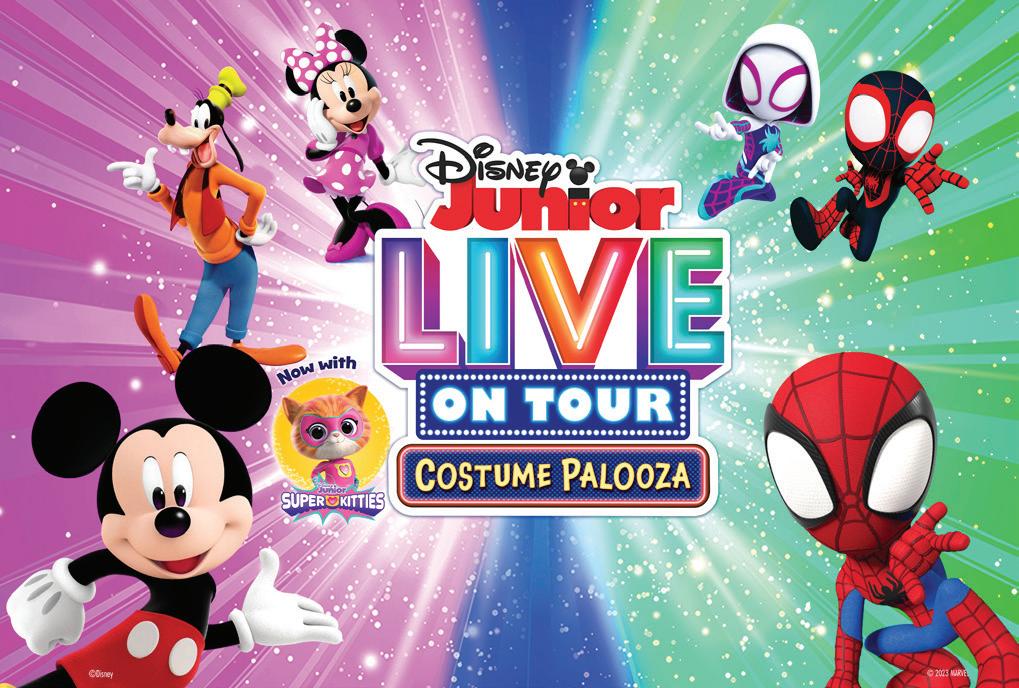



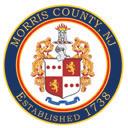
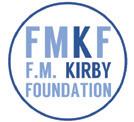
Choosing enrichment and extracurricular activities can be overwhelming given all the choices for our kids. But when selected with care, these programs can spark interest and creativity and expand upon the lessons they’re learning in school. From core subjects to the arts and beyond, we’ve rounded up a range of enrichment options for just about every interest.
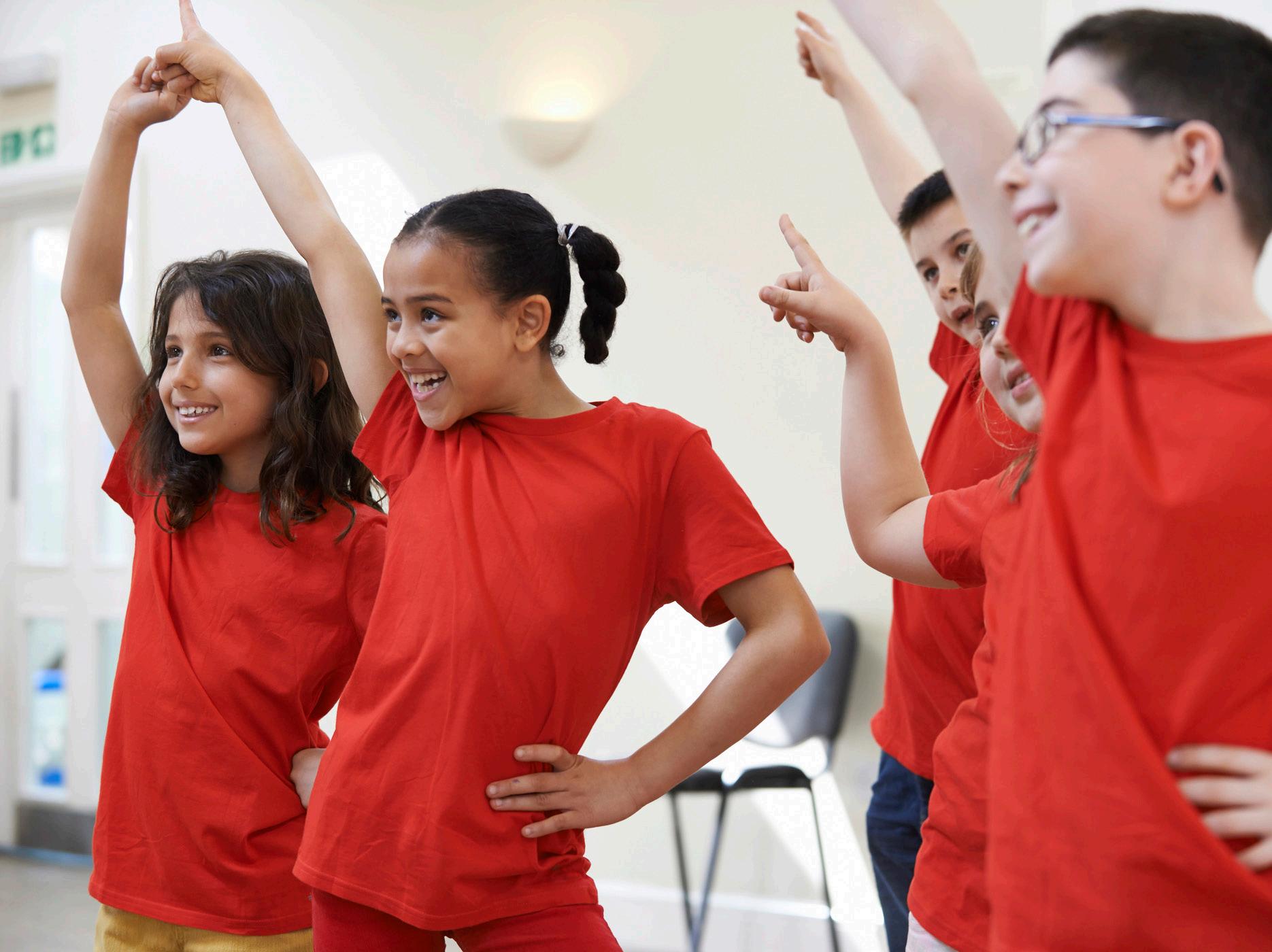
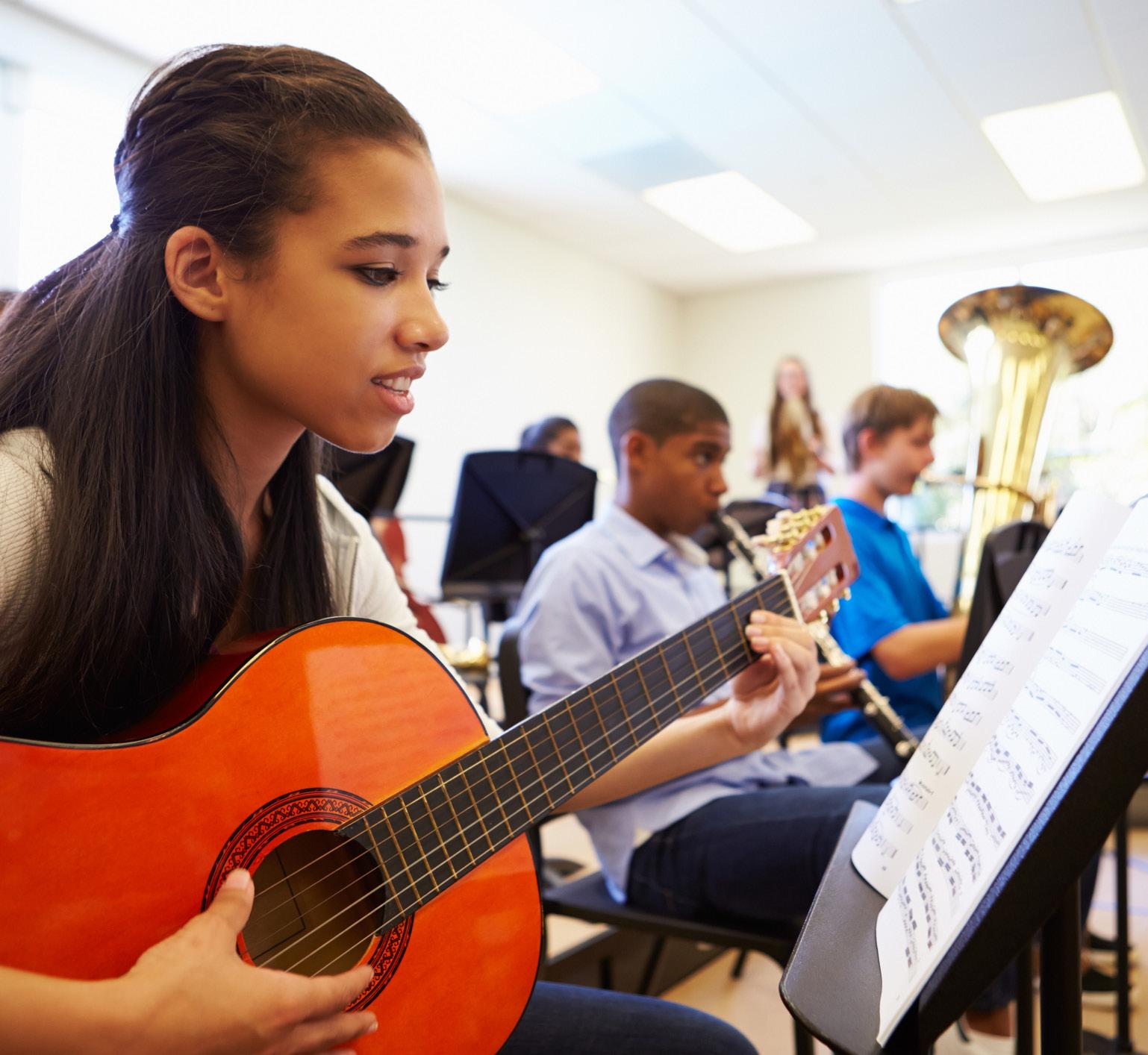
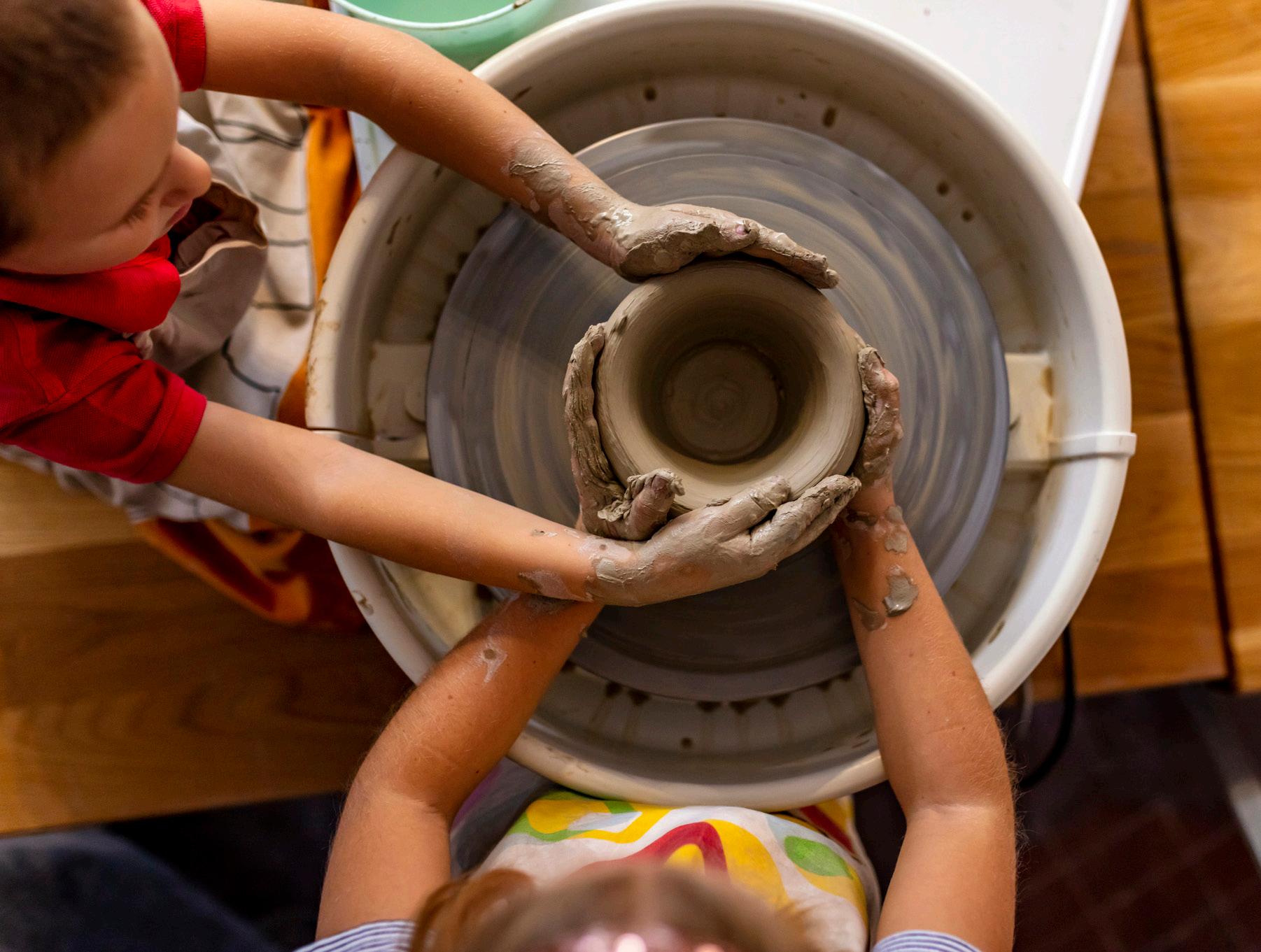
ENGLISH & MATH
AlphaMinds Academy Hoboken, Jersey City and online alphamindsacademy.com
With classes in logic, mathematics (integrating
Singapore Math and Art of Problem Solving), reading, essay writing, chess and coding, experienced instructors help pre-K kids to 11th graders excel academically and cultivate new skills and interests. Russian instruction and STEAM programs are also offered.

CAMathories
Summit camathories.com
There are a series of books and teaching plans that blend logic (math) and folktales (literacy) along with culture so your kids will open their eyes to a whole new world.
Chatham Learning Center
Chatham
cpfamilynetwork.org/resources/ resources-guide/chatham-learningcenter/
Afterschool offerings include tutoring in math, reading, foreign language, writing and AP courses along with homework help and summer enrichment. There’s also SAT and ACT test prep, psycho-educational evaluations for students who are struggling academically and Orton Gillingham tutoring for those having difficulty with reading.
City Kidz World
Cranbury, Kendall Park citykidzworld.com
Classes teach reading comprehension, writing, grammar, punctuation and vocabulary for
children ages 6-18. There are inschool options as well for writing and journalism.
Eye Level Learning
Multiple locations
myeyelevel.com/US/index.do
This group’s goal is to help foster independence, initiative and achievement through weekly math and English classes, daily homework and a mix of offline and online learning.
Huntington Learning Center
Multiple locations
huntingtonhelps.com
Kids from kindergarten through high school get one-on-one tutoring in math, reading, phonics, vocabulary, writing, science, study
skills and test prep.
JEI Learning Center
Multiple locations
jeilearning.com
JEI’s individualized, workbookbased model (one session per week plus daily homework) includes classes in problem-solving, math, English, reading, writing and critical and creative thinking.
KUMON
Multiple locations kumon.com
Kumon offers worksheetbased educational services for kids as young as 3 through high school. Strengthen their math and English skills with two weekly classes featuring timed/evaluated worksheets, plus 20-30 minutes of daily homework.
Language and Enrichment
Center
Scotch Plains
languageandenrichmentcenter.com
There is free pre-K and kindergarten before and after care, Mommy & Me, Language Immersion Education, including Italian and Spanish programs, AfterSchool Enrichment and language classes for teens and adults.
Mathnasium
Multiple locations
mathnasium.com
Boost your K-12th grader’s knack for numbers with a methodical yet personalized curriculum designed to help strugglers improve and superstars soar through a combination of mental, verbal, visual, tactile and written exercises.
East Hanover
mrbsbeyondtheclassroom.com
Students from pre-K to grade 12 can get tutoring, either individually,
through tutoring pods or by calling the Homework Hotline. The goal is to spark the interest and needs of each student.
Project Write Now Red Bank projectwritenow.org
Lit-loving kids, tweens and teens can workshop ideas, hone their craft and get constructive feedback amidst a supportive group. Older students can benefit from an internship program or help with writing college essays. Project Write Now also offers community outreach programs aimed at helping underserved groups develop writing and communication skills.
Sylvan Learning Center Multiple locations
sylvanlearning.com
Sylvan offers custom tutoring in math, reading, writing and more, plus homework help and coaching to sharpen students’ study skills. Older kids can get AP class support, help with college essays and SAT/ ACT prep, along with tutoring geared toward higher level skills.
Team Makers Tenafly teammakersnorthjersey.com
Team Makers programs are designed to teach children to think outside the box, solve problems and gain new perspectives while playing games with other children.
The Writers Circle Multiple locations writerscircleworkshops.com
From folktales to poems, weekly workshops aim to ignite a creative spark in storytellers in grades 3-12. The school offers in-person, hybrid and virtual workshops for students near and far.
FINE ARTS
duCret School of Art Plainfield ducretarts.org
The school’s mission is to provide a diverse, accessible and affordable visual arts education that promotes creativity and exploration so artists can find a voice in fine arts, illustration or graphic design.
One River School of Art + Design Multiple locations oneriverschool.com
Students have access to a unique method for learning art and digital design. There is a designated space for an exhibition program, where artwork is presented in school galleries to support the mission of teaching about contemporary art within the community.
Sharron Art Center
South Brunswick, Piscataway sharronartcenter.com
Students are given their own specialized curriculum to ensure they learn all the skills they need at their own pace. The center offers both weekday and weekend classes year-round.

Urban Arts at Monroe Hoboken urbanartsnj.com
Fine art classes here allow students to use visual arts as a vehicle for self-expression. In addition to art classes, Urban Arts curates student art shows
throughout the year.
Visual Arts Center of New Jersey Summit artcenternj.org
Through exhibition, Studio School and community programs, the Art Center engenders connection, curiosity and creative risk-taking among its students.
Yard School of Art Montclair Art Museum, montclairmontclairartmuseum.com
Classes include Introduction to Printmaking, Ice Dyeing, Printing with Leaves and Flowers, Plein-air Painting Retreat, sketching, drawing and painting.
York Fine Arts Princeton yorkfinearts.net
This art school provides students with a basis in classical technique and offers personal monitoring. Options include drawing and painting, creative painting and selfexpression.
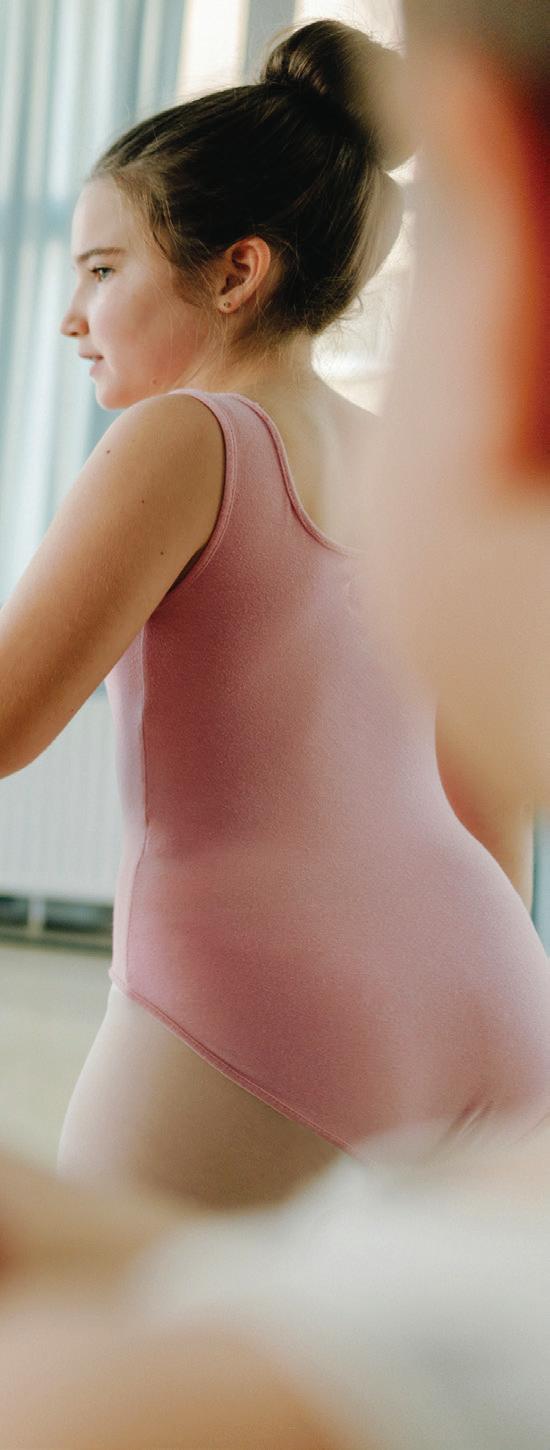
FOREIGN LANGUAGE
Cultural Center for Language Studies
Newark cclsnj.edu
Using multimedia technology, CCLS encourages students to think and speak only in English. Both formal and everyday American speech are introduced in each lesson to serve as the basis for all subsequent classroom work.
Dynamic Language Service Haddonfield dynlanguage.com
This group specializes in personalized language coaching to increase conversation, vocabulary, grammar, pronunciation and listening comprehension skills in multiple languages.
Gain Ville Ho-Ho-Kus, Rutherford gaincontact.com
Kids from pre-K through high school can learn Spanish, Italian, French and Arabic at this center that uses a culturally authentic approach to learning a new language.
HudsonWay Immersion School
Stirling, New York City hwis.org
Native speakers help kids in pre-K through grade 8 navigate fun, 90-minute immersion classes in Spanish and Mandarin. Kids will work on their skills in foreign language listening, reading, writing and speaking.
Jump Immersion School Multiple locations jumpimmersion.com
A Spanish and Mandarin immersion private school, there are day school preschool programs,
elementary level programs for kindergartners through third graders, and supplemental courses for students ages 5-11.
The Language Institute West Caldwell thelanguageinstitute.com
The instructors are native or native-proficient speakers and professional teachers who use a communicative approach and a variety of techniques to accommodate each person’s learning style. All languages, plus English as a Second Language and American Sign Language, are offered.
The Language Workshop for Children Montclair, Ridgewood languageworkshopforchildren.com
The Language Workshop exclusively offers one-on-one instruction featuring stories, songs and dialogue to get kids age 2 and older excited about learning French, Spanish or Italian.
Princeton Language Center Princeton berlitz.com/language-centers/ princeton
Kids and teens can learn Spanish, French, German, Korean, Italian or American Sign Language using the Berlitz Method, which requires learners only speak and hear the target language.
MUSIC + PERFORMING ARTS
Brightest Star School of Performing Arts Cedar Knolls, Morristown brighteststarschoolofperformingarts.com
This independent school encourages students to learn arts for life through vocal lessons, improvisation, memorization and dance.
Hunterdon Academy of the Arts
Flemington hunterdonacademyofthearts.com
Music lessons are tailored to each individual student and are available on most instruments, including guitar, piano, drums, violin and voice, among others.
MarbleJam Center for Arts & Enrichment Hackensack
marblejam.org
Instructional art classes, creative arts therapies and educational enrichment programs are offered for all ages and abilities. Staff provide the optimal approach based on each individual’s needs in an environment designed for success.
Performers Theatre Workshop Millburn
ptwonline.com
Children can expand their skills when it comes to acting, singing, dancing and playing musical instruments. The supportive, noncompetitive environment is great for kids of all ages and levels.
The Performing Arts School Bergen Performing Arts Center, Englewood
bergenpac.org/education/ performing-arts-school
Arts education programs provide students with hands-on arts training by industry professionals that allow them to gain real-world experience and enhance academic achievement through the arts as well as opportunities to perform on bergenPAC’s main stage and throughout the county. Your child can try dance, theater, music and a Video Day Project, either in person or virtually.
Princeton Ballet School Cranbury, New Brunswick, Princeton
• Learning Pods/Tutoring

• Orton-Gillingham & Wilson Reading System Classes
• Enrichment Classes (STEM, Art, Acting, Cooking, and more!)
• After-School Programs
• Educational Services/Consulting


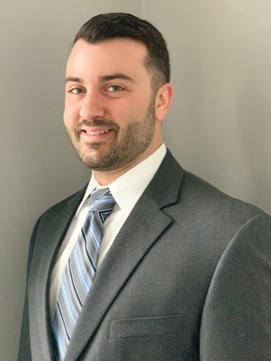
• Kids Intramural Sports Clubs (Dodgeball, Kickball, Cornhole, and more!)
Located in East Hanover, NJ (973) 887-1803
www.mrbsbeyondtheclassroom.com
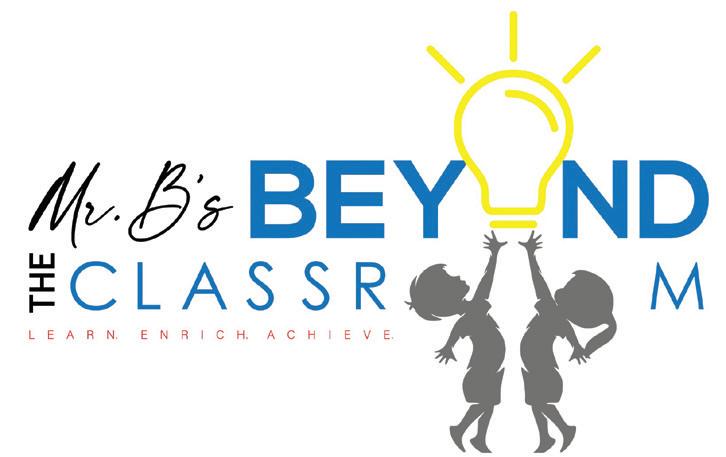
Email: mrb.beyondtheclassroom@gmail.com
Facebook/Instagram: @mrbsbeyondtheclassroom
Linktree: linktr.ee/mrbsbeyondtheclassroom

Classes are designed for all ages to build confidence, artistry, discipline, and foster students’ love of dance. Our world class faculty is dedicated to helping each student reach their full potential, with spacious studios, new state-of-the-art dance floors, and live music. The perfect environment to learn and grow!

arballet.org/princeton-ballet-school
Princeton Ballet School is the official school of American Repertory Ballet. Dancers are involved in in-school residencies, community events, student matinee performances and specially designed class offerings.
The Shakespeare Theatre of New Jersey Florham Park and Madison shakespearenj.org
The Shakespeare Theatre Academy offers teen classes in a wide range of disciplines connected with classic theater. Each series of classes gives kids the opportunity to work under the instruction of The Shakespeare Theatre’s artistic and educational staff as well as guest teaching artists.
North Brunswick
taubenslagproductions.com
A variety of fun-filled family entertainment options are offered, including professional touring children’s shows, Theater Week and Summer Theater Camp.
Westrick Music Academy
Princeton Junction westrickmusic.org
Home to Princeton Boychoir, Princeton Girlchoir and the Poco Voce class for first and second graders, Westrick also offers individual voice lessons for your budding songbird.
STEAM
AlphaMinds Academy
Multiple locations alphamindsacademy.com
AlphaMinds Academy is an enrichment program that provides students of all ages and abilities the opportunity to learn in a fun, creative atmosphere. Specialty classes include chess, coding, engineering, mathematics and logic, reading and Russian.
Learning Center Madison bitsbytescode.com
Kids can learn how to type, code, build a computer or build a robot, all while having fun.
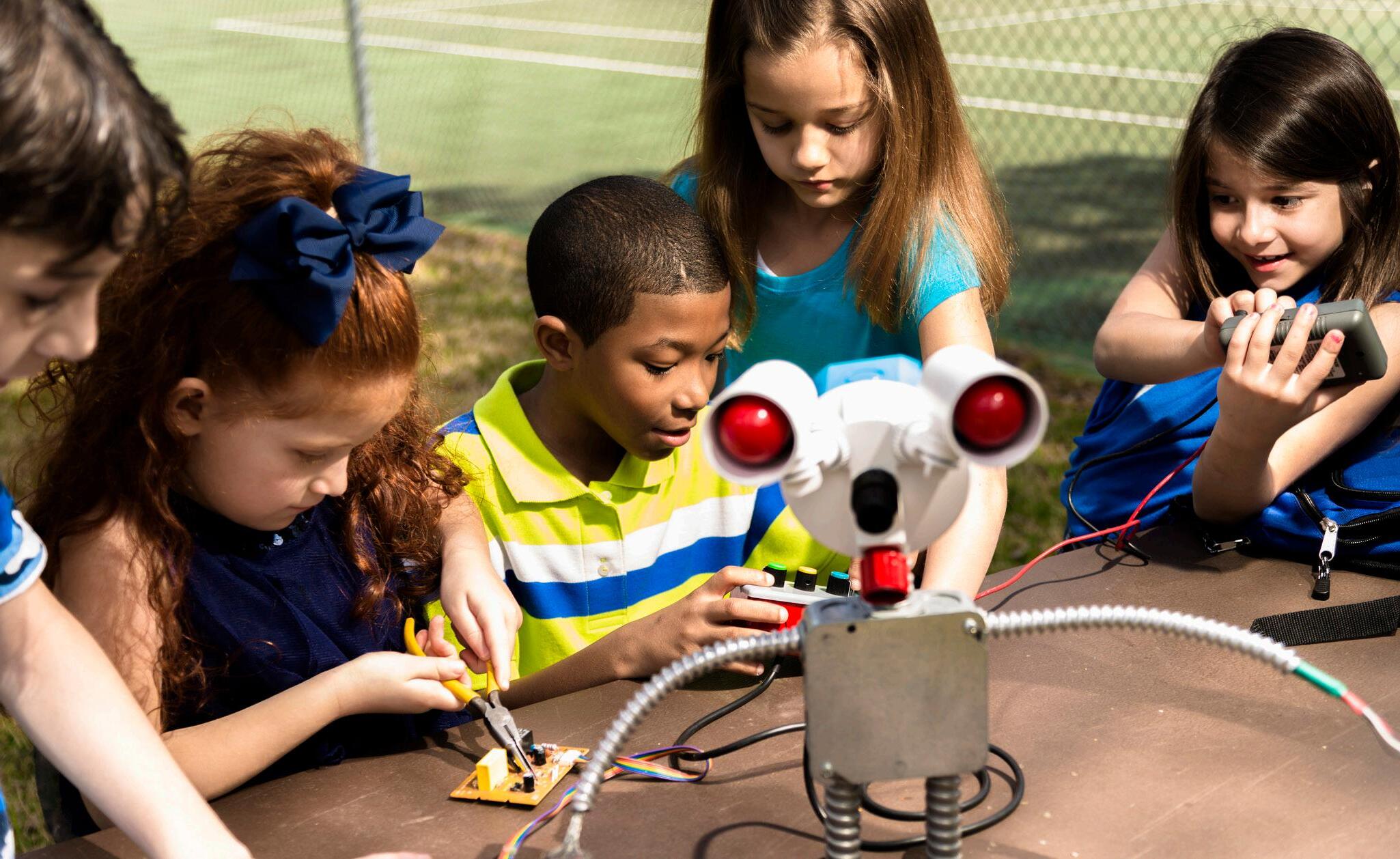
Code Ninjas
Multiple locations
codeninjas.com
Kids ages 7-14 can master coding skills at their own pace through a game-based curriculum. They’ll earn colored wristbands as they level up in coding and create games.
Little Ivy Academy
Multiple locations littleivyacademy.com
Creative kids in grades K-8 can design, build and program apps, video games, robots, digital inventions, dynamic websites, spy tech and digital movies.
KTByte Academy
Online
ktbyte.com
Kids ages 8-18 will learn online computer coding, doing everything from Blockly programming to high school curriculum to USACO prep courses.
Mad Science
Multiple locations madscience.org
Mad Science revels in hands-on classes in forensics, astronomy, magnetism, slimy stuff (chemistry) and other natural wonders. Interactive classes for students
ages 5-12 will take them to the stars or teach them about engineering through LEGO building.
Montclair Learning Center
Bloomfield mlcplus.com
Kids can have fun while learning chess, Minecraft, coding, robotics, engineering and video game technology. There is also a special Girls Who Code program, plus Maker Spaces.
Robot Revolution Summit robotrevolution.net
Future engineers currently in third through 12th grade will learn problem-solving skills both in a cerebral logical method (programming) and in a physical way (mechanical engineering).
STEAM Works Studio
Multiple locations steamworksstudio.com
The academy is focused on fostering and developing essential 21st-century and STEAM skills such as problem-solving, critical thinking, creativity and collaboration in a hands-on, fun environment.
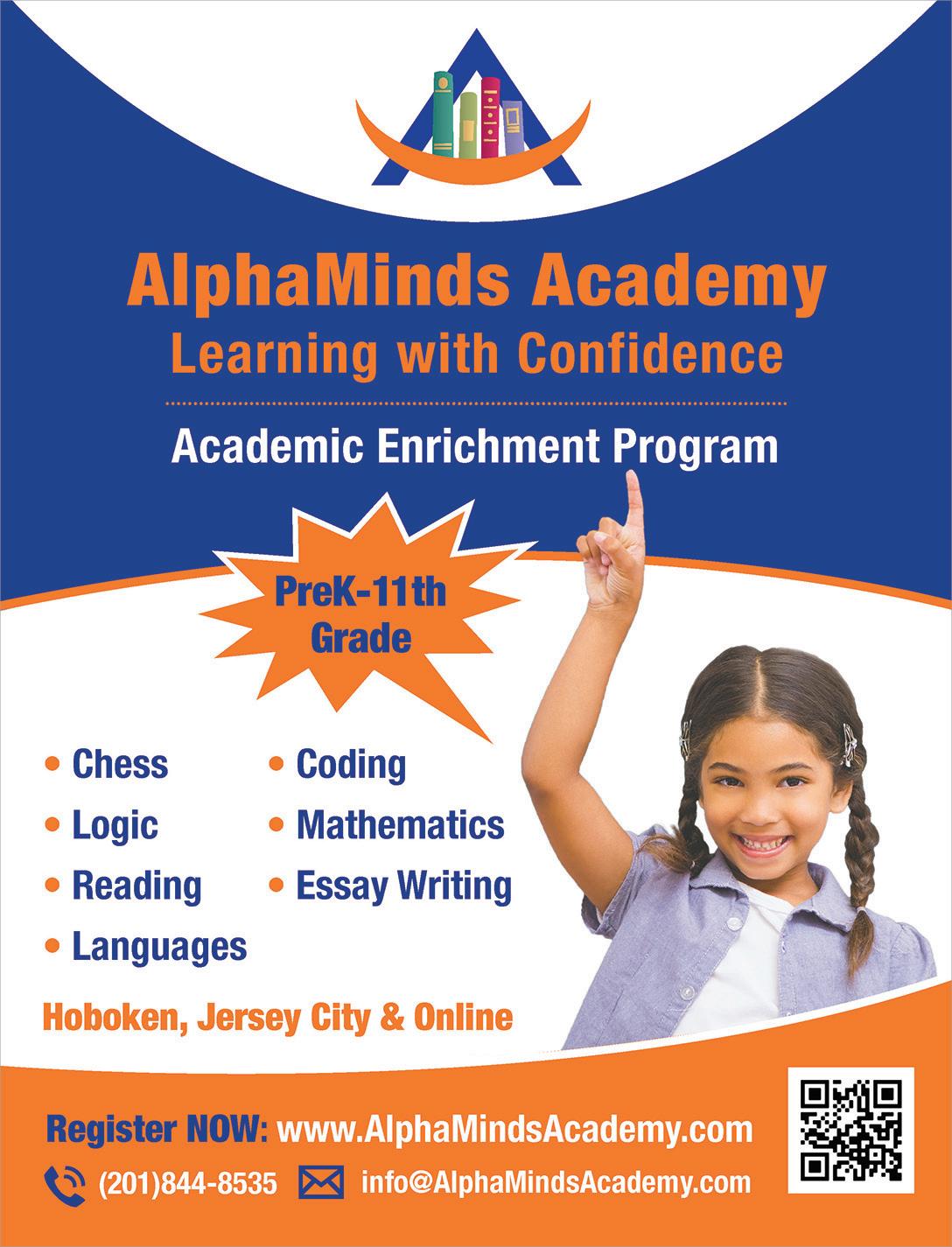





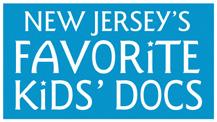

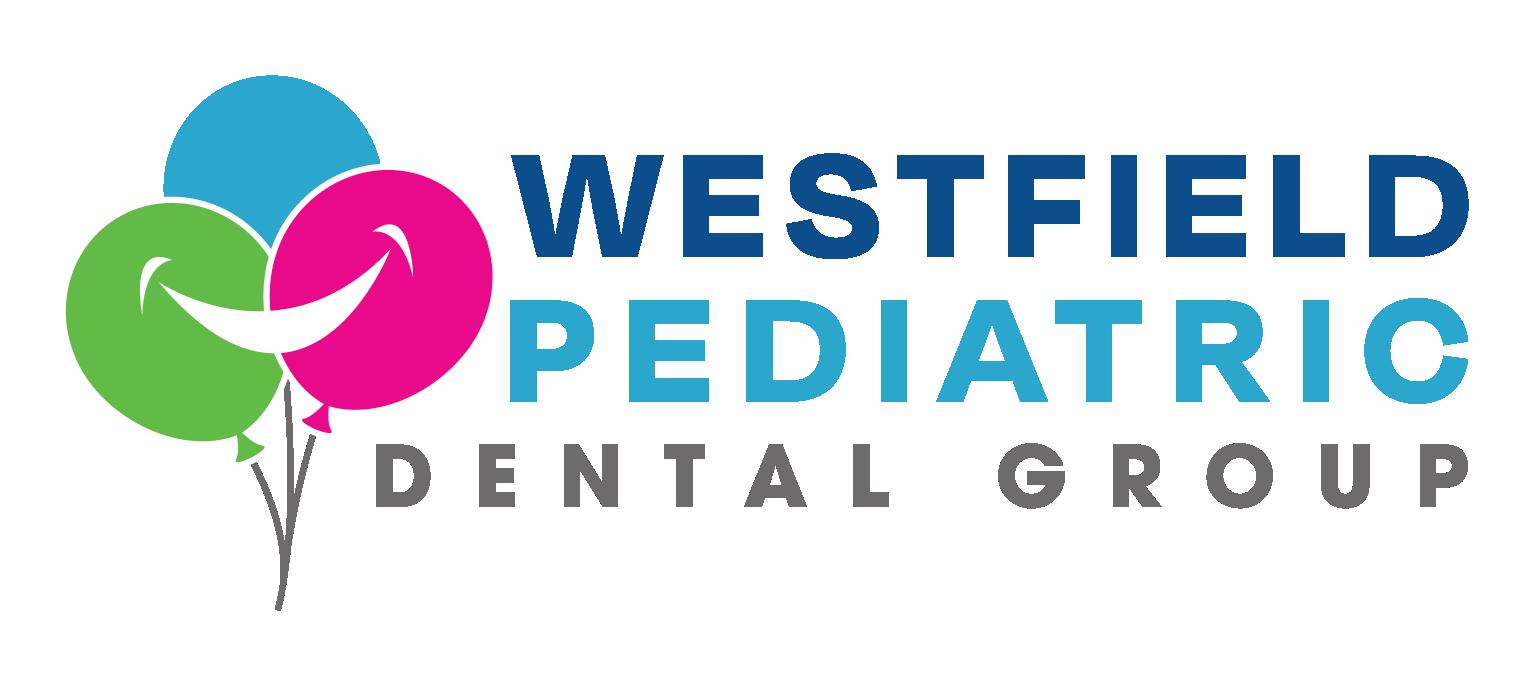
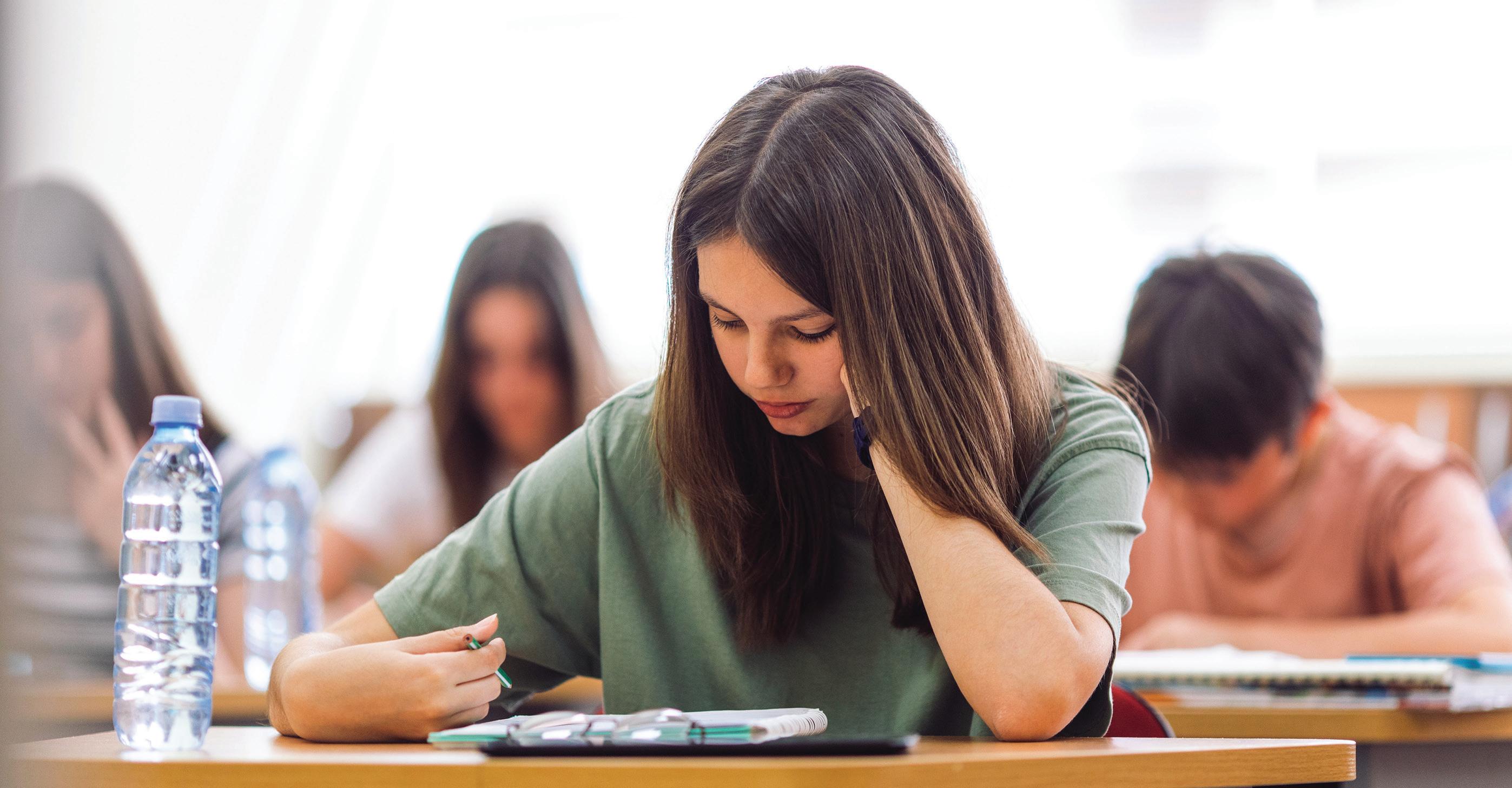
A new study says parental pressure can hurt, not help, your kids’ grades.
By ERICA SCHINDLERPushing kids to reach their potential is a given for parents but how do you know when it’s too much? A new Pepperdine University study suggests parental pressure can have a negative impact on a child’s grade point average.
The study, published in the Psi Chi Journal of Psychological Research, surveyed 158 parents and 70 middle school students and focused on parental involvement and expectations.
The study found that when healthy, positive expectations are communicated, a child’s grade point average (GPA) is strengthened. Not surprisingly, parental pressure was found to have a negative impact on GPA. So when and how do expectations turn into unhealthy pressure?
“Parental pressure can present itself when expectations are above the abilities of the child, or when they involve behaviors that cause a child to feel stressed,” says Pepperdine student Madison Weir, who worked on the study. “Children can feel academic pressure when they lack confidence in their abilities, feel their parents are never satisfied with their performance, fear coming home with their grades, or feel as though they are untrusted and disappointing in their academic output.”
Created using the results of the Pepperdine study, here’s a list of dos and don’ts for parents hoping to have a positive effect on their kids’ grades without putting unhealthy pressure on them: DO celebrate both the big and small victories. Show your children
that their success is something to be proud of!
DO explain the importance of school and communicate honestly about your expectations.
DO tell your kids that with hard work, they have the ability to accomplish anything they set their mind to.
DO identify progress and the habits that led to it. Focus on how they’ve improved and remind them they can do it!
DON’T do your children’s homework for them. Give them the confidence they need to find the right answer.
DON’T compare, and don’t let them compare! Self-improvement is more important than the score a classmate got on a recent science quiz.
DON’T focus on their weaknesses; maximize their strengths instead.
DON’T let your children believe that their worth is decided by their grades. Make sure they know you love them regardless.
Showing interest in your child’s academics by offering personal guidance or support from a tutor, attending school events and showing you care about what they’re learning about are all great ways to get involved. The more involved you are (minus the heavy pressure), the more supported your kids will feel.
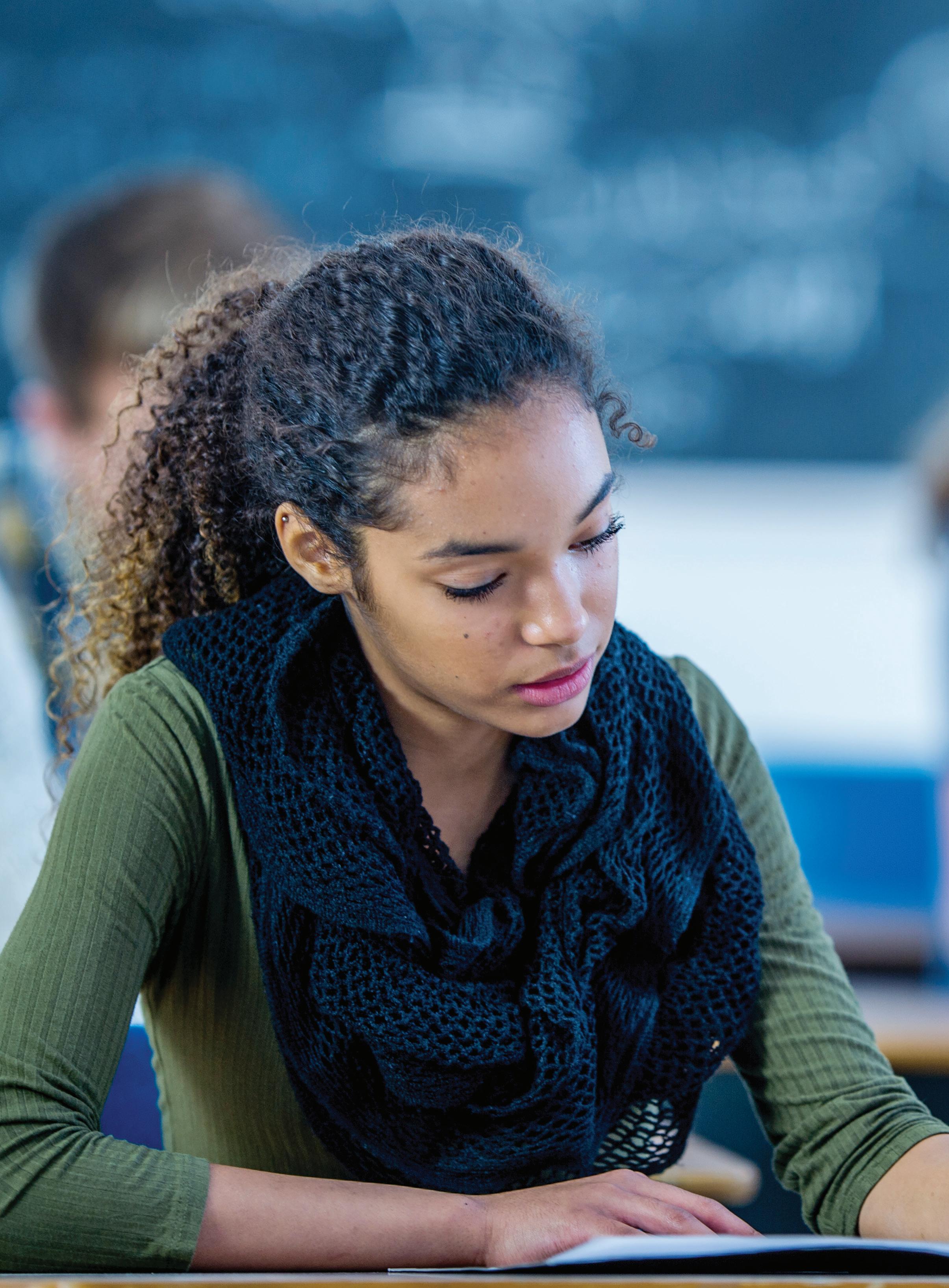
In a rapidly changing test-optional landscape, how important is it for your teen to submit their SAT or ACT score? We asked the experts for answers to your biggest questions.
 By DINA EL NABLI
By DINA EL NABLI
What’s the case for and against submitting SAT or ACT scores if a college is test optional?
Not surprisingly, experts advise students who are strong test-takers to study for either test with the goal of submitting their score, especially if their GPA isn’t where they’d like it to be. Students who aren’t strong test takers may want to consider investing their time elsewhere. “I frequently see students take the SAT whose time would be better spent on academics or extracurriculars,” says Robert Powers, a college consultant and founder of collegetorch.com.
Will students be at a disadvantage if they don’t submit a test score?
The answer depends on the schools your teen is considering. A majority of colleges are test optional, but not all, says Laurie Kopp Weingarten, a private college counselor and president of One-Stop College Counseling in Marlboro. For example, public universities in Florida, Georgia and Tennessee require test scores. MIT, Purdue and Georgetown also ask for them. Some colleges are test blind, also known as test free, which means they won’t consider any scores. If a college says it’s test optional, admission officers generally emphasize that they mean it, Weingarten says. If your teen is applying to a testoptional school, they should only submit a score if it’s in line with scores of accepted students at that college, she says.
If your teen is applying to a highly selective college, submitting a strong test score is pretty much a given. “With the inconsistencies in how grading is done across the United States, test scores give a standardized measure of student readiness for university work,” says Brian W. Stewart, author of Barron’s Digital SAT Study Guide Premium, 2024.
Bottom line: Study and take the test once, twice or three
times max before deciding where it makes sense to send your scores.
This is a challenge that won’t be going away anytime soon. “If every year students are submitting scores in the top 50th percentile of their target school’s accepted class, the 50th percentile will continue to get higher and higher,” says Pranoy Mohapatra, founder and director of PMTutoring LLC in Old Bridge and founder and board member of the National Test Prep Association. “At some point, this is unsustainable.”
Interestingly, rising test scores may also help students who aren’t strong test takers. “With many students not proactively studying for standardized tests, there is a significant opportunity for standing out,” says Allen Koh, founder of Cardinal Education, an educational consulting company that offers private school admissions consulting and college counseling. That means students who struggle with the SAT and ACT can feel good about focusing elsewhere, from extracurriculars and community service to taking more rigorous classes and boosting their GPA.
If your teen wants to improve their SAT or ACT score, taking lots of practice tests makes all the difference.
“The SAT is coachable, and most students can achieve a great score when they learn the content, strategy, time management and embody a positive mindset,” says Bara Sapir, founder of citytestprep.com and a member of the Board of Directors of the National Test Prep Association. “And practice. It always requires a lot of practice.”
If your teen is getting ready to take the SAT, which is changing to a digital format in 2024, or ACT soon, you may be feeling overwhelmed by the seemingly endless number of test prep options out there. How do you decide what the best route is for your kid? We got the lowdown on a handful of test prep companies to help inform your search.
citytestprep.com

Method: In-person or live online individual sessions or group classes; focus on subject matter and test-taking strategies; time management and accelerated reading also taught
Cost: Pricing varies
Duration: Also varies depending on the program
Bottom Line: There’s no guarantee, but CEO and Founder Bara Sapir says the expected increase in reading speed is up to 5x, and reading test scores improve up to 26 percent.
huntingtonhelps.com
Method: Individualized program based on full-length assessment and parental input; 1-on-1 sessions either in person, online or hybrid; teaches concepts and test-taking skills
Cost: $195 assessment fee + $95 per hour
Duration: 20-40 hours for a small increase (about 200 points), or up to 80 hours for a large increase (about 400+ points)
Bottom Line: There are no guarantees, but Englewood franchise owner Viola Feld says the average test increase is 280-300 points on the SAT and six points on the ACT.
kaptest.com
Method: Live online, on-demand, bootcamp and 1:1 private tutoring teach key strategies for test taking and getting students comfortable with the testing process; combines expert instruction with practice tests
Cost: $2,000
Duration: 3 months
Bottom Line: Kaplan will give you your money back if your kid doesn’t improve their score, or you can extend access to online resources at no extra cost.
Is your teen prepping for the SAT or ACT? Start making your plan by deciding whether they work better with a private tutor in person, in a group or online
pmtutoring.com
Method: In-person classes in Old Bridge, in-person group boot camps at Brookdale Community College or virtual lessons; approach includes identifying errors in content or strategy, making sure kids understand key learning concepts and gaining points through live drills and timed work
Cost: Ranges from $210 per session for 1-on-1 prep (3 months would be $2,500) to $780 for group bootcamp (includes four sessions per subject plus two mock tests, or you can double up for math and reading)
Duration: Meet once a week for three months; plus 4-6 hours of work per week at home
Bottom line: Typical improvement is 150-200 points. Driven students can grow higher quicker, especially if they meet twice per week, but much of your result depends on engagement and completion of homework, says owner Pranoy Mohapatra.
princetonreview.com
Method: In-person and online courses, private tutoring, self-guided options via Princeton Review books
Cost: $499 for self-paced to $2,200 for a full package
Duration: Start 6-8 weeks before the test date and continue up until the exam; at least 18 hours of instruction
Bottom Line: All courses come with a “Money Back Better Score” guarantee and a satisfaction guarantee. Certain courses and tutoring packages offer a specific score increase guarantee as well.
sylvanlearning.com
Method: 1:1 in-person or 3:1 small group instruction in verbal and math plus test-taking strategies and time management; individualized programs for added support in specific areas of reading, writing and math; kids take four practice tests throughout the course of the program
Cost: Starts at $999
Duration: 36-40 hours (coming in twice per week for two hours each session takes 9-10 weeks to complete) plus 1520 minutes of homework daily; continue test prep until 1-3 weeks before test day
Bottom Line: Scores depend on how committed the student is to the sessions, practicing at home and asking questions. Some centers offer a repeat of the course if your student is in a group session and doesn’t get their desired score.
If you decide a test prep company isn’t right for your teen, there are other methods you can try. Consider booking sessions online through a platform such as prepscholar.com. These generally tend to be more affordable. Your teen’s high school may offer classes or you can hire high school math and English teachers for private tutoring which tends to be more expensive but a great option for kids who may have a good connection with a former teacher. In the end, the best references are the ones shared by other students and parents you know so be sure to ask friends or parents in a local Facebook group.
Much of test prep is about practicing and training your brain. An effective way to do that is by having your teen take as many practice tests as possible, whether in person at a test prep center such as Noble Klass Academy in Midland Park, by using a College Board test prep book or by taking an online practice
test through a test prep company.
Not surprisingly, research shows the amount of time spent studying directly correlates to the average increase in score. “The more a student becomes familiar with the types of questions and the pacing of the exam, the more confident that student will become,” says Nicole Iannucci, Mid-Atlantic market manager for The Princeton Review.
If your child is anxious about the SAT or ACT, it’s important to get them comfortable with the test format. “For most students, this will be the longest test of their lives. We find that an enormous part of what stresses students is the unknown: Students stress when they don’t know what to expect,” says Ronny Goldschmitz, a Kaplan instructor since 2016 who lives in southern New Jersey. “Once students know the content, learn test-taking strategies and have gone through multiple practice tests, they become familiarized and comfortable with the test, so by the time they get to test day, there’s a lot less to be anxious about.”

RATINER SPEECH AND LANGUAGE THERAPY SERVICES


Building Bridges to Success
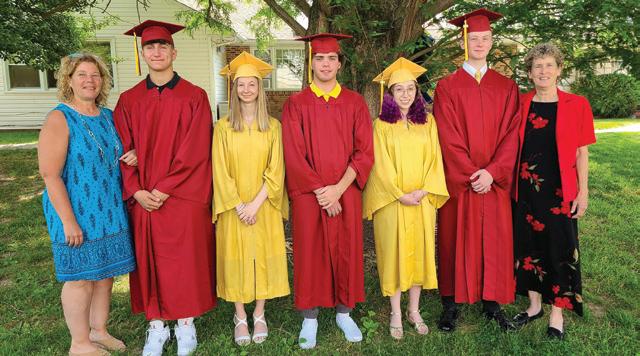
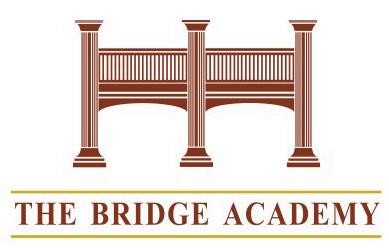

Serving the community over 20 years

Assessment & Treatment for Speech, Language and Orofacial Myofunctional Disorders in Children and Adults
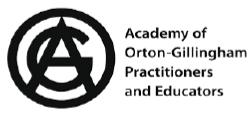
Sharon Ratiner MA CCC-SLP, COM
NJ License # 41YS00057000
344 Main Street, Suite A, Metuchen sprspeech@yahoo.com
ratinerspeechtherapy.com • 848-200-7276
Our school is a warm and loving place where children are nurtured and encouraged to explore, learn and grow. Our experienced and dedicated teachers are passionate about providing a supportive and caring environment that helps your child reach their full potential.

Christine Monaco, Director 908.277.6043
ChristineM@stteresaavila.org stteresaofavilaschool.org
By DINA EL NABLIApprox. 3 hours
Paper-based test for all students

Same test booklets for multiple students
Passages up to 750 words with multiple questions per passage
No-calculator section with longer word problems
With the introduction of an all-digital SAT in March 2024, the college prep test is undergoing its biggest transformation in history. What do the changes mean for your high schooler? Here’s what the experts have to say:
The test will be about an hour shorter with shorter reading and writing passages, but that doesn’t mean it will be easier. “Since there are fewer questions, students will need to make each question really count so they can maximize their score,” says Brian W. Stewart, author of Barron’s Digital SAT Study Guide Premium, 2024
The new SAT will be adaptive, which means it will get easier or harder based on a student’s performance. “Those likely to score high will not need to slog through easy questions and those likely to score in the mid to lower range won’t need to be daunted and disheartened by questions they don’t understand,” says Bara Sapir, founder of citytestprep. com and a member of the Board of Directors of the National Test Prep Association.
Pranoy Mohapatra, founder and director of PMTutoring LLC in Old Bridge and founder of the National Test Prep Association, suggests students should not even think about the test being adaptive. “The goal is to do the best they can and avoid worrying
2+ hours
Computer / tablet-based test for all students
Section-adaptive based on student performance
Passages no more than 150 words with one question per passage

More concise word problems with permitted calculator section
about the format and the modules,” says Mohapatra. Students should prepare for the new SAT by taking digital practice tests. It’s important to get comfortable with the new testing format and embedded calculator and timer. “The College Board has a free application called Bluebook that students can download to try the adaptive tests for free,” says Stewart. Students can download a free sample Barron’s e-book with a full-length practice test at barronseduc.com. The PSAT will also be offered in digital form this October. Experts say most students find starting to prep about 3-6 months in advance of the test works well.
For some students, it may make more sense to take the paper SAT this year. “If a student is ready to test now, waiting until March 2024 to take the new test doesn’t make sense, even if the shorter, digital version appeals to them,” says Laurie Kopp Weingarten, president and chief educational consultant of OneStop College Counseling in Marlboro. “If a student waits until March and isn’t happy with their score, the next administration is in May when many students are busy with AP or IB exams which is not ideal timing.”
If your teen isn’t comfortable with the digital format, they should consider taking the ACT, which is an on-paper test. Turn to page 76 for a list of test prep options.
Groups of all ages can explore, discover and enjoy marvels such as the world’s first space shuttle, the world’s fastest commercial airliner, a nuclear-weapons-carrying submarine, and dozens of military aircraft, including a supersonic spy plane, all displayed in and around the historic landmark aircraft carrier, Intrepid.

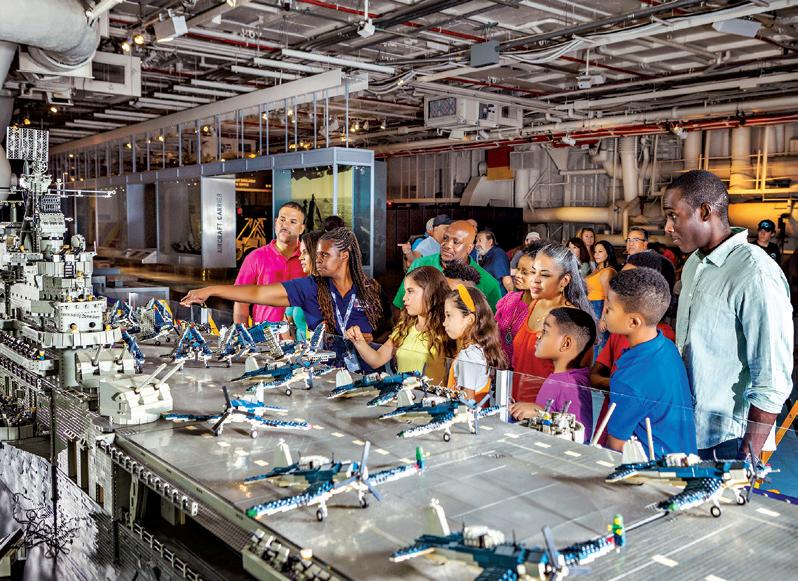

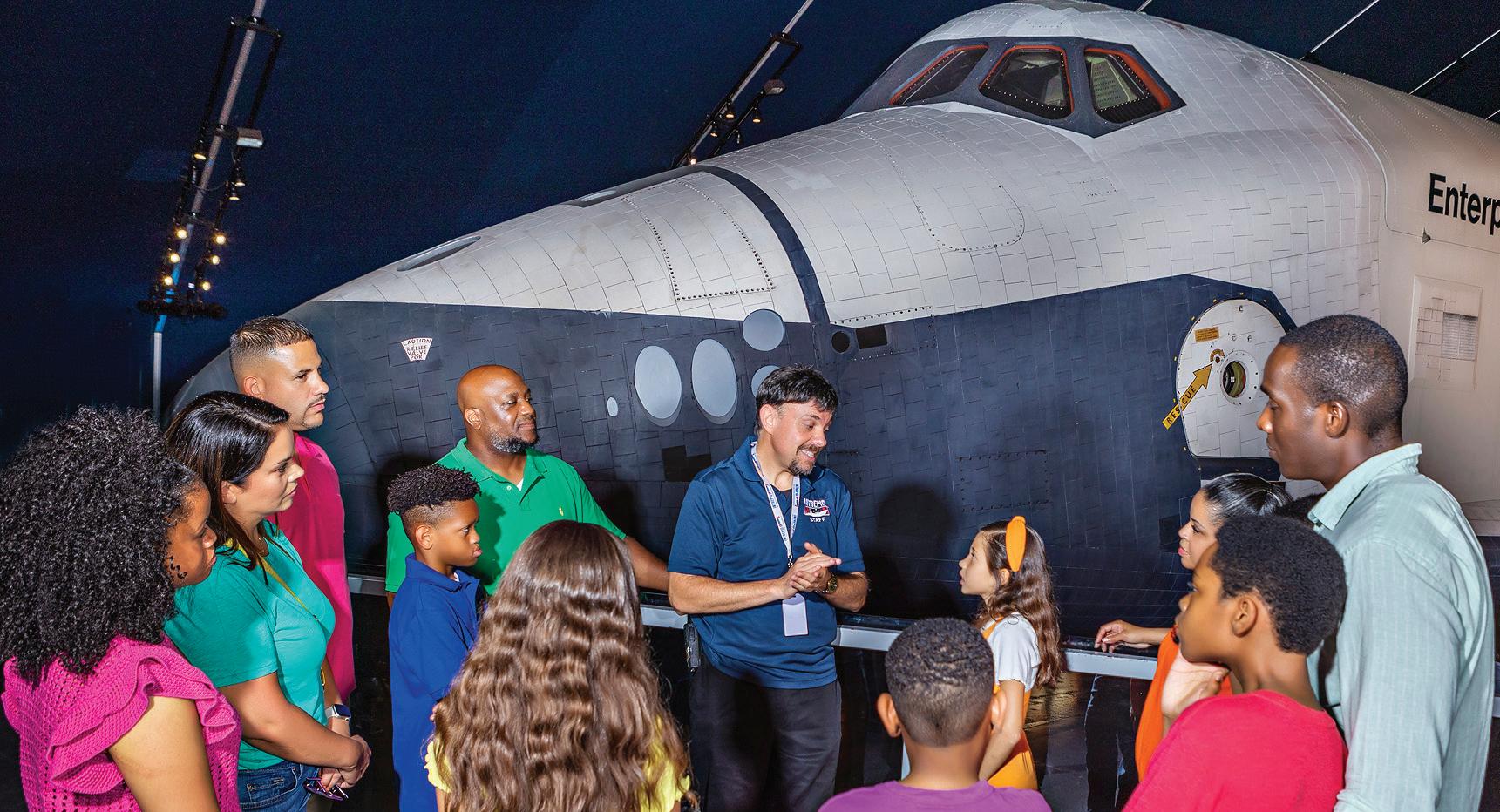
Enjoy a variety of resources to enhance your group’s visit:
• Dedicated and accessible free bus drop-off and parking
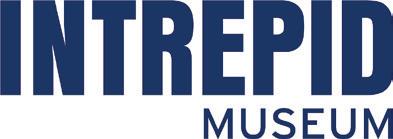
• Private group check-in desk
• Meal packages with private seating are available

• Pre-visit and onsite resources for visitors with disabilities
• Performance options available for our flight deck and Pier
Advance reservations are required. Contact us to plan your visit at 646-381-5010 or groupsales@intrepidmuseum.org.
From zoos to planetariums and farms to museums, your kids won’t want to miss visiting these fun and educational spots throughout NJ and beyond!

ADVENTURE AQUARIUM
1 Riverside Dr., Camden 844-474-3474
adventureaquarium.com
The kids will marvel at the aquarium’s collection of more than 15,000 aquatic animals— which includes the largest collection of sharks in the Northeast. Take a walk through the shark tunnel, and get up close and personal with hippos.

ALLEY POND ENVIRONMENTAL CENTER
224-65 76th Ave., Oakland Gardens, NY 718-229-4000
alleypond.org
Explore nature with a walk outside, time with live animals and a lesson on topics ranging from endangered species to animal adaptations.
AMERICAN MUSEUM OF NATURAL HISTORY
200 Central Park W., NYC 212-769-5100
amnh.org
Pick a floor or hall and use the museum’s online field trip guides to customize your trip. Learn about everything from dinos to outer space. The new Gilder Center features all sorts of exhibitions including a butterfly vivarium.
AMERICA’S GROW-A-ROW
150 Pittstown Rd., Pittstown 908-662-6304
americasgrowarow.org
Visitors will learn about food scarcity and plants. “Grow and Know” and “Farm to Fork” lessons will provide kids with education on nutrition, culinary skills and the importance of volunteering.
BATTLESHIP NEW JERSEY
62 Battleship Pl., Camden 856-966-1652
battleshipnewjersey.org
Visit the massive ship docked in the Delaware River on the Camden waterfront and step into a fascinating chapter in the history of war. Sign up for an Overnight Encampment where you’ll be treated to a guided tour, a sleepover in the bunks where crew members of the USS New Jersey slept, and even a chance to fire the saluting gun.

BRONX ZOO
2300 Southern Blvd., Bronx, NY 718-220-5100 bronxzoo.com
Listen to the roar of tigers, feed animals in the farmyard, watch red pandas from the monorail and see dozens of butterflies in the greenhouse. Indoor exhibits like JungleWorld and the World of Reptiles are great in case of unexpected rain.
BROOKLYN BOTANIC GARDEN
990 Washington Ave., Brooklyn, NY
718-623-7220
bbg.org
Make sensory observations, discover plant adaptations and learn about tree diversity while exploring gardens filled with multicolored flowers of every family and size. Children ages 2 to 13 can plant and harvest their own crops and flowers with the guidance of garden instructors.
CENTENARY STAGE COMPANY
715 Grand Ave., Hackettstown 908-979-0900
centenarystageco.org
Kids can watch a variety of professional theater shows, live music and dance events. If they feel so inspired, they can join the touring company or take a Young Performers workshop.
CIRCLE LINE SIGHTSEEING CRUISES
Pier 83, W. 42nd St., NYC
212-563-3200
circleline.com
With tour guides and outdoor decks to provide views of 140 NYC landmarks, Circle Line’s cruises are a great way to see the city. Circumnavigate the island of Manhattan on the Best of NYC Cruise, head to the Statue of Liberty on the Liberty Midtown Cruise or see the best Manhattan has to offer on the Landmarks Cruise.
COOPER GRISTMILL
66 Rte. 24, Chester Twp. 908-879-5463
morrisparks.net
Nathan Cooper built this gristmill in 1826, and it’s one of the only remaining restored water -powered mills in NJ. The site spans 14 acres rich with history; step back in time during a 45-minute tour led by a costumed master miller who will run the mill’s machinery.
DA VINCI SCIENCE CENTER
3145 Hamilton Blvd. Bypass, Allentown, PA 484-664-1002
davincisciencecenter.org
Create practical tools in Leo’s Creativity Studio, build a Mack Truck and drive it using a game simulator, learn about Newton’s Second Law of Motion by riding in Newton Chairs, and crawl through a 72-foot tunnel in the dark.
DREAM WHEEL NJ
1 American Dream Way, East Rutherford 833-263-7326
skyviewsobservationwheels.com
This is more than just a Ferris wheel; it’s an opportunity for kids to learn about STEAM from a professional engineer.
DUKE FARMS
1112 Dukes Parkway W., Hillsborough
908-722-3700
dukefarms.org
Free lesson plans are offered to educators who can hold self-guided tours for students. Duke Farms offers 18 miles of trails through woodland, meadow and wetland areas and interactive exhibits on wildlife ecology, agriculture and sustainable resources.
FIELD STATION: DINOSAURS
3 Overpeck Park Dwy., Leonia 855-999-9010
jerseydinos.com
This outdoor prehistoric theme park takes kids ages 3-11 on a scientific expedition that features 30 life-sized, moving dinosaurs built with cuttingedge robotics. Children can learn about the link between dinosaurs and the birds of today with the Great Moments of Discovery Theater.
FOSTERFIELDS LIVING HISTORICAL FARM
73 Kahdena Rd., Morris Twp. 973-326-7645
morrisparks.net
Kids can experience life in the fields as it was in the 1920s when Cara Foster—whose father, Charles, purchased the land in 1881—ran the farm. They’ll have a blast collecting eggs, riding wagons around the farm and looking at antique automobiles.
FRANKLIN MINERAL MUSEUM
32 Evans St., Franklin 973-827-3481
franklinmineralmuseum.com
Children will learn about the history of mineralogy by participating in rock collecting and viewing minerals and artifacts from the district. Exhibits include the Fluorescent Room, featuring a 32-foot-long display of local fluorescent minerals and American Indian Room which contains Native American stone tools.
GREAT SWAMP WATERSHED ASSOCIATION
568 Tempe Wick Rd., Morristown 973-538-3500
greatswamp.org
High schoolers can learn about water quality monitoring or explore terrestrial ecology/wetlands hydrology, while younger students can search for macroinvertebrates in a local body of water and do a pond dip where they will identify aquatic inhabitants.
GROUNDS FOR SCULPTURE
80 Sculptors Way, Hamilton 609-586-0616
groundsforsculpture.org
More than a garden, this beautiful spot
combines both nature and art. Filled with contemporary works, the grounds boast more than 270 sculptures across 42 acres. Family Open Studios are all-day drop-in workshops available the first Saturday of each month.
HEALTHBARN USA
1057 Hillcrest Rd., Ridgewood 201-444-2955 healthbarnusa.com
Kids will learn the benefits of fresh produce and a healthy lifestyle through a visit to the garden, a smoothie taste test and a planting session with recyclable pots and games.
HIDDEN BROOK RANCH ALPACA
196 State Park Rd., Blairstown 908-543-4808 hiddenbrookranchalpaca.com
Come for fun and educational farm tours and meet the small herd. The owners love to share their knowledge of the alpacas and llamas and their unique personalities.
HISTORIC LONGSTREET FARM
44 Longstreet Rd., Holmdel 732-946-3758 monmouthcountyparks.com
See how farmers worked in the 1890s. Tour the farmhouse, milk a cow, play games from the Victorian period, shear sheep, use a woodstove for cooking and more. Get an up-close look into Dutch building tradition with the Holmes-Hendrickson House Museum, built way back in 1754.
THE HISTORIC VILLAGE AT ALLAIRE 4263 Atlantic Ave., Farmingdale 732-919-3500 allairevillage.org
This former factory town is now a living history experience where kids can get a glimpse of life during the 19th century. Historic interpreters dressed in period garb give tours and demos about life pre-electricity.
HOWELL LIVING HISTORY FARM
70 Woodens Ln., Hopewell Twp. 609-737-3299
howellfarm.org
Open since the 1730s, this farm is a prime location for learning about growing produce. School trips are meant to provide hands-on experiences that engage kids in the seasonal activities of a working farm. They’ll be taught about the food and work animals provide while completing daily chores.
INFOAGE SCIENCE & HISTORY MUSEUMS
2201 Marconi Rd., Wall Twp.
732-280-3000
infoage.org
Explore more than two dozen museums and exhibits, as well as community groups and organizations. Learn about space exploration, electronic warfare, radio technology, military communications, World War II artifacts, computers, the Lenni-Lenape Tribe and more.
INTREPID SEA, AIR & SPACE MUSEUM
Pier 86, W. 46th St. and 12th Ave., NYC 877-957-7447
intrepidmuseum.org
Visitors to the legendary aircraft carrier will be amazed by the Space Shuttle Pavilion, where they’ll get a close-up look at a retired NASA space shuttle, a former military submarine kids can walk through, the interactive Exploreum and more.
IRON PEAK SPORTS & EVENTS
137 Mountain View Rd., Hillsborough 908-758-2739
ironpeakse.com
The whole family can have fun at this indoor and outdoor sports complex. Whether the kids like soccer, lacrosse, football, basketball, volleyball or baseball, there’s an activity here for them. There’s also an arcade, virtual reality games, a climbing area and a super cool Ninja course.
LAKOTA WOLF PRESERVE
89 Mt. Pleasant Rd., Columbia 908-496-9244
lakotawolf.com
Take a Wolf Watch tour to get to know these majestic animals. You’ll see the wolves at play, along with bobcats and foxes. Young photography enthusiasts can also snap pictures of the wildlife and scenery. Open by online reservations only.
LIBERTY HALL MUSEUM
1003 Morris Ave., Union 908-527-0400
libertyhall.kean.edu
This 50-room mansion boasts historical art, clothing and furniture. Guests can learn about its remarkable past through a guided tour or visit the arboretum and garden which house some of New Jersey’s oldest trees. Get a hands-on look into the daily life of a colonial child of the 1700s by seeing their toys, school, games and chores.
LIBERTY SCIENCE CENTER
222 Jersey City Blvd., Jersey City 201-200-1000
lsc.org
The kids will get hands-on experience with electricity, bounce around an Infinity Climber and much more as they explore the museum and
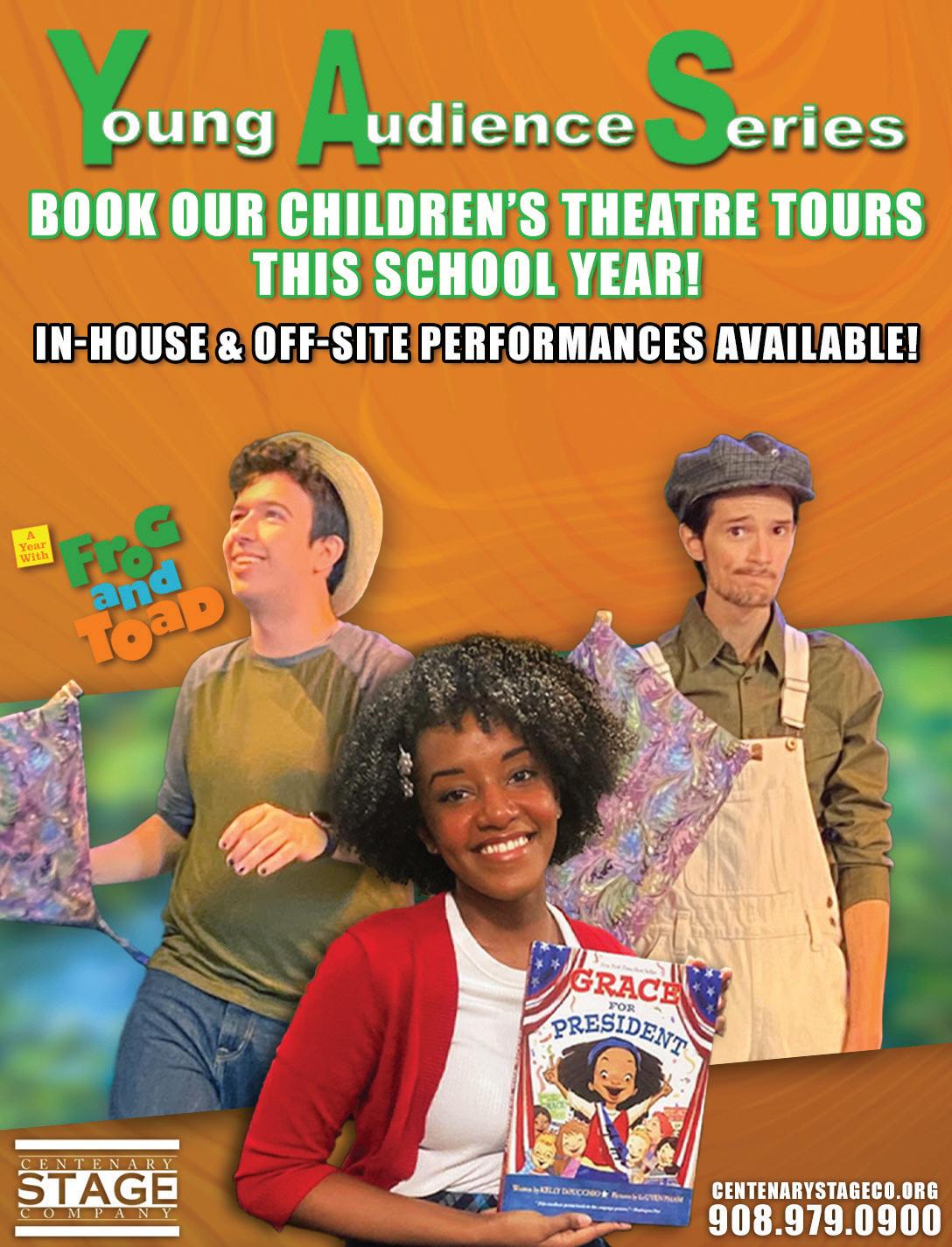

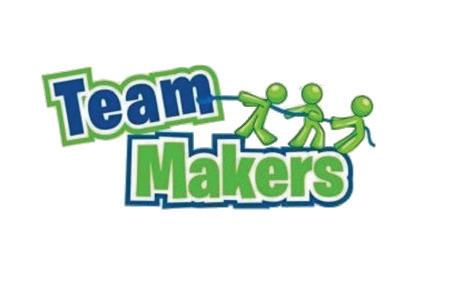
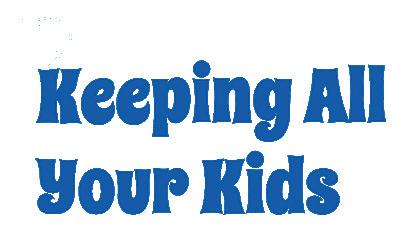
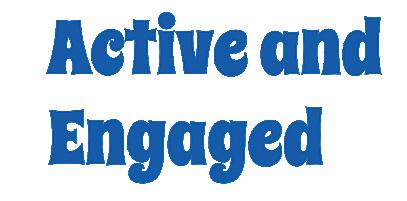

dive into laboratory workshops and virtual stage presentations. Don’t miss limited-time exhibits or a show in the biggest planetarium in the western hemisphere!
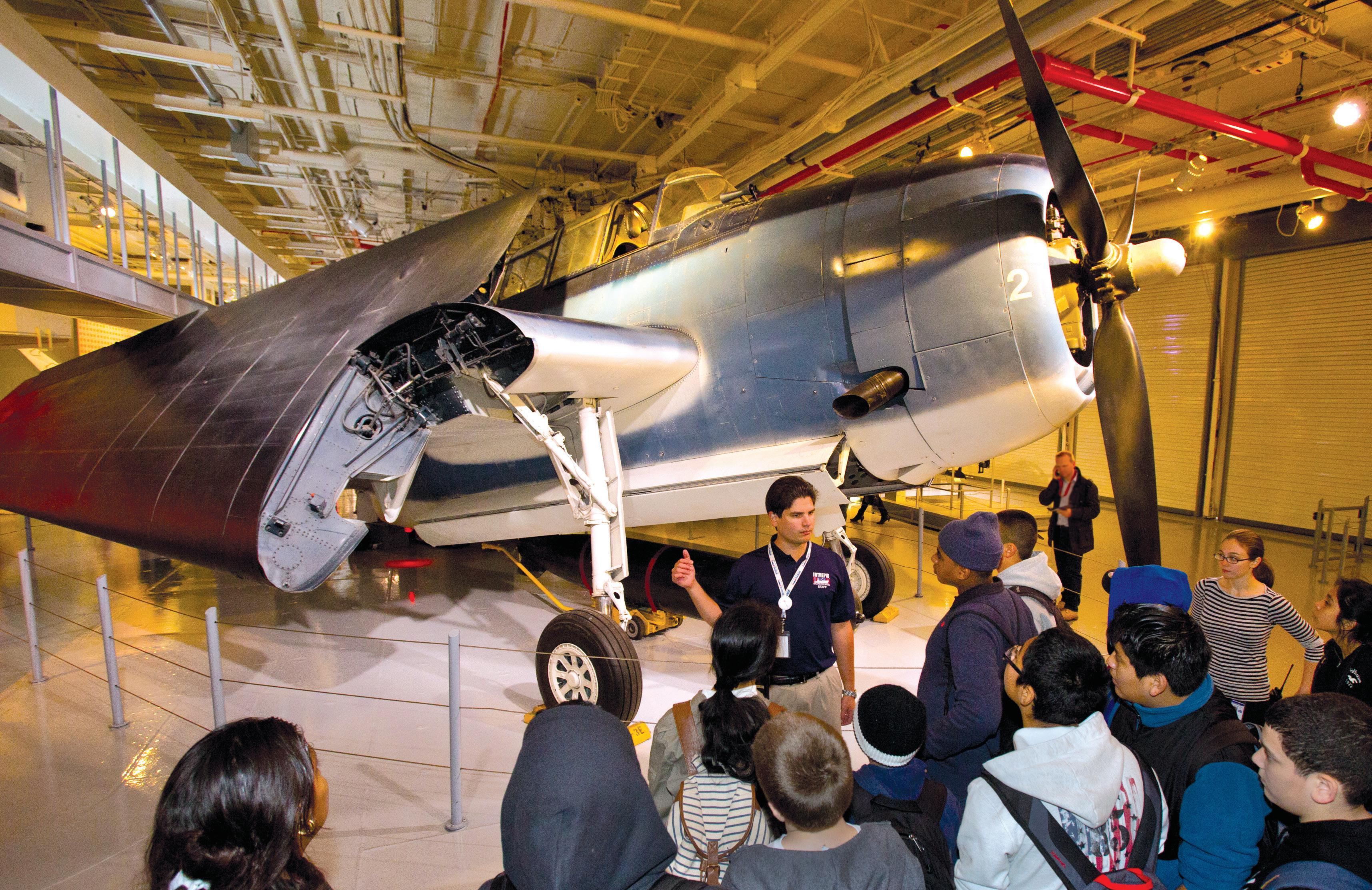
MACCULLOCH HALL
45 Macculloch Ave., Morristown 973-538-2404
maccullochhall.org
This museum offers custom field trips by grade. First graders can tour the historic garden, kitchen and drawing room while grades 2-3 get the scoop on plant cycles and composting. Older students can view the original work of cartoonist Thomas Nast. You can also bring the experience to you with a classroom visit.
MEDIEVAL TIMES
149 Polito Ave., Lyndhurst 201-933-2220
medievaltimes.com
Be a guestsof the Queen at this royal banquet. The castle is home to knights, falcons and horses who’ll put on an amazing show, complete with hand-to-hand combat and jousting. Take a look at medieval weaponry in the Hall of Arms.
MONMOUTH COUNTY PARK SYSTEM
Multiple Locations
monmouthcountyparks.com
Group programs include live animal
presentations, nature walks, eco-adventures, freshwater ecology and marine life. You can visit Historic Walnford for 19th-century learning, or Longstreet Farm to meet the animals.
MONMOUTH MUSEUM
765 Newman Springs Rd., Lincroft 732-747-2266
monmouthmuseum.org
Explore monthly themes like art and culture with hands-on crafts and workshops. Wander the Becker Children’s Wing and WonderWing to board pirate ships, learn about dinosaurs and more. The outdoor Meyer Art & Nature Area also features all sorts of educational programs.
MONTCLAIR ART MUSEUM
3 S. Mountain Ave., Montclair 973-746-5555
montclairartmuseum.org
Interactive field trips support students in creating art and making observations of artwork based on a chosen theme. These include works covering different time periods, LGBTQ artists of color and landscapes.
MORRIS COUNTY PARK COMMISSION
Various locations morrisparks.net
If your kid loves nature and the environment, they can visit sites like the Cooper Gristmill,
Fosterfields Living Historical Farm, Great Swamp Outdoor Education Center or the Pyramid Mountain Natural Historic Area. They can get their hands dirty while learning about the great outdoors.
MORRIS MUSEUM
6 Normandy Heights Rd., Morristown 973-971-3700
morrismuseum.org
Think galleries of geological finds from NJ and beyond, as well as retro trains and more. Be an inventor for the day at the Spark!Lab where engineering challenges abound. Coming soon is the “Set in Motion: Kinetic Worlds from the Studio of Richard Whitten” exhibition, bringing together math, engineering, art and technology.
MORRISTOWN NATIONAL HISTORICAL PARK 30 Washington Pl., Morristown 973-539-2016, ext. 210 nps.gov/morr
This National Historical Park is located at the site where George Washington and the Continental Army survived the winter of 1779. There are 27 miles of hiking trails to explore and kids can go on a scavenger hunt to become Junior Rangers.
MUSEUM OF EARLY TRADES & CRAFTS
9 Main St., Madison 973-377-2982, ext. 10 metc.org
Field
FUN FOR THE WHOLE FAMILY FUN FOR THE WHOLE FAMILY
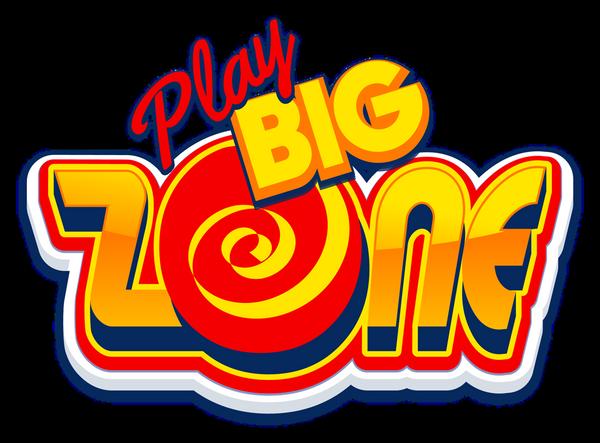

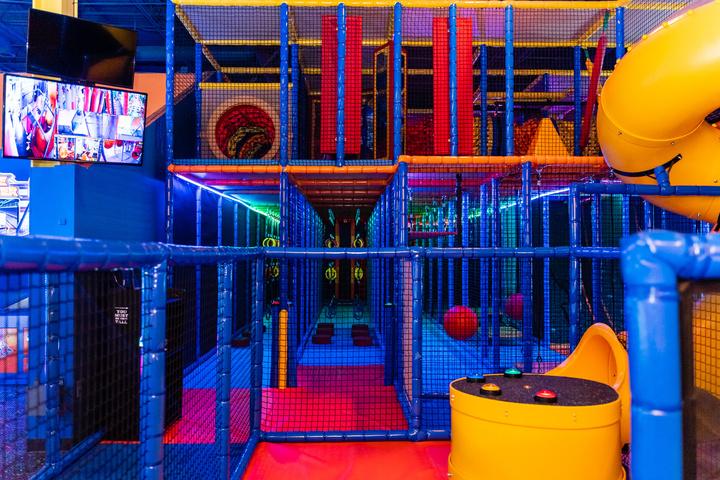
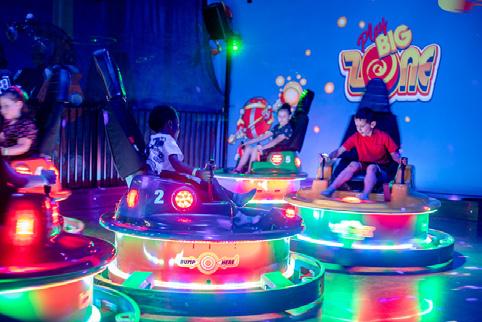
...that each and every one of our students can excel and that all deserve the opportunity to reach their fullest potential...

The Lower School Program provides basic skill remediation in a challenging academic curriculum for children in Grades 2-8.
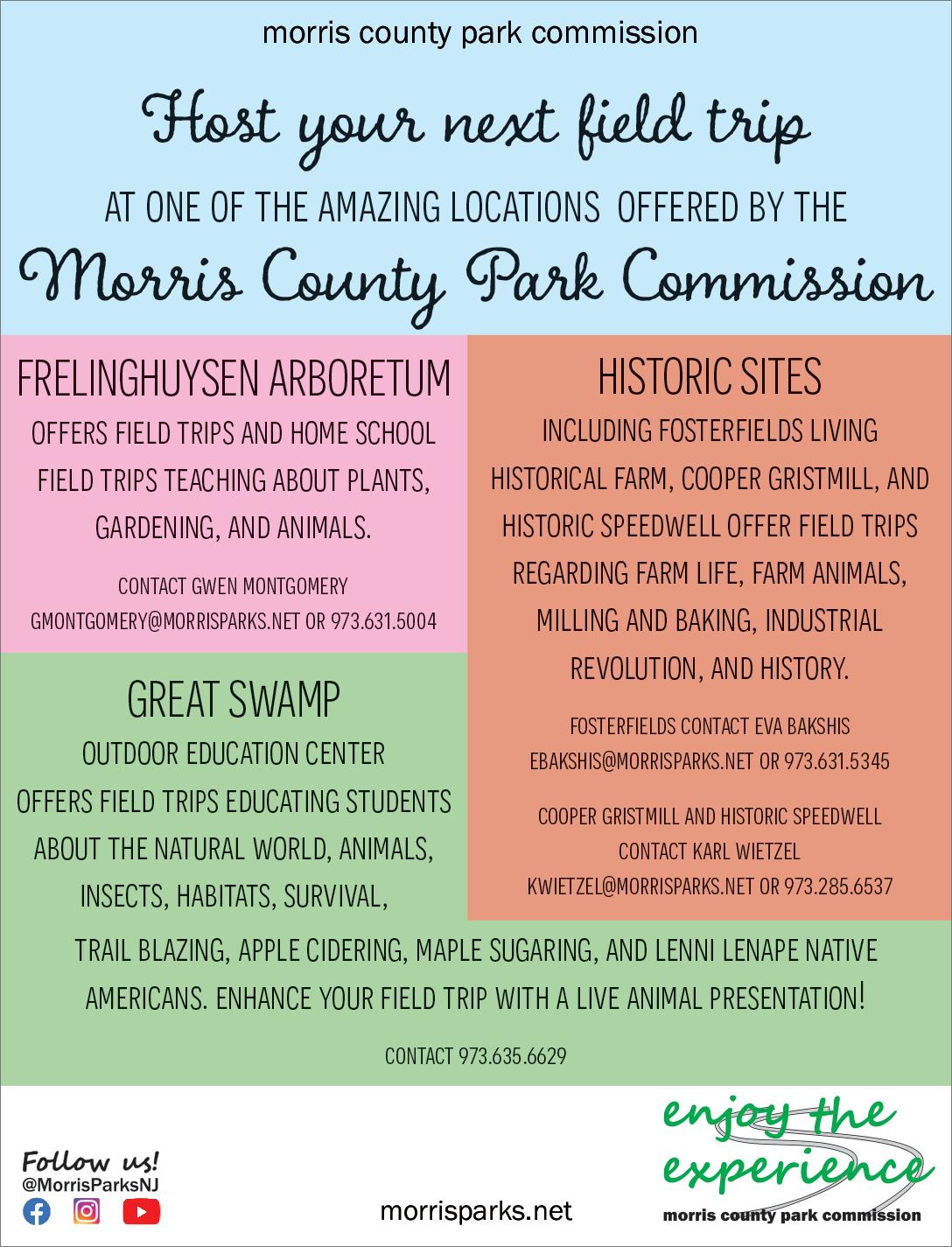
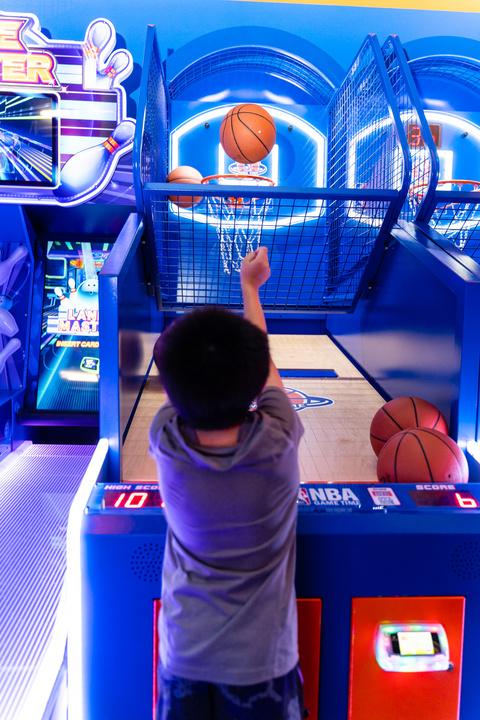
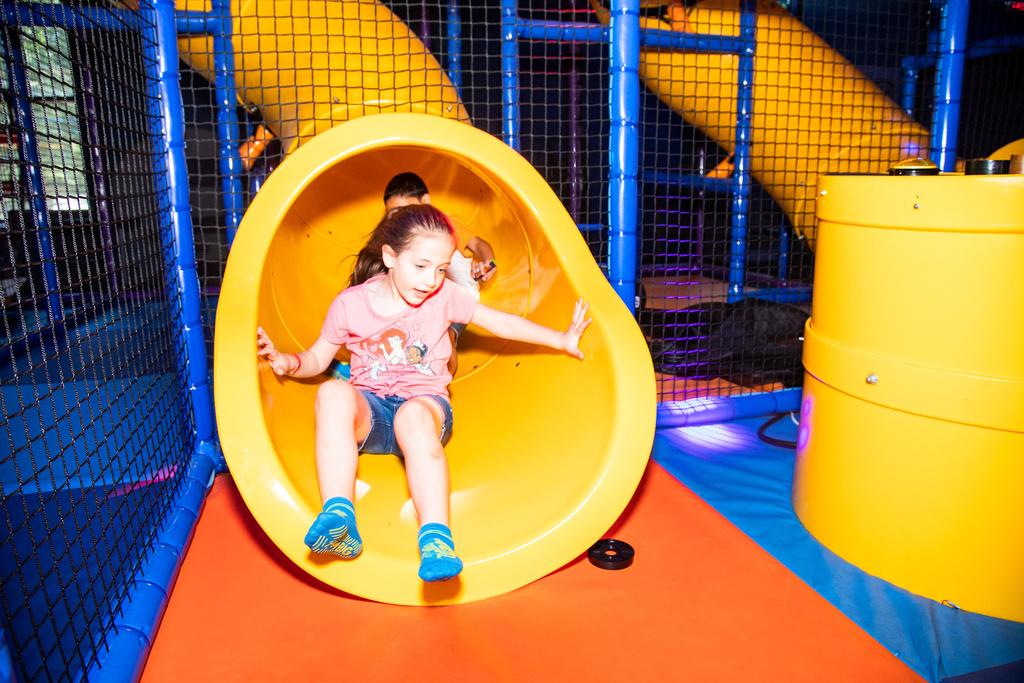
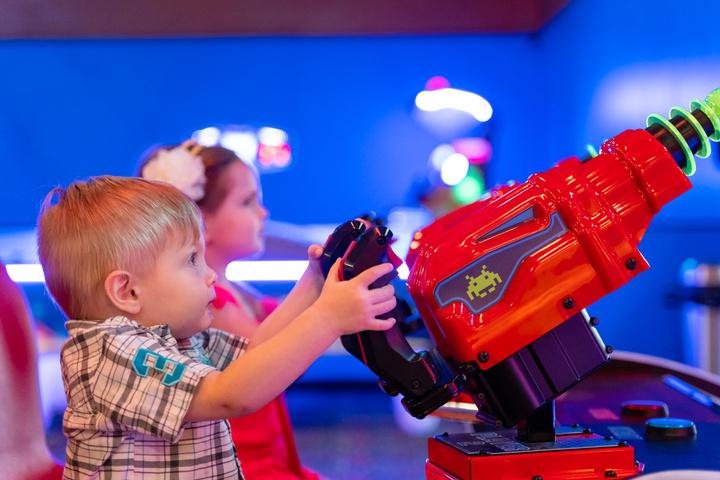
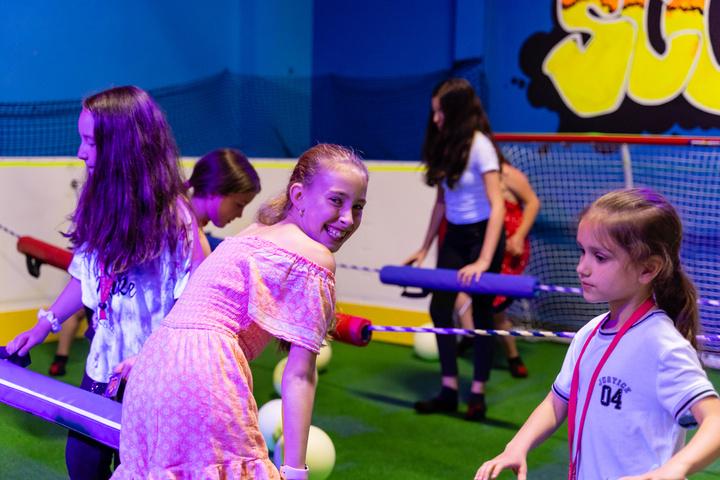
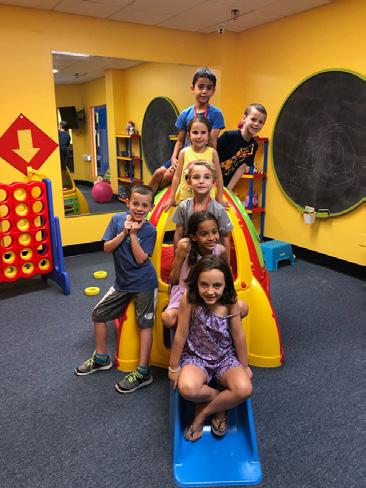
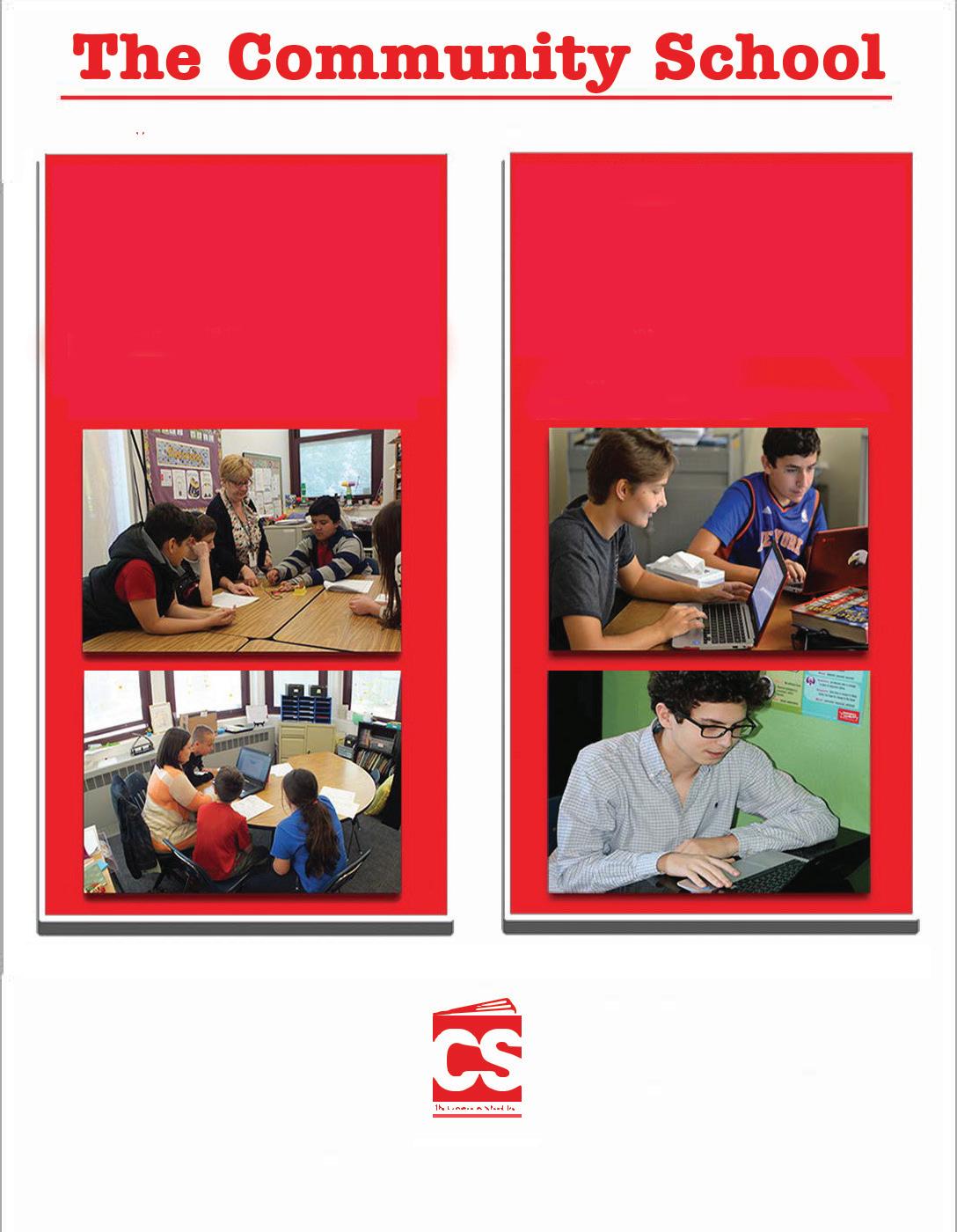
The
School Program provides a complete high school experience for the bright adolescent with learning disabilities. For
Discover the history of trades and crafts at this 50-year-old museum. Programs cover early American toys, immigrant experiences and voting rights. Students can learn about the real-life experiences of a child living on an 1800s farm and try to problem-solve the hardships they faced.
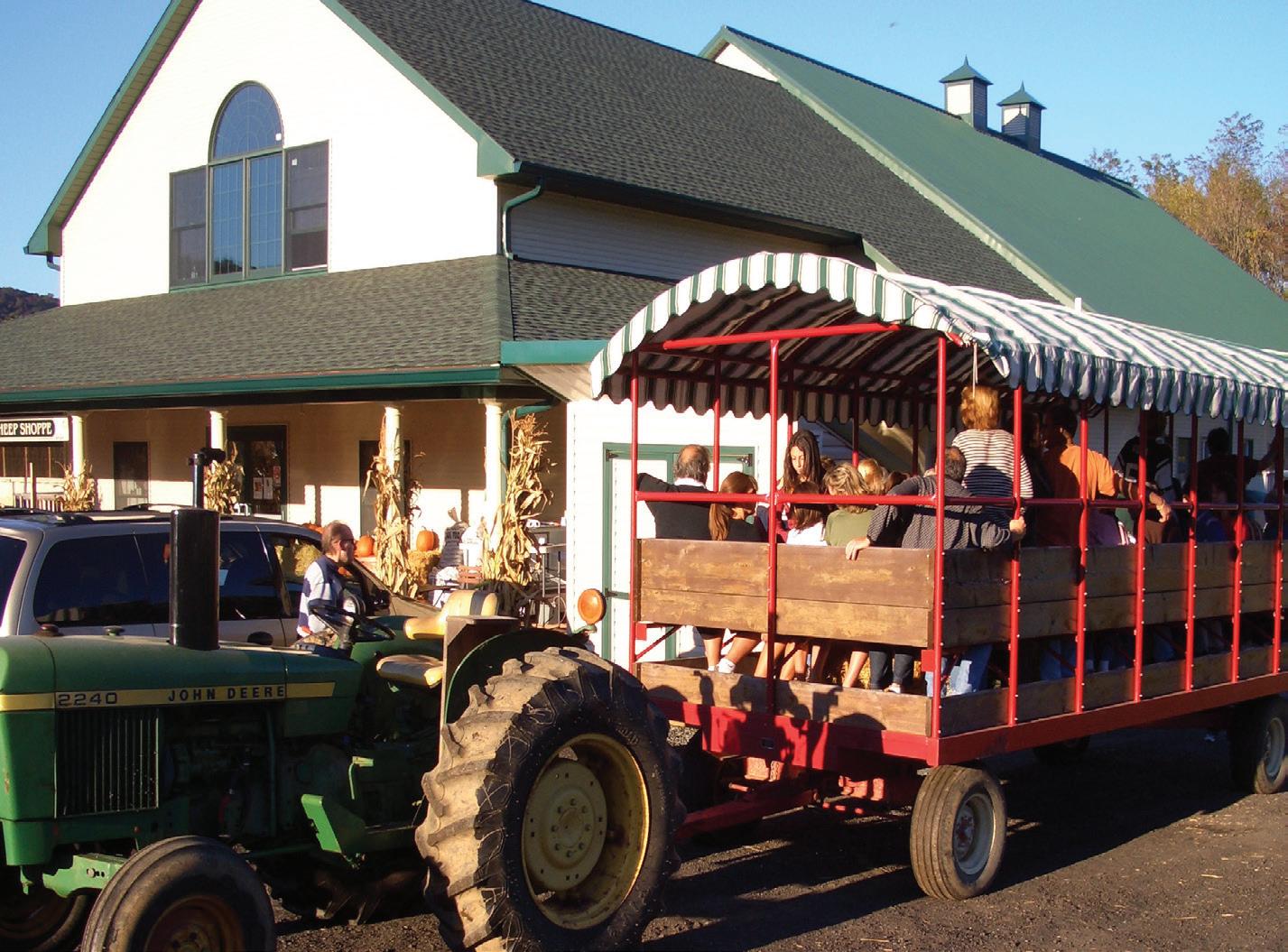
MUSEUM OF ICE CREAM
558 Broadway, NYC
866-665-1018
museumoficecream.com
Indulge in this beloved dessert! Enjoy a variety of ice cream treats, learn about its history, play in the colorful sprinkle pool and take a trip down NYC’s highest indoor slide.
NATIONAL MUSEUM OF MATHEMATICS
11 E. 26th Street, NYC 212-542-0566
momath.org
Offering in-person and online field trips for kids in pre-K through 12th grade, students will attend educator-led sessions on topics like cryptography and topology. Kids can use statistics to nail a free-throw, create stereographic images by manipulating metal plates and even ride a tricycle with square wheels.
THE NEWARK MUSEUM OF ART
49 Washington St., Newark
973-596-6550
newarkmuseumart.org
Travel around the world in a day with exhibits about Asian, African and Mediterranean art. Lie inside of a kaleidoscope, stand before a Tibetan
Buddhist altar and gaze at Native American clothing at this museum committed to inclusivity.
NEW JERSEY SEA GRANT CONSORTIUM
Various locations
732-872-1300
njseagrant.org
Little marine biologists can learn everything about the sea, from the history of Sandy Hook to how humans affect the ocean and its inhabitants. The Coastal Experience offers a collection of marine science field trips for children in grades pre-K through 12 where they will learn about ocean environments, salt marsh ecology and more.
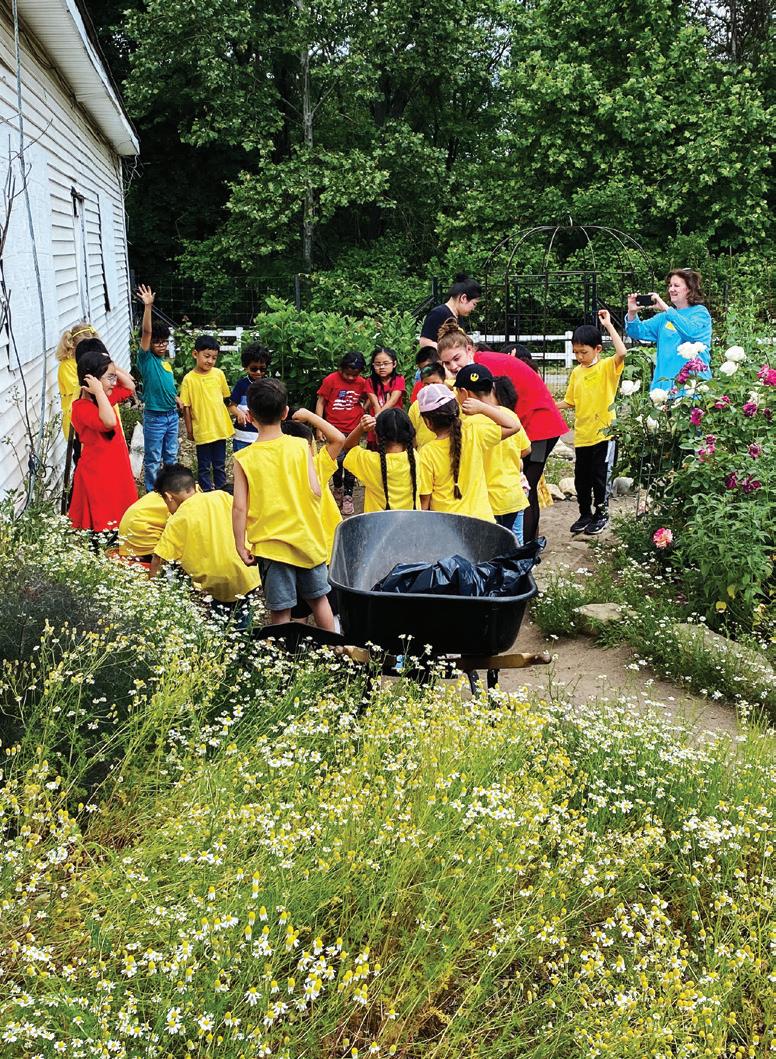
NEW JERSEY STATE HOUSE
145 W. State St., Trenton 609-847-3150
njstatehousetours.org
Kindergarteners to second graders will learn about state symbols, county flags, and the things that make NJ unique. Third through sixth graders will learn about how laws are made, visit the Senate and General Assembly chambers and explore the building’s art and architecture.
NEW JERSEY STATE MUSEUM
205 W. State St., Trenton 609-292-1382
nj.gov/state/museum
Dive into fascinating pieces of Garden State history like Native American artifacts and dinosaur and shark fossil records. Visit the planetarium or check out virtual planetarium sky talks from home.
NEW YORK HALL OF SCIENCE
47-01 111th St., Corona, NY 718-699-0005 nysci.org
Step into The Happiness Experiment, Design Lab or more than 450 other exhibits at this science museum. Discover how 3D printing works and aircrafts defy gravity in workshops and demonstrations. If you can’t make it to Queens, your child’s teacher can video conference workshops from the classroom, or an NYSCI instructor can come to you (on a limited basis).
OLD BARRACKS MUSEUM
101 Barrack St., Trenton 609-396-1776
barracks.org
Head to the state’s capital city to see where soldiers lived during the Revolutionary War. Get sent back to 1777 as you experience what life was like in Washington’s Army with the “Meet the Past” program. Virtual programming with historical videos and photos of artifacts are also available.
THE PAPER BAG PLAYERS
1120 Avenue of the Americas, NYC 212-353-2332
thepaperbagplayers.org
From January to May, field trips are held at theaters in the five boroughs of NYC. “Big Bag of Laughs” is great for kids ages 3-8 who like playtime through music, dance, movement and props.
PATERSON GREAT FALLS
72 McBride Ave., Paterson
973-523-0370
nps.gov
This stunning natural attraction has magnificent waterfalls that kids will marvel at while learning about the history of Paterson and its industrial renaissance.

PLAY BIG ZONE
300 Campus Dr., Morganville
732-991-1993
playbigzone.com
This spot is great for kids who are super active. They’ll have a ball on The Spin Zone Bumper Cars, playing Human Foosball, inside the Laser Maze, combatting obstacles in The Amazing Race, playing in the arcade and inside the virtual reality pod.
PLEASE TOUCH MUSEUM
4231 Avenue of the Republic, Philadelphia, PA 215-581-3181
pleasetouchmuseum.org
Touching the exhibits is mandatory here! In Wonderland, kids will feel like they’ve fallen down the rabbit hole, and in Rocket Room, they’ll learn about space and launch their own rocket in Mission Control. A new Dinosaur Train Exhibit will be available in the fall.
POPCORN PARK ZOO ANIMAL RESCUE & SANCTUARY
1 Humane Way, Forked River 609-693-1900
ahscares.org/popcorn-park
At this sanctuary for injured, ill or elderly farm animals, birds and wildlife, kids will see goats, peacocks, bears and tigers in one place, learning how to treat creatures and critters of all sizes.
QUEENS COUNTY FARM MUSEUM
73-50 Little Neck Parkway, Queens, NY
718-347-3276
queensfarm.org
Seasonal education programs include fall apple cider pressing, composting and sustainability. Enjoy pumpkin patch month in October as well as Maze by Moonlight. Winter quilting lessons and spring sessions on the history of NYC and the importance of pollinators are also available.
RAPTOR TRUST
1390 White Bridge Rd., Millington 908-647-2353
theraptortrust.org
Kids can learn about hawks, eagles, owls and other birds of prey being rehabilitated. They’ll explore the personal histories of these species and see them in action while touring the facility.
RARITAN VALLEY COMMUNITY COLLEGE PLANETARIUM
118 Lamington Rd., Branchburg 908-231-8805
raritanval.edu/private-shows-planetarium
Journey through the solar system, ride alongside a star or enter a black hole while inside the planetarium. Unlock your students’ creativity with a laser concert where they’ll draw pictures on the dome as music plays.
RED MILL MUSEUM
56 Main St., Clinton 908-735-4101
theredmill.org
Kids will learn about everything from life during the 1800s to 19th century energy production as they walk the grounds or try their hand at woolcarding and candlemaking.
REEVES-REED ARBORETUM
165 Hobart Ave., Summit
908-273-8787
reeves-reedarboretum.org
Meet honeybees, engage in a planting project and create a mini-terrarium at this 13.5-acre arboretum composed of forest and gardens. Programs are tailored to students from preschool through 8th grade. Self-guided discovery weekends are perfect for families.
RISENY
160 W. 45th St., NYC 718-701-4998
646-619-8615 for student groups
riseny.co
Experience New York from a different view with this three-part adventure that showcases the city’s most known sites. Fly 30 feet above ground on a flight simulation ride as you watch over the Big Apple in stunning 8K aerial footage. Don’t miss the immersive film centered around Times Square and its worldwide impact.
RUTGERS GEOLOGY MUSEUM
85 Somerset St., New Brunswick 848-932-7243
geologymuseum.rutgers.edu
Take a guided tour to learn about dinosaurs, geology, the Ice Age and mummies, with special attention given to NJ-based exhibits. There are free tours for kids in grades K-12, but additional activities can be added for a fee, such as making a stegosaurus hat, creating a fossil necklace or constructing a 3-D mummy.
SCHIFF NATURE PRESERVE
339 Pleasant Valley Rd., Mendham 973-543-6004
schiffnaturepreserve.org
Dubbed the place where “wild things happen naturally,” Schiff is home to 12 miles of trails, 768 acres of protected land and plenty of educational programs. Make sure to check out the Great Meadow and plant garden with native species.
SEA LIFE AQUARIUM
1 American Dream Way, East Rutherford 551-234-6382
visitsealife.com/new-jersey
Kids will come face to face with 3,000 different exotic aquatic creatures in more than 20 marine exhibits (and get even closer to some, thanks to the Touchpool). There are also education workshops covering subjects like habitats and animal behavior.
SOLOMON R. GUGGENHEIM MUSEUM
1071 Fifth Ave., NYC 212-423-3500
guggenheim.org
In case the museum’s incredible collections of DUKE FARMS

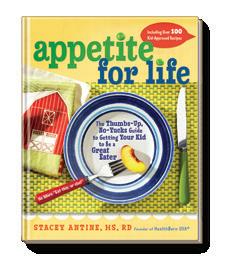

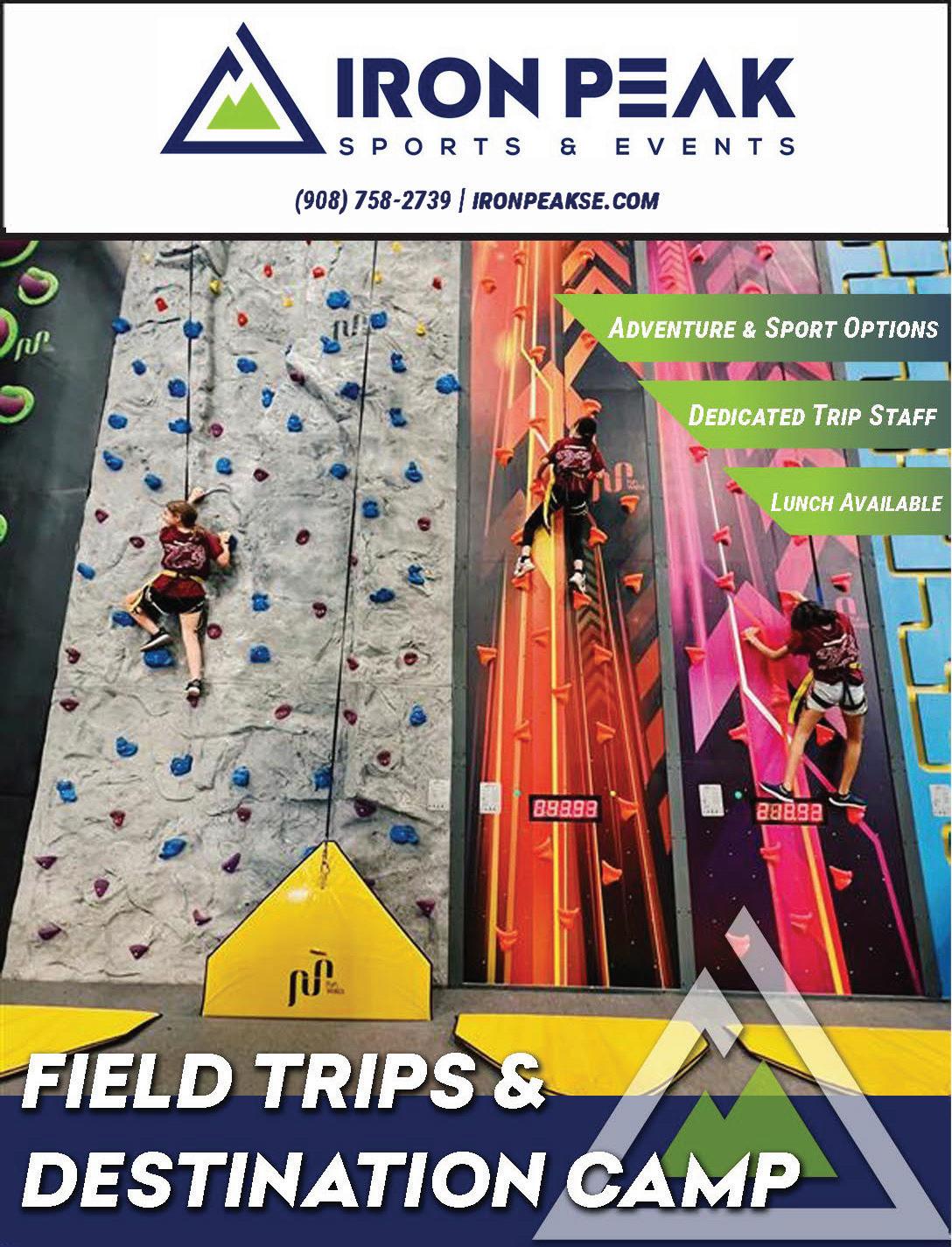
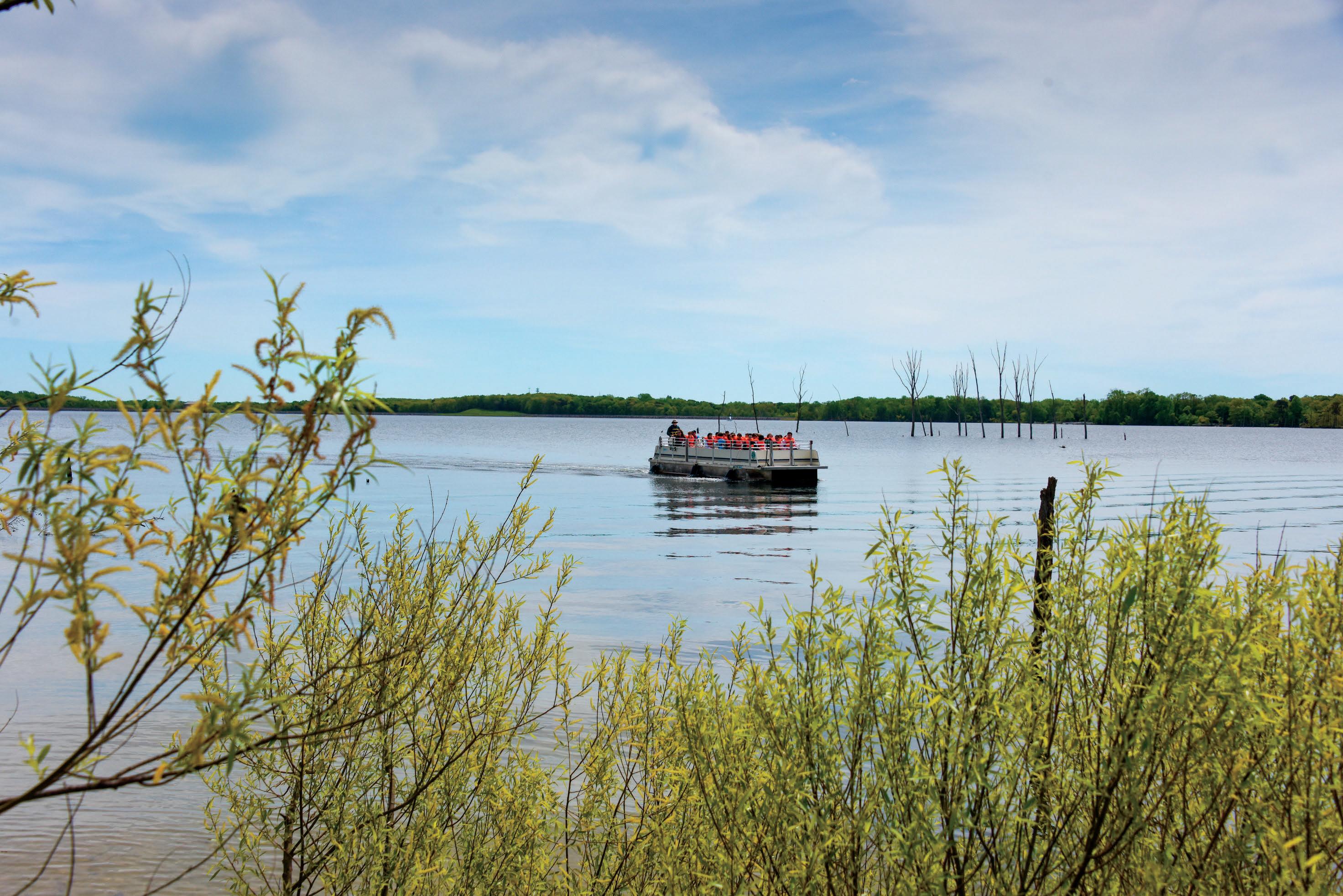





Impressionist, Post-Impressionist and modern French masterpieces aren’t enough incentive to visit, the building itself is one of eight Frank Lloyd Wright designs designated as a UNESCO World Heritage Site.
SOUTH STREET SEAPORT MUSEUM
12 Fulton St., NYC 212-748-8600 southstreetseaportmuseum.org
This museum offers tours of historic buildings and ships and interactive learning activities. Kids will ride a tugboat or schooner after learning about the 19th century port of New York. Visitors can enter some of the ships like the 1885 Wavertree, check out the “Exploring Our Waters with Eric Carle” exhibit, and more.

STATUE OF LIBERTY
Liberty Island, NYC 212-363-3200
nps.gov
Climb the pedestal and access Lady Liberty’s crown. You can also check out the Statue of Liberty Museum and theater. Then head to the National Museum of Immigration on Ellis Island.
STORM KING ART CENTER
1 Museum Rd., New Windsor, NY 845-534-3115 stormking.org
Kids will marvel at the large-scale works of art and on-site commissions at this open-air arts center located on 500 acres in New York’s Hudson Valley. You’ll get lots of steps as you take in a huge collection of contemporary sculptures.
TEAM MAKERS
400 Tenafly Rd., Tenafly 201-500-8076 teammakersnorthjersey.com
Young kids can be really creative here while learning problem-solving skills, cooperation, leadership and respect through fun, interactive games. They partner with The Bounce Factory for an extra field trip option based on STEM learning.
THOMAS EDISON NATIONAL HISTORICAL PARK
211 Main St., West Orange 973-736-0550, ext. 11 nps.gov
Your kids may know Thomas Edison invented the lightbulb, but what about his other works? Here, they can explore his chemistry lab and tour the Black Maria, Edison’s first film studio.
TILT MUSEUM
1 American Dream Way, East Rutherford
833-263-7326
americandream.com/venue/tilt-museum
Become one with the art at TiLT, which provides an immersive art experience and optical illusions designed (with guests of all ages in mind) by award-winning artist Tracy Lee Stum.
TURTLE BACK ZOO
560 Northfield Ave., West Orange 973-731-5800
turtlebackzoo.com
This zoo keeps adding more amazing things to explore like a giraffe exhibit and “Shores of Africa,” showing a flock of endangered African penguins. Check out the new sea turtle rehabilitation center and learn about how you can help protect them.
VALLEY SHEPHERD CREAMERY
50 Fairmount Rd., Long Valley 908-876-3200
valleyshepherd.com
During a guided farm tour, kids can see the newborn lambs in the spring, or take a wagon ride up the mountain and look inside the cheese aging cave in the fall.
THE WILDLIFE CONSERVATION AND EDUCATION CENTER
303 Midland Ave., Garfield 201-257-2231
thebatcave.org
Students will learn how important bats are to the ecosystem. Kids can watch presentations on bats, reptiles and rainforest critters, plus see animals up close.
YOGI BERRA MUSEUM & LEARNING CENTER
Montclair State University
8 Yogi Berra Dr., Little Falls 973-655-2378
yogiberramuseum.org
This museum is dedicated to the life and work of the New York Yankees legend. Fifth through 12th graders can choose from three topics for field trips: Baseball & STEM; Poetry, Spoken Word & Yogiisms, and Discovering the Negro Leagues.
ZIMMERLI ART MUSEUM
71 Hamilton St., New Brunswick 848-932-7237
zimmerli.rutgers.edu
Kids can check out thousands of pieces of art across several mediums, create stories inspired by portraits and go on interactive educator-led discovery tours at this museum. “Art Together” drop-in family workshops and at-home activities can help kids get in touch with their inner artist.






SchoolTime is in the spotlight! Share with your students the magic of live performances with one or more of our curated arts experiences.
Bring NJPAC teaching artists right to your classroom for multiple sessions. Our residencies are designed to serve up to 30 students for one classroom.

Receive a 10% discount on SchoolTime Performances or Professional Development when you book a Residency.
Expand your teaching skills, deepen your curriculum and give yourself a creative boost in NJPAC’s professional development workshops. PDs are for teachers from pre-K to high school, and include hip hop, dance, storytelling, theater, music and more.
Major support for NJPAC Arts Education provided by Healthcare Foundation of New Jersey, Horizon Foundation for New Jersey, Merck Foundation, Prudential Foundation, TD Charitable Foundation, Victoria Foundation, Women@NJPAC, New Jersey State Council on the Arts, Discover Jersey Arts, Judy and Stewart Colton, Toby and Leon Cooperman, Steven and Beverly Rubenstein Charitable Foundation, and The John Strangfeld and Mary Kay Strangfeld Foundation.
NJPAC Arts Education programs are made possible by the generosity of our endowment donors: The Arts Education Endowment Fund in honor of Raymond C. Chambers, The Joan and Allen Bildner Family Fund, Toby and Leon Cooperman, Albert+ and Katharine Merck+, The Sagner Companies/The Sagner Family Foundation, Wells Fargo Foundation.
Generous annual support for NJPAC Arts Education programs is provided by Judith Bernhaut, Broadridge Financial Solutions, Inc., Jennifer A. Chalsty, Mimi and Edwin Feliciano, Investors Bank, Don Katz & Leslie Larson, M&T Bank, McCrane Foundation, Inc., care of Margrit McCrane, The MCJ Amelior Foundation, National Endowment for the Arts, NJ Advance Media, NJM Insurance Group, Panasonic Foundation, PNC, Richmond County Savings Foundation, David & Marian Rocker, Santander, Turrell Fund and an anonymous donor.